MARITIMEJOURNAL
COMMERCIAL MARINE BUSINESS

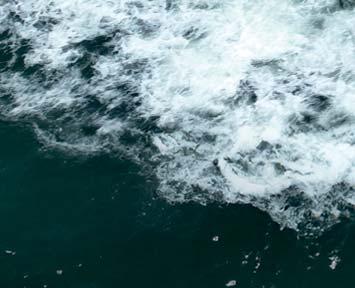
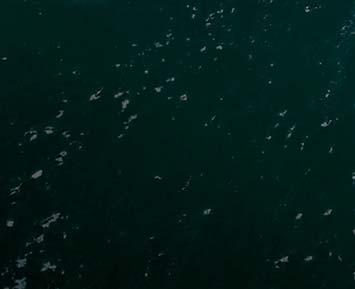
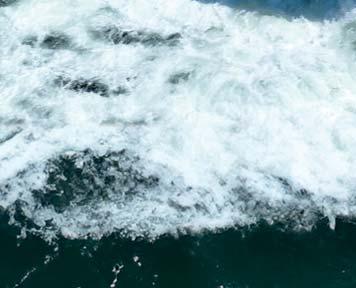
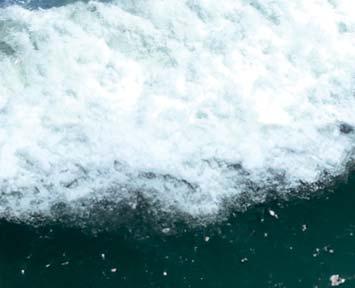
VESSEL BUILDING & LAUNCHES
Future fuels
Tugs, Towing & Salvage

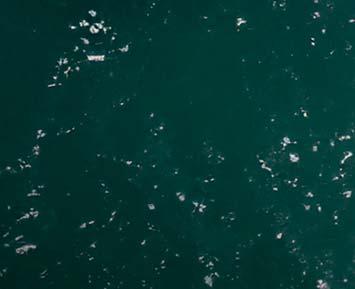
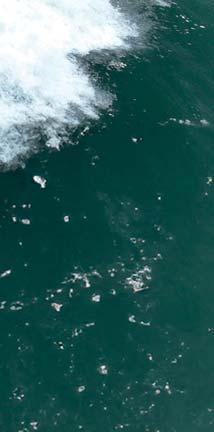

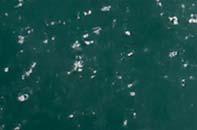
Industry News | Marine Civils | Offshore Renewables
Issue No 428 APRIL/MAY 2024
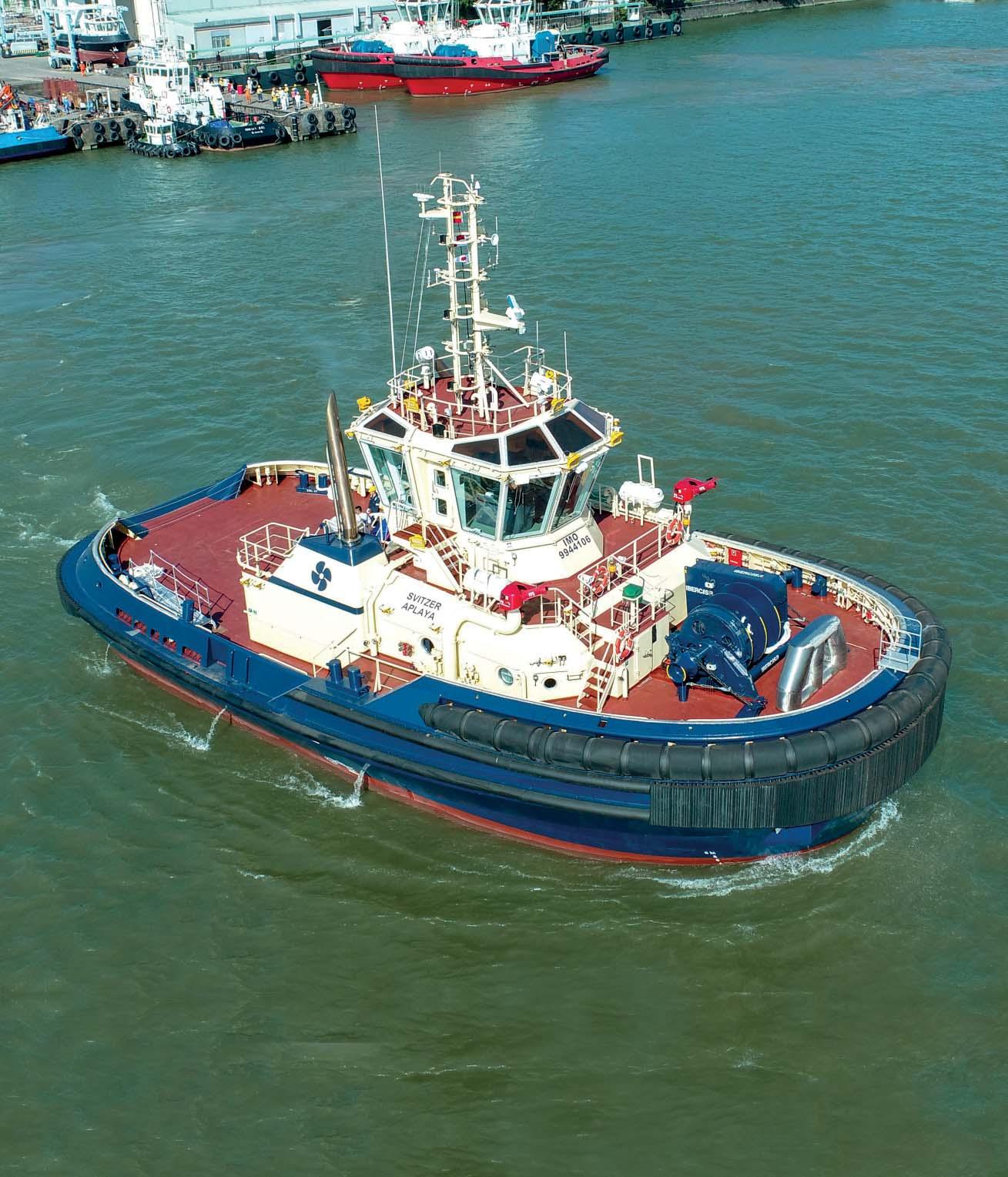




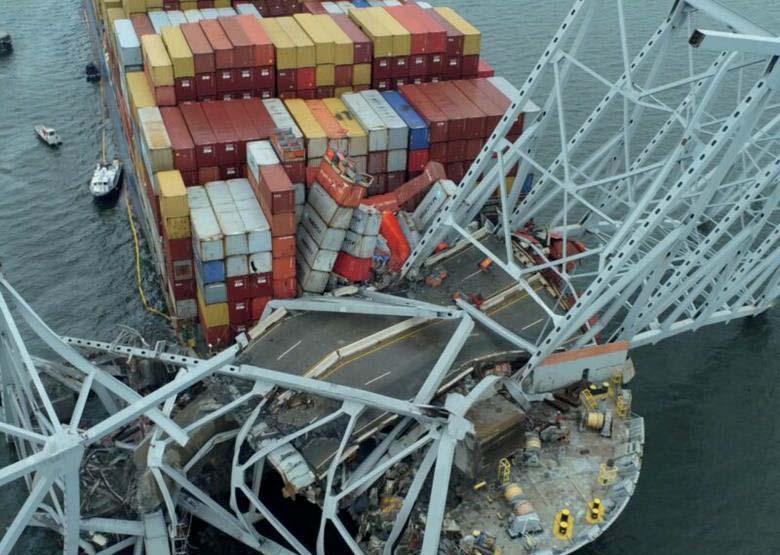
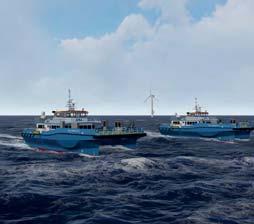
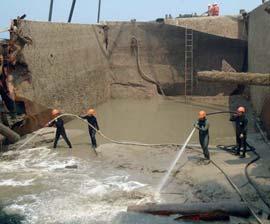
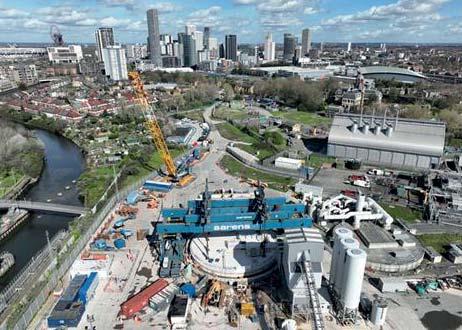
UZMAR was founded in 1984 by senior Pilot Captain Altay Altuğ (1925-2021) as the first privately established pilotage and towage company in Turkey to serve at various private ports and harbors on the Aegean Sea, Turkey.
Today, UZMAR serves public safety at four different ports in Turkey; pilotage at Nemrut Port, Izmir, pilotage and towage at Akcansa Port, Canakkale, towage at AmbarliPort Istanbul, and Iskenderun Port, Hatay.
In 1996 UZMAR started to build tugboats and workboats for its own fleet requirements and later for international markets using compact tugboats and offshore vessel designs. Through the achievement of building numerous tugs and workboats, in 2005,
UZMAR established a modern shipbuilding facility at Kocaeli Free Zone, near Istanbul Turkey.
UZMAR Shipyard is invested in new technologies as autonomous vessels, methanol-powered tugboats, and electric-powered tugboats to extend its product line with highly competitive in-house design and to conduct its know-how to the future.
Having built more than 200 vessels and delivered them to more than 25 countries on 6 continents, today, UZMAR Shipyard has grown into a world-class pioneer shipbuilder. The Shipyard has become the first choice of the leading tug owner and operator companies of the world for their significant new-built projects.
8 For further enquiries
https://uzmar.com/
For the latest news and analysis go to www.maritimejournal.com/news APRIL/MAY 2024 | 3 COVER SHOT www.maritimejournal.com CONTENTS NEWS FEATURES FEATURES 44 US offshore wind More projects are being given the green light 45 Port building £750 million of bids invited for UK-wide programme Industry News Marine Civils Offshore Renewables MARITIMEJOURNAL COMMERCIAL MARINE BUSINESS Issue No 428 APRIL/MAY 2024 VESSEL BUILDING & LAUNCHES Tugs, Towing & Salvage Future fuels 46 New SWATH design Adhoc unveils a new crew transfer vessel 48 3rd Dutch renewal Royal Netherlands Institute for Sea Research names research vessel 12 Tunnel to France? Subsea Channel Islands link under discussiion 16 London 'Super Sewer' complete Works end on Victorian sewer upgrade 18 Dali salvage Baltimore bridge collapse aftermath 24 Alarm & optimism at WindEurope Delegates voice fears over Asian competition 30 All-electric tugs SAAM Towage brings in two 100% E tugs 44 Biomethane workboat Estonia's chooses its first alternative fuel 50 First E-ROV sold to Jan De Nul SMD makes its first sale to ewngineering giant 62 Oil & chemical spills up in 2023 An ISU report shows leaks were worse
6 62 18
16
BRIEFS
Salvors on call in early 2024
Europe’s marine salvors have reported a busy start to 2024, dealing with ship groundings, fires and engine breakdowns along with minimising pollution from plastic pellets washing ashore in Spain. Greek salvage contractor Tsavliris has been on the frontline, with engine room fires and failures to deal with, along with recorded incidents from Multraship Salvage and URS Nederland, Smit Salvage, Ardentia Marine and Five Oceans Salvage.
8 Full report here
Hefring partners SAFE Boats
A formal partnership has been struck between Hefring Marine and SAFE Boats International with a focus on crew welfare and vessel lifecycle management, the new partners say. Hefring is bringing its IMAS (Intelligent Marine Assistance System) to the table, which will be rolled out to SAFE Boats customers. The SAFE 35 Interceptor is equipped with the Hefring IMAS to ensure optimized safety, fuel efficiency, and vessel lifecycle management.
Vard appoints new CEO
Former Ulstein CEO Cathrine Marti has been appointed CEO of shipbuilder Vard Group as ’part of a long-term strategy to strengthen Vard as the leading world player in offshore and specialised vessels and a key business pillar’. Mathri is believed to have a strong link to Norwegian business and solid international shipbuilding experience ‘to ensure continuity of performance and at the same time provide a boost for further growth’.
NY OFFSHORE WIND FARM GIVEN GREEN LIGHT
Potentially the largest offshore wind farm in the US has been given the go-ahead by the BOEM (Bureau of Ocean Energy Management), clearing one of the obstacles to development.
Developers Ørsted and Eversource also said they had taken a Final Investment Decision on the Sunrise Wind project, which is designed to deliver 924MW to the state of New York.
They will now begin onshore construction activities, they said, as agreements to finalise the project with NYSERDA (New York State Energy Research and Development Authority) are negotiated.
“Offshore wind continues to soar in New York,” said US Senator Charles E. Schumer. “Today’s announcement that Sunrise Wind has flown through another critical milestone, combined with the recent announcement that South Fork Wind is officially online,

shows that the sky is the limit for offshore wind.
“Sunrise Wind -- built by the men and women in union labour -- will change the energy landscape in New York. Supporting projects like Sunrise is exactly why I fought so hard to pass the Inflation Reduction Act last Congress, and I remain committed to working closely with New York and the Biden Administration to uplift offshore wind.”
The wind farm will be situated
30 miles east of Montauk, New York State, and Is projected as having the capacity to power 900,000 homes.
“These milestones achieved by Ørsted and Eversource on the heels of South Fork Wind entering full operation demonstrate New York’s leadership in building the US offshore wind industry with Sunrise Wind and future projects on their way to generating clean wind energy to power the grid,” said Doreen M. Harris, president and CEO at NYSERDA.
Ørsted has agreed to buy Eversource’s 50% ownership share in Sunrise Wind, becoming the project’s sole owner, subject to signing of an OREC contract with NYSERDA, finalization of acquisition agreements, COP approval, and other relevant regulatory approvals.
Eversource will remain contracted to lead the project’s onshore construction.
SOV LAUNCHED FOR FRENCH OSW FARM
Norway-based Edda Wind has taken delivery of a new service operation vessel (SOV) to operate at the St Brieuc offshore wind farm being operated by Siemens Gamesa Renewable Energy.
The C416. which will be named Edda Goelo, has been prepared for operations using hydrogen as energy carrier in a concept adopted by Edda Wind called its ’Liquid Organic Hydrogen Carrier’ concept.
She is a Salt 0358 design and the sister vessel of Edda Brint, which was delivered from Astilleros Balenciaga shipyard in Spain in October 2022. Sixty persons can be accommodated in separate cabins.
“C416 represents the future of offshore wind service vessels, being the second SOV worldwide prepared for a hydrogen-based energy system capable of up to four weeks of endurance”, says Kenneth Walland, CEO of Edda
Wind. “This milestone positions the vessel to support the construction and commissioning of wind farms without generating carbon emissions, aligning with our commitment to sustainability.”
In addition to Edda Goelo and seven vessels (all CSOVs) currently under construction, Edda Wind owns and operates the SOVs Edda Mistral and Edda Brint and three CSOVs, Edda Breeze, Edda Boreas and Edda Nordri.
GO-AHEAD FOR THE LARGEST OFFSHORE WIND PROJECT IN THE US
The U.S. Environmental Protection Agency (EPA) has issued the final air quality permit for Dominion Energy’s 2.6 GW Coastal Virginia Offshore Wind (CVOW) project located off the coast of Virginia Beach, USA.
Issued on April 9 following a 30-day public comment period, the permit authorises the construction and operation of the project, which will feature up to 176 wind turbines located 26 to 38 nautical miles from the coast.
“To have the largest offshore
wind project right here in the Mid-Atlantic is both a privilege and a responsibility and we take our role in enabling clean energy initiatives very seriously,” said Adam Ortiz, EPA Mid-Atlantic Regional Administrator.
“This project will generate enough renewable energy to power nearly five times as many homes as there are in Richmond – all done with the environment and communities front of mind."
The permit is the 11th and final federal permit required to begin
offshore construction, which is set to start in May 2024 with the installation of monopiles for the project, according to Dominion Energy.
This permit includes requirements such as the prevention of significant deterioration (PSD) permitting program and applicable Virginia Department of Environmental Quality requirements that regulate air pollutants from the construction and operation of the windfarm, including those from the vessels used to construct and support the project.
NEWS
4 | APRIL/MAY 2024 For the latest news and analysis go to www.maritimejournal.com
One of the UK’s largest port operators is inviting bids for a multi-million pound long-term programme of building works across the UK and Ireland.
One of the UK’s largest port operators is inviting bids for a multi-million pound long-term programme of building works across the UK and Ireland.
The Peel Ports programme has been split into two frameworks – one for general construction, the other for marine construction – and together they will be worth £750 million (€874 million) over eight years.
The first framework’s scope covers general construction works including drainage; the construction and maintenance of new and existing roads and car parks; earthworks and ground remediation; foundations and piling; the construction, maintenance and refurbishment of new and existing warehouses; paving, surfacing and concrete works; rail construction; bridge
BIDS INVITED FOR £750m UK PORTS PROGRAMME
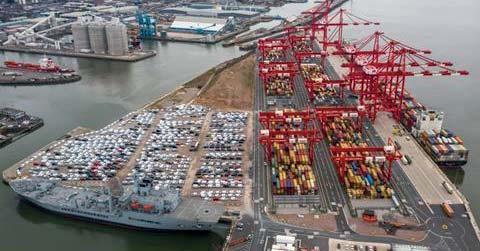
construction and refurbishment; and demolition. The second framework covers specialist marine construction works including piling; asset renewal and refurbishment; berthing furniture and bollards; quay walls; Lock and Sluice gate maintenance and replacement; and RoRo.
“Our ports form a network of busy logistics hubs servicing
local, national and global supply chains, and this move represents a huge step in our efforts to future proof that network, so we can keep responding and adapting to our port users’ needs in an agile way,” said Lewis McIntyre, managing directorPort Services at Peel Ports Group.
AGREEMENT SIGNED TO BUILD A -CLASS WTIV
Two of the best-known firms in offshore installation have signed a long-term agreement to build a much-needed new vessel.
The agreement between Ørsted and Cadeler means that Ørsted will have access to a new-build A-Class vessel from early 2027 to the end of 2030, it says.
The A-Class can transport up to six XXL monopile foundations at one time, or up to seven complete 15MW turbine sets per load.
It is even capable of
transporting the next size coming in turbines – a 20MW giant turbine, five of which could be transported at a time.
“We have ambitiously invested and poured our unique knowhow into our new-build wind turbine installation vessels to create security in our part of the value chain,” said Cadeler CEO Mikkel Gleerup.
“And we’re ready to handle the largest and most complex next-generation offshore wind
installation projects. Our ambition is to help our partners install and realize the offshore wind farms needed for the world’s energy transition.”
“Securing long-term capacity with strategic suppliers is key for Ørsted to build collaboration and together manage risks and execution of our offshore wind construction program towards 2030 and beyond,” said Patrick Harnett, chief operating officer at Ørsted.
LATVIA EMBARKS ON OFFSHORE WIND VOYAGE
The Baltic nation of Latvia has signed a contract with Dutch engineering giant Van Oord to build one of the first offshore wind farms in the country.
The E-Pusher is a modular and scalable. Over the next two years, Van Oord will carry out works including developing a business plan and helping with the technical design of the site.
Construction of the offshore wind support base will begin in the Outer Harbour of the Port of Liepaja in 2026, with plans to get it operating for the middle of 2027.
“The new terminal will address the lack of the port infrastructure
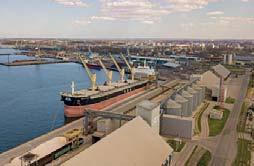
capacity needed for the construction of wind farms in the Baltic Sea,” said a statement from the port. “Moreover, it is expected that the developed site will be used for handling other oversized cargoes as well as for industrial manufacturing purposes. The
55-hectare area will be created by reclaiming the dry land areas, thus establishing a new multifunctional cargo-handling infrastructure and also giving the opportunity to place new production and/or assembly facilities.”
The Outer Harbour, says the statement, is surrounded by breakwaters and equipped with three port gates, thus offering vast opportunities for the development of offshore wind and other energy projects.
The Baltic Sea is home to a growing number of offshore wind farms, but this is the first one under the flag of Latvia.
BRIEFS
Latvia kicks
off OSW
The Baltic nation of Latvia has signed up marine engineering giant Van Oord to start construction on its first offshore wind farm in the Baltic Sea. An offshore wind hub will be created at the Port of Liepaja, where 55 hectares at the Outer Harbour, which is surrounded by breakwaters, will be reclaimed as dry land to handle cargo and accommodate new assembly or production facilities.
MHO-Co unveils
E-CTVs
CTV designer, owner and operator MHO-Co has unveiled two electric CTVs that do not use diesel engines for propulsion.
MHO Boreas and MHO Balder have fully integrated designs that combine Danfoss Drives with IPS drivelines by Volvo Penta, fed by a battery bank for full electric mode. Eight Volvo Penta D8 variable-speed gensets are also included to increase the vessel range.
Claus Larsen, with MHO-Co, said the electric drivelines would allow a future-proof design to be created and the possibility of using future fuels.
All-Energy
Glasgow 2024
Glasgow’s SEC will host the exhibition and conference on May 15-16, this year co-locating it with ‘DCarbonise’ to encompass a range of topics from offshore wind and renewable energy to building cities and transport networks in a low-carbon way. More than 10,000 visitors and exhibitors from all over Europe are expected to attend, as well as Scottish first minister Humza Yousaf, organisers said.
For the latest news and analysis go to www.maritimejournal.com APRIL/MAY 2024 | 5 NEWS
8 Peel Ports’ Liverpool2
8 Port of Liepafa on the Baltic Sea, Latvia
NEW SWATH DESIGN OF CTV FROM AD HOC
A new SWATH design has been announced for a vessel order that will be built in Finland.

Ad Hoc Marine Designs (AHMD) has announced a new design of Small Waterplane Area Twin Hull (SWATH) crew transfer vessels (CTVs) for Maritime Craft Services (MCS).
Three vessels to the new design will be initially be built at Työvene yard in Finland.
The SWATH design concentrates a large proportion of its floatation volume into bulb-like hull sections deep beneath the waterline.
These torpedo-submarine shaped flotation bulbs support the weight of the vessel through narrow, hydrodynamically efficient hull struts and in the case of the AHMD design have additional motion stabilisation with zero speed heave mode controllable fins .
The vessel’s engines, fuel and other heavy equipment are contained within the upper haunch region for easy access and maintenance from the main deck, allowing the struts to only require minimal wiring and plumbing to pass through them - thus enabling them to be made very narrow and hydrodynamically efficient.
The main advantages of a SWATH hull form over a more traditional monohull or catamaran are twofold - the efficiencies derived from a low waterplane area; and decreased vertical accelerations in rough sea conditions, which allow a wider window of operation with more comfort for passengers and crew.
Reduced waterplane area
The waterplane area is the part of a vessel’s hull that would be seen if it was sliced horizontally along the waterline. It is a major contributor to wave-making drag and hence a vessel’s overall drag, as well as the vessel’s natural period of motion.
A SWATH vessel design largely reduces the waterplane area by having only the two foil-shaped, knife-like support struts intersecting the waterline. A correctly designed SWATH hull offers significant CO2 reductions over a comparable catamaran or monohull, particularly at slow speeds.
At much higher speeds, monohulls and catamarans are able to use their hull shape to minimise resistance, whereas the efficiency advantages of the SWATH hull form begin to reduce with increasing speed.
It is also the reduced waterplane area that brings the improved seakeeping of a SWATH hull.
A vessel’s volume distribution and waterplane area are what causes it to heave and pitch as it passes through waves.
Reduce the waterplane area and the designer reduces the heaving and pitching forces that waves can exert on the vessel.
Adding motion control fins to the SWATH hulls as in this design reduces these vertical accelerations even further, making for a supremely seakindly ride, at any speed and sea state.
Ad Hoc’s designs
While SWATH designs have been around for many decades, and even more on paper alone, the number of naval architects and shipyards worldwide that can routinely produce SWATHs that can deliver all the promised advantages can be counted on the fingers of one hand.
“For more niche designs such as SWATH hulls there is nowhere near as much prior art as there is for more conventional hull forms,” said John Kecsmar, naval architect at AHMD. “Ad Hoc Marine Designs has been involved in highly successful and proven SWATH designs for more than 30 years, and these range from 13m in size up to current SOV designs of 71m.
“Our back catalogue of designs spans from our first SWATH MV Patria in the late 1980s as well as the naval architecture design of the Lockheed Martin SLICE© SWATH, to our latest range of Typhoon Class of CTV SWATHs that are extending the North Sea operational window by more than three months per year.”
The vessels will carry 30 tonnes of deadweight along with 24 technicians in business-class seating with low risk of seasickness thanks to the extremely low motions of a SWATH hull form.
This new design is a larger version of the Typhoon Class of SWATHs currently operated by MCS, thereby pushing the safe operational envelope from their existing Hs(significant wave height capability) of 2.5m to 3m.
“The major advantage of the SWATH design is its superior response to high seas, allowing operation up to an extra 100 days a year over a conventional catamaran,” said Menno Kuyt, commercial director at MCS and operator of two AHMD SWATH CTVs.
The hull form also exhibits low resistance at low/loitering speeds and requires less than 50% of the power required by an equivalent size and displacement conventional vessel when operating at slow speed.
6 | APRIL/MAY 2024 For the latest news and analysis go to www.maritimejournal.com
VESSEL BUILDING & LAUNCHES
Diverse Marine’s second stock build is now under way - The Typhoon Class CTV, which is equipped with zero-emission power management and resistance-reducing technology.
The 25m Diverse Marine Typhoon Class CTV has been developed in combination with designer, builder, multiple CTV operators, windfarm developers and prime contractors to meet O&M project requirements.
Honed expertise
Extensive CFD has been carried out to develop the hull form of the vessel that incorporates an ultra-fine entry for excellent head sea performance and tower access.
During the design process, the team assessed many options to reduce hull resistance and as a result the hull form dismisses a conventional chine construction in favour or a rounded bilge type design.
This resulted in a 11% reduction in resistance at transition speed, commonly referred to as‘hump speed’ and a 7% reduction in resistance at operational speed.
A further 21% reduction in resistance at service speed is also gained through the transom foils, also reducing the running trim. Less resistance results in a reduction of fuel
DIVERSE BEGINS ITS SECOND TYPHOON CLASS CTV BUILD

burn and CO2 emissions speed for speed.
The Typhoon Class is offered as standard with Zero Emissions (Power Management) class notation, recognising its reduction in fuel consumption and CO2 emissions. Available

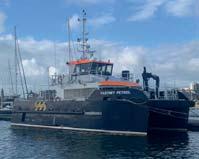

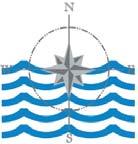
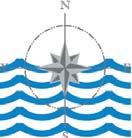













For the latest news and analysis go to www.maritimejournal.com APRIL/MAY 2024 | 7
as
Quad Hybrid IPS, Twin IPS Professional Hybrid, Twin CPP, Twin CPP Hybrid and in the future alternative fuels, leading to full electric to cater for different end user
and budgets. VESSEL BUILDING & LAUNCHES
Quad IPS,
requirements
Marine 8 The Typhoon Class CTV is equipped with zero-emission power management and resistance-reducing technology MARINE PLANT SPECIALISTS WESERVICE WORLDWIDE! Fastnet ShippingLtd • Vessels with International Load Line for sea bed mapping and sampling • Tugs & Pontoons • Jack up Barges • Windfarm Support Vessels • Dive Support Vessels • Multicats Tel: +353 (0)51 832946 Email: info@fastnetshipping.com www.fastnetshipping.com Fastnet Shipping Qtr Page Ad indd 1 14/02/2024 12:24
Source: Diverse
LATEST OF THREE DUTCH
VESSEL RENEWALS CHRISTENED
The Royal Netherlands Institute for Sea Research (NIOZ) has celebrated the christening of the research vessel Wim Wolff from Netherlands-based Thecla Bodewes Shipyards, marking the entry of the latest component in the institute’s three-vessel renewal programme.
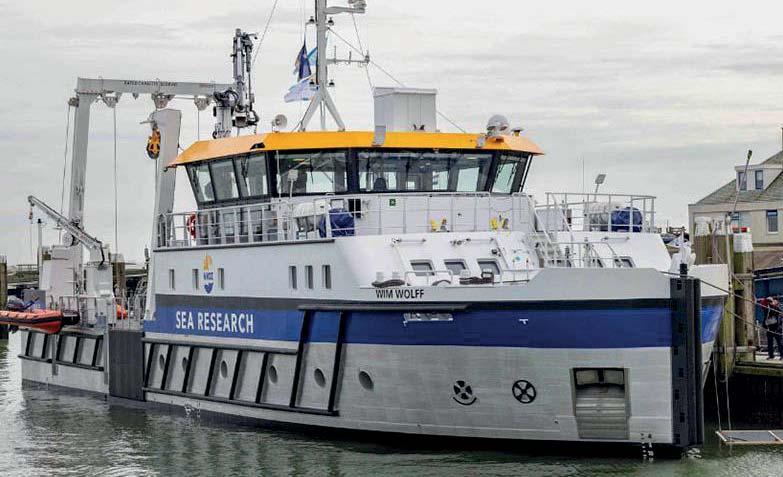
The contract was awarded by the Dutch government’s NWO-I Foundation Board and a green sustainable approach to the vessel’s operation was a principle that the builder said “suited us well”. But with alternative marine fuel very much going through an evolving process and the vessel’s expected lifespan of 30 plus years, at the time of the order the builder considered Wim Wolff’s power plants could be outdated multiple times within the vessel’s life-cycle.
A diesel-electric modular power management system including a lithium-free battery pack from Dutch electric solutions provider D&A Electric was selected, including provision for the vessel to be easily adapted to new technologies and energy sources without major renovations.
The vessel will operate on HVO in combination with the battery pack, and the design includes provision for the future use of hydrogen or methanol
The vessel will operate on HVO (Hydrotreated Vegetable Oils) in combination with the battery pack, and the design includes provision for the future use of hydrogen or methanol.
NWO-I had earlier said that Wim Wolff approaches its “high green ambition level of zero-emissions” as much as was currently possible and with its area of operations including
Dutch coastal waters, Wadden Sea and Zeeland Delta, less disturbance of the marine environment will result from operating at the equilibrium of optimal propeller and engine rpm, whereby noise and vibration are “notably reduced”. It will be capable going aground for extended periods of time with batteries providing the necessary energy to run the vessel’s equipment.
The 36.9m LOA craft has a draught of just one metre and power is supplied by twin Scania main engines driving fixedpitch propellers providing a speed of 10kn. Wim Wulff will replace the research vessel Navicula, which was delivered in 1981 by Dutch shipyard Visscher & Zoon – Zwartsluis.
Fleet replacement
The realisation that the Dutch marine research community’s three-vessel fleet needed to be replaced originates from 2015. In 2021, Next Generation Shipyards in Lauwersoog was contracted to build the second replacement vessel, the 19m LOA, 20kn Adriaen Coenen to replace the “seriously outdated” 50-year-old Wadden Sea research vessel Stern. The new vessel was christened in July 2022.
Also in 2022, Spanish shipbuilder Astilleros Armon Vigo SA was contracted to build the 79.9m long, 3,481gt research vessel Anna Weber – van Bosse to replace the 35-year-old research vessel Pelagia. The new vessel is capable of operating close to the edge of sea ice in the Arctic and Antarctic and with its keel laid in December 2023 and launching scheduled for October 2024, delivery is expected at the end of 2025.
8 Wim Wolff will be capable of spending long periods aground during its research activities
8 | APRIL/MAY 2024 For the latest news and analysis go to www.maritimejournal.com
VESSEL BUILDING & LAUNCHES
Source: Thecla Bodewes
Seawork exhibiting shipbuilder Strategic Marine has delivered a StratCat 27 hybridready wind farm support vessel for the offshore wind farm Yunlin as the country tries to achieve 5.7GW by 2025.
Taiwan has set itself high goals for offshore wind, but will not hit these targets without help from the rest of the world, says global law firm Norton Rose Fulbright.
The crew and cargo transfer vessel contract was worth $3 million to Strategic Marine and will be owned and operated by Prosperous Wind Shipping, which will use it for construction, maintenance and operations from this April.
Taiwan’s offshore wind industry is in its infancy, with the first few steps just being taken but an ambitious goal set of installing 5.7GW by 2025.
The first project was installed in 2019, according to Norton Rose Fulbright, with a generating capacity of just 128MW.
The lawyers say that to hit its goal of installing more than 700 turbines by 2025, Taiwan will need to throw $20 billion at the industry.
“Taiwan’s ambitious program to promote offshore wind power as a major energy source – installing over 700 turbines in the Taiwan
TAIWAN’S WIND FARM SECTOR SETS 5.7GW GOAL BY 2025
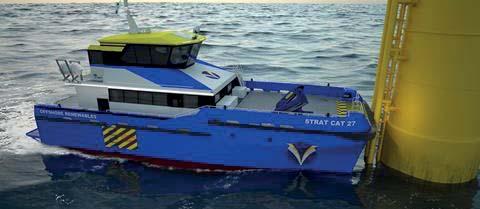
Strait by 2025 - will require an estimated investment of US$20 billion, the firm said in its Focus on Taiwan commentary. “Lacking experience in the industry, Taiwan is relying heavily on the participation of global players by making firm policy commitments, offering attractive subsidized rates, and adopting new financing models.”
Strategic Marine, which is based in
Singapore, has customers all over the world, with the government of Bermuda selecting the yard to build two 550-passenger catamarans last month.
In January, the company was selected to build a fast crew boat for Bruneian oil and gas company Amarco.
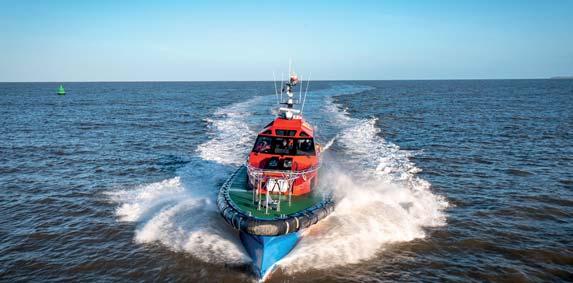

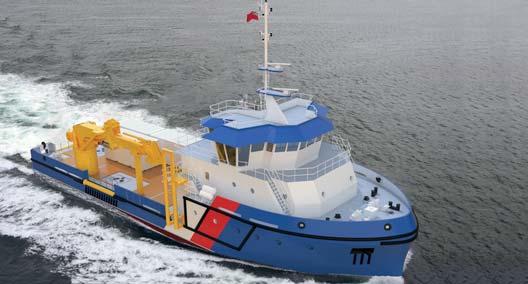
8 StratCat 27 For the latest news and analysis go to www.maritimejournal.com APRIL/MAY 2024 | 9
BUILDING & LAUNCHES
VESSEL
--Pilot Vessel - ORC 121-Project Support Vessel---MARKET-LEADING MARINE EXPERTISE NEW VESSELS AVAILABLE FOR CHARTER IN 2024: To Enquire: T: +44 (0)1592 872939 | E: enquiries@briggsmarine.com | W: briggsmarine.com
NEW PILOT VESSEL FOR BRIGGS MARINE
Maritime services provider Briggs Marine has added another pilot launch to its varied fleet of vessels following delivery of the ORC-121 Forth Navigator from UK-based, family-owned boatbuilder Goodchild Marine.
In 2022 when Briggs Marine took delivery of another ORC121 pilot launch, bringing the number of ORC-design vessels in its fleet to six, the Burntisland-based company said demand for such vessels was outstripping supply. That provision is now enhanced following the arrival of Forth Navigator, which adds another of the class to its portfolio with the total number of assets in its diverse fleet standing at 30 vessels.
Port support services are part of Briggs Marine’s activities, the company reporting the transfer of 6,984 pilots and the carrying out of 7,719 ship mooring operations in 2023.
This latest addition is road transportable, offering rapid mobilisation to anywhere in the country, and will be available for short or long-term charter for a range of activities including pilot boat or harbour patrol duties.
This latest addition is road transportable, offering rapid mobilisation to anywhere in the country, and will be available for short or long-term charter for a range of activities including pilot boat or harbour patrol duties
Goodchild Marine is now well established with production of ORC series pilot vessels, a design from naval architect Pantocarene Limited. The Burgh Castle, Great Yarmouthbased boatbuilder has four ORC variants in its catalogue ranging from 12m to 17m in length, the ORC-121 the smallest in the range.
Steven Pierce, of boatbuilder Goodchild Marine, said: “One of the main benefits to this vessel is that the semi displacement hull design of the ORC is about 40% more fuel efficient than counterparts of similar size, helping to reduce emissions. In addition, the road transportability of the 12m pilot vessel adds another dimension of flexibility, allowing it to reach various locations swiftly.”
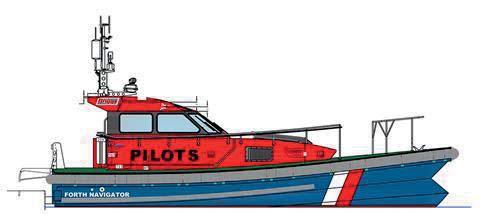
Looking in detail at Forth Navigator’s specification, the vessel meets MCA Category 3 (30 miles from a safe haven) certification and has a length overall of 12.056m and beam overall 4.73m with a draught (98% conditions) of 1.379m dependant of loadings. Constructed of GRP, it has an approximate maximum displacement of 14.3t and is subdivided by four watertight bulkheads with a maximum capacity of six persons.
Power is provided by two Volvo Penta D8, Tier III compliant main engines, each developing 450hp at 2,700rpm and connected to Twin Disc MGX-5126A 2.5:1 reduction gearboxes with propulsion in turn via ISO 8845 NAB 27x37 five-bladed, fixed-pitch propellers.
Fuel capacity is 1,436 litres and total power is stated as 882kW, delivering a service speed of approximately 21kn and maximum speed 26kn.
Goodchild Marine was founded in 1978, the company designing, building, repairing and refitting vessels in the commercial and leisure sectors. As well as the ORC series (which are in operation as far afield as Australia), which includes hybrid versions, Goodchild offers Halmatic Nelson pilot boats and boats from the AquaBell series, which meet MCA Category 2 Workboat Code rules for operation up to 60 miles offshore. These are popular as angling boats and workboats as well as harbour, pilot and police launches.
Goodchild’s refit and repair activities include work for the Royal National Lifeboat Institution, for whom it has been a nominated refit and repair yard since the mid-1990s.

10 | APRIL/MAY 2024 For the latest news and analysis go to www.maritimejournal.com
8 Forth Navigator is built to the distinctive ORC design
VESSEL BUILDING & LAUNCHES
Source: Briggs Marine
8 Goodchild Marine is based near Great Yarmouth on the UK east coast


The best things come in small packages.
Damen’s compact ASD Tug 1810 represents the latest in multi-purpose harbour towage. With 30 tonnes of bollard pull it has the power to confidently handle ships of all sizes, and the combination of Damen’s patented twin fin skeg and twin Azimuth thrusters ensures excellent manoeuvrability. The double drum winch is positioned inside the deck house, allowing the single winch to operate over both the bow and stern. As the latest in tug technology, the ASD Tug 1810 comes prepared for full compliance with IMO Tier III regulation.
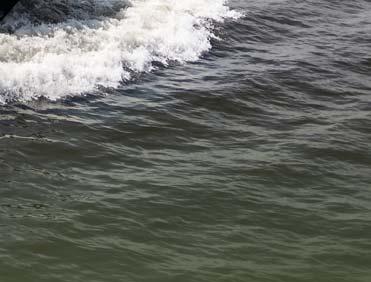
Find out more on Damen.com
Pictured here: ASD Tug 1810
CHANNEL ISLANDS TUNNEL TO FRANCE - DREAM OR REALITY?
Subsea tunnels connecting the Channel Islands to France have become a very real possibility, says Martyn Dorey, a Guernsey local who founded an impact group to assess the potential of such a scheme.
High-speed trains would take French residents between Normandy and the Channel Islands on a daily, commuter friendly basis.
A 44km tunnel would be dug between Guernsey and Jersey, and a second from Jersey to Normandy – possibly Granville.
The idea has been spawned largely because of Jersey and Guernsey’s need for workers across all sectors, says Dorey. Shortage of housing means they would have to commute, which would be convenient and quick by train.
The cost of shipping goods on and off the islands has also boomed, and a tunnel would open a vital freight route, he says.
Dorey, who runs his own finance company, is a former president of the Guernsey Chamber of Commerce. Having explored the different engineering successes of subsea tunnels around the world, such as an 11km one in the Faroe Islands and at least 40 in and around Norway, he decided to pursue the idea with the Norwegian Tunnelling Association, which agrees that the idea is not lunacy.
“There were suggestions for a cable car, airship, seaplane – and we looked at all these things,” he said. ”We ruled out cable cars because you do actually need mountains for that, and neither island has one.
What could once have seemed impossible because of the engineering costs and time-scale is now looking like a real possibility, with initial theories about what kind of rock lies underneath the water where the tunnels would be dug
“Airships have vertical take-off and landing, they’re a tenth of the cost of an aircraft to run – what’s not to like? So we spoke to a technology firm in Munich and they said you’d only be able to use it for two months a year and you can’t fly it at night.
“So then we moved on to a seaplane – there was a brilliant wave-piercing seaplane design, but you’d need at least £500 million just for the R&D. And it’s about 20 years down the line.
“The tunnel was literally the last thing left on the board.”
Meeting at a Chamber of Commerce event earlier this month, presentations were given by Arild. P. Sovik, network director at the Norwegian Tunnelling Society; and Teitur Samuelsen, CEO of Eystur- og Sandoyartunlar, the Faroe Islands government-owned tunnel corporation.
Rock quality
What could once have seemed impossible because of the engineering costs and time-scale is now looking like a real
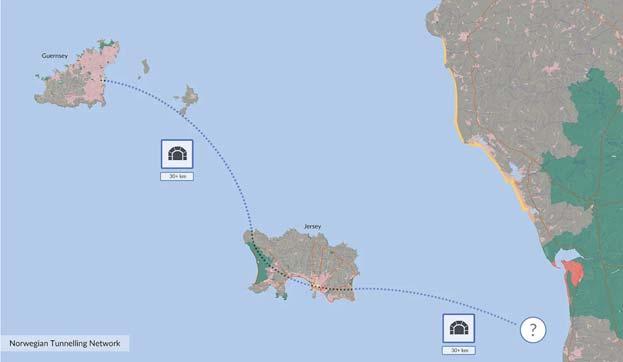
possibility, with initial theories about what kind of rock lies underneath the water where the tunnels would be dug.
If the rock along the route is of the granite variety, as the Norwegians believe, the tunnels could be mined as opposed to dug out with a boring machine and not require concrete supports, as was the case with the Channel Tunnel, which Dorey calls ’a physical success and a financial failure’.
“We would also be able to sell the spoil, which would be far more valuable than the more sifted, silty material produced with a boring machine,” he says.
“Holes would be blasted and large chunks of rubble excavated possibly by sinking shafts into the route of the tunnel, into the seabed, then working in stages.”
Even if the rock did have clay or chalky areas, there are methods whereby rock can be frozen, sealed or cut out, depending on what is there.
“Realising the rock was probably hard was a light-bulb moment,” says Dorey. “The harder the granite the better, you drill and blast it and it supports itself. The experts say it looks like it’s hard rock but even if there’s a sandstone section, we can work with it.”
The scheme is in its embryo stages, but if Forey is right it could completely transform the economies of the Channel Islands and northern France.

12 | APRIL/MAY 2024For the latest news and analysis go to www.maritimejournal.com
8 Proposed tunnel route between the Channel Islands and France
MARINE CIVILS
8 Martyn Dorey
More than 60,000 solar panels will be installed on Port of Liverpool roofs in what energy firm Eon is calling the largest solar project in the UK.
The panels will be placed on the roofs of 26 buildings in the first stage of a target to cut emissions to zero at the port.
The second phase will be to ‘re-power’ wind turbines along the River Mersey, in other words, replace the existing five machines with four larger ones.
The new ones will increase the power generation capacity of the turbines to 20MW to complement the solar panels’ capacity of 31MW, which is estimated to be 25% of the port’s needs.
Port of Liverpool owner Peel Ports has signed a 25-year agreement with Eon in a bid to achieve net zero emissions throughout its operations by 2040.
All equipment and machinery needed for the installation work will be delivered to the port by sea to avoid snarling up the road network, the developers say.
“Ports of the future need to become more sustainable environments and we must play our part in a greener supply chain,” said Claudio Veritiero, Peel Ports CEO. “There is still work to do, but this project is a huge step for
PORT LAYS OUT AMBITIOUS SOLAR AND WIND PLANS
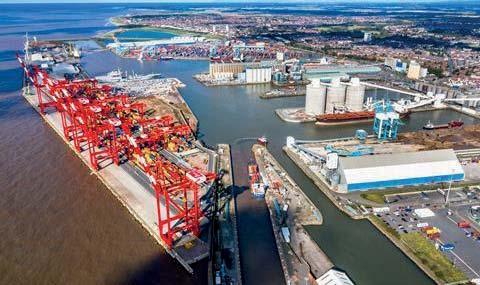
Planning applications have been made to

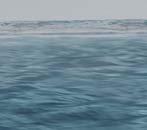
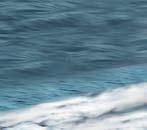





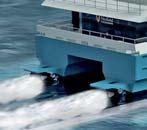
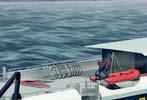
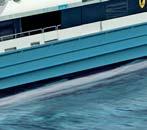

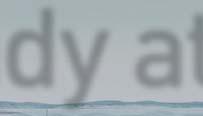
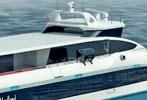


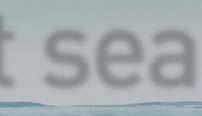
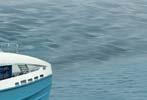
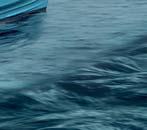

Improve your working days


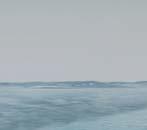
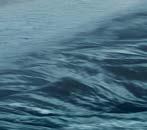
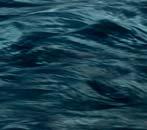


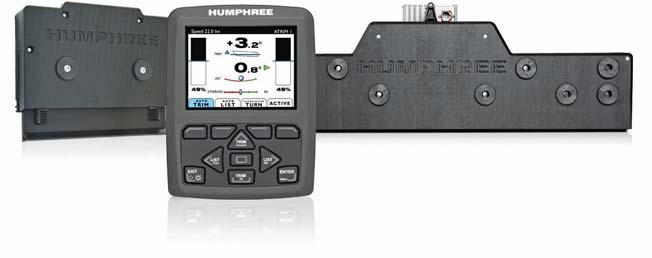
Install Humphree ACTIVE Stabilisation and working days on the sea will be steadier than ever. Our ACTIVE interceptor system lowers roll and slamming by up to 50%. And it feels like even more. It also reduces resistance. That means lower fuel consumption and less CO² emissions. Easy to install, easy to operate. Premium technology at aff ordable pricing. Help our planet and ensure a successful mission

8 Port of Liverpool For the latest news and analysis go to www.maritimejournal.com APRIL/MAY 2024 | 13
MARINE CIVILS
Peel Ports Group in cutting emissions and driving our ambition to become a net zero port operator by 2040.”
FOR ALL BOATS, FAST FERRY, PILOT, POLICE , RESCUE , COAST GUARD, NAVY, MONOHULLS AND CATAMARANS. www.humphree.com
Humphree international dealer network - visit humphree.com
the authorities for the solar panels to be installed by the middle of 2026 and the turbines re-powered from 2027.
Steady at sea
For
you
crew
for
and your
at humphree.com
EMERGENCY DAM INSTALLED WITH DUTCH EXPERTISE
An emergency temporary dam has had to be built in the Netherlands’ city of Maastricht after a spillway dam on the River Meuse was damaged earlier this year.
Part of the lining of the spillway had been loosened and washed away by the force of the water, and strong currents made it impossible to repair the dam within a short time scale.
The Public Works and Water Management Office (Rijkswaterstaat) commissioned contractor Mourik to organise the repairs, many of which were carried out by Van Oord.
“Due to the high water discharge and associated flow velocities, this was a complex operation,” said Van Oord. “After the hole in the spillway dam was caused, a first emergency dam was constructed within a week to reduce the strong current.
A second emergency dam has now been installed to secure the river water level with the use of fascine mattresses – the use of which is particularly common in the Netherlands
“To construct this first quarry stone emergency dam, Van Oord deployed crane vessel Leendert Sr and two excavators. To build the emergency dam from both banks, Rijkwaterstaat engaged the Ministry of Defence to build a ferry connection between the east and west banks of the River Meuse for moving equipment across.
“Simultaneously, Chinook helicopters flew back and forth with nets full of quarry stone to partially close the hole in the spillway dam.”
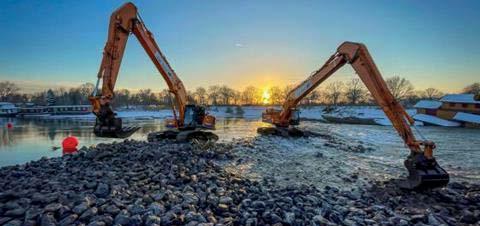
Dutch speciality
A second emergency dam has now been installed to secure the river water level with the use of fascine mattresses – the use of which is particularly common in the Netherlands.
These are essentially large woven mats made of brushwood or twigs, and are placed in rivers to strengthen banks and coastal structures such as groynes. They can also be used to protect river and sea beds from scour. Because these mattresses are used so widely in the Netherlands, the materials required to make them are harvested in specially created plantations.
In the Meuse River, Van Oord towed them to where they were needed then weighted them down with rocks. More than 150,000 tonnes of quarry rock was installed to raise the emergency dam to the correct height and now the water is at a level that can allow permanent restoration of the spillway dam to be undertaken.
‘Titanic’ builder selected for Falklands contract
Harland & Wolff is the preferred bidder to build a port facility on the Falklands Islands, the famous shipbuilder has announced.
The Falklands Islands Government (FIG) has selected the Belfast-based shipbuilder to replace its FIPASS (Falklands Intermediate Port and Storage System) at Port Stanley.
FIPASS is a floating structure consisting of six linked pontoon open deck or warehouse barge units and one ro-ro pontoon unit, which also connects the barge units with a steel modular causeway to the shore.
The original facility was built and installed by Harland & Wolff though the UK Ministry of Defence in 1984, two years after the Falklands War, and the FIG bought it in 1988.
The FIPASS project involves the build, transport and installation of four floating pontoons, each measuring around 90 metres each in length, says Harland & Wolff,
8 A total of 150,000 tonnes of quarry stone was installed as part of a spillage dam repair

which says it will build the structure across its four sites of Belfast, Appledore, Arnish and Methil.
“We are proud to have been chosen as the preferred bidder for the FIPASS replacement, marking another significant achievement in our expanding non-defence portfolio,” said CEO John Wood.
“This project not only highlights our enduring partnership with the Falkland
Islands Government but also reinforces our reputation as a trusted provider for large and complex marine engineering projects.
“With our history of delivering the original FIPASS, we bring a wealth of experience combined with the latest in manufacturing innovation to deliver a modern, efficient, and sustainable port system.”
14 | APRIL/MAY 2024For the latest news and analysis go to www.maritimejournal.com
MARINE CIVILS
Source: Van Oord
8 Port Stanley
A multi-million euro project to transform the Italian Port of Genoa with a 6.2km breakwater built on a base 50 metres deep has had a million tonnes of gravel laid along the seabed, amounting to 40% of the laying activities.
The Italian engineering firm Webuild Group says it has submerged 1,320 gravel columns with material supplied from quarries in Liguria, Piombino and Cartagena in Spain and transported to Genoa on three bulk carriers.
A large barge equipped with four 40m tall cranes, each with 22m needle-shaped vibrating probes, is moored at the port, ready to build the caissons that will be at the heart of the breakwater. The building of the caissons is scheduled to begin next month.
“These huge cellular reinforced concrete blocks, when built, at a maximum depth of 50 metres, one next to the other, will complete the 6.2 kilometres foreseen for the breakwater project,” says the Webuild Group.
“Phase A of the project foresees the construction of 97 caissons, of which the largest will be each as tall as a 10-storey building, therefore reaching 33 metres in height, 35 metres in width, 67 metres in length.”
It has also been necessary to carry out UXO searches, 70% of which are now complete, the firm says, with the remainder
COLUMNS SUBMERGED FOR 6.2km GENOA BREAKWATER
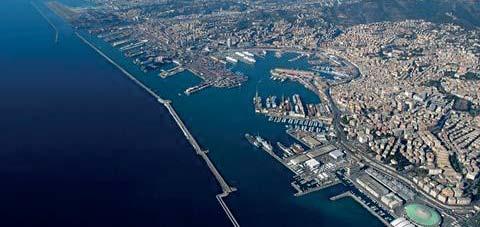
due to be completed this summer.
Costs have risen in the project, from a projected €930 million when the contract was signed to €1.3 billion at the stone-laying ceremony last May.
International Media Relations spokesman Gilles Castonguay said the project was ‘unique in the world’ for scale and complexity.
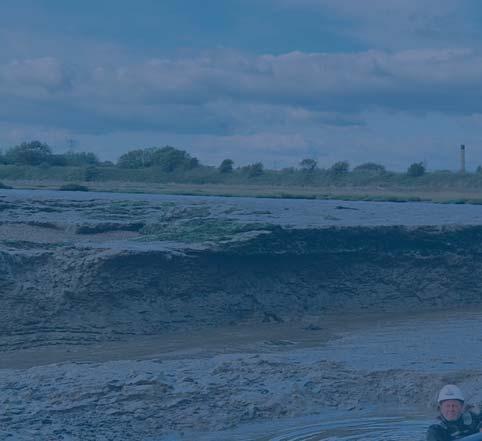
The breakwater will provide safe access for today’s 450m long ships, which cannot use the Port of Genoa in its current form. A new 800m turning basin will give the port, Webuild says, the ability to compete with Europe’s biggest ports.
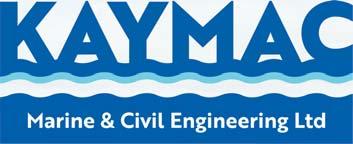






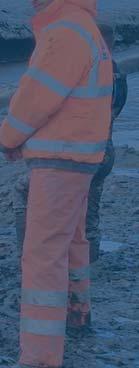

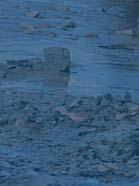

8 Port of Genoa For the latest news and analysis go to www.maritimejournal.com APRIL/MAY 2024 | 15
MARINE CIVILS
EngineeringInnovationAboveandBelowthe WaterlineSince1976 www.kaymacmarine.co.uk EngineeringInnovation Above&Belowthe Waterline Kaymacisamulti-award-winningspecialistMarineandCivilEngineering Contractorwithatrackrecordofexcellence,innovationandsafetyinthe utilityandtransportsectors. Wespecialisein: ThedesignandinstallationofbespokeInnovativein-watertemporaryworks Restoringandmaintainingthe nation'sriversandwaterwaystransportassets ScourProtection FloodProtection WasteandWaterSolutions
LONDON 25km ‘SUPER SEWER’ FINALLY COMPLETED
The largest infrastructure project ever undertaken by the UK water industry has finally been completed, some 12 years after initial investigations were carried out.
After eight years of intensive building works London’s new ‘Super Sewer’, formally known as the Thames Tideway Tunnel, is now complete, resulting in a 25km long, 7.2m wide main tunnel with a 4.5km connection tunnel in southeast London and a 1.1km tunnel in southwest London.
The critical milestone was achieved by engineering firm Tideway in March, with the fitting of a 1,200-tonne concrete ‘lid’ on the top of a 70m-deep shaft.
Twenty-four metres in diameter, the lid had to be placed using a purpose-built gantry crane and other manoeuvring equipment in a procedure that took five hours.
It was the heaviest lift in the entire project, which has been done by Tideway, a consortium of investors including more than two million pensioners.
The cost of the tunnel is estimated to be £4.5 billion (€5.3 billion), and will be paid for by Thames Water customers through their water bills, which Tideway promises will rise by no more than £25 (€30) a year.
Engineering works
The project, extending from Acton to Beckton, involved 70 work sites, including 11 riverside construction sites.
The main reason for the project was to reduce by almost 100% the millions of tons of storm sewage that spills into the River Thames every year, thanks to an outdated Victorian sewer system that has never been updated despite the population more than doubling since then.
The main reason for the project was to reduce by almost 100% the millions of tons of storm sewage that spills into the River Thames every year, thanks to an outdated Victorian sewer system that has never been updated despite the population more than doubling since then
The storm sewage will be diverted into the new infrastructure to change the famous river into a cleaner waterway than it has been since London was a city.
Jack-up rigs were deployed along the river in 2011 to carry out ground investigations to analyse the material that tunnel boring machines would have to deal with.
Red7Marine’s Seajack rigs were hired for the job, and it used its own tug to move them around the river.
Other investigations were carried out by Fugro, which over a seven-month period undertook drilling, downhole geophysics and testing down to 80 metres along a 10km stretch of the river.
The company designed and installed adaptations to the
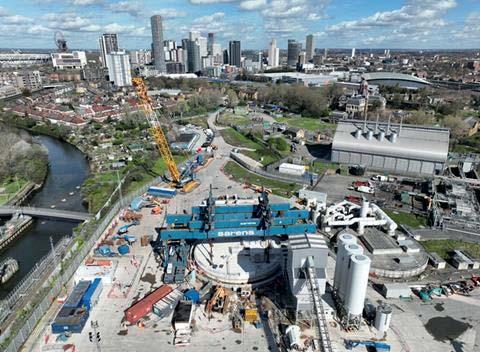
Skate 2D jack-up barge so that leg handling and storage could be done with a single vessel, as well as completing the grilling and testing.
As the tunnels were excavated, millions of tons of underground material were removed by waterway from central London and are now being used to create new parcels of land.
A range of barges from 500t to 1,800t has been used to remove the spoil.
“This is the moment we’ve all been waiting for,” said Tideway CEO Andy Mitchell. “The underground civil engineering on the Tideway project is now complete following eight years of dedicated hard work from all our teams working in the capital.
“There is still work to do – we need to finish some aboveground structures and, crucially, test the system – but this nonetheless marks an absolutely critical milestone for the Tideway project and for London.”
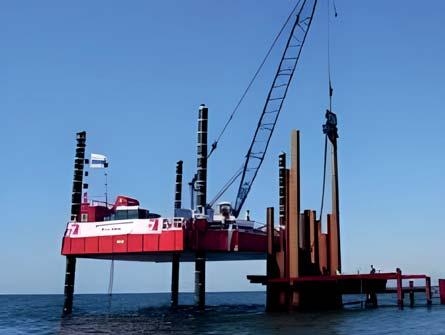
8 It
8 Seajack by Red7Marine
concrete
1,200
16 | APRIL/MAY 2024For the latest news and analysis go to www.maritimejournal.com
took five hours to fit a 24m diameter
‘lid’, weighing
tonnes,
on to a 70m deep shaft
MARINE CIVILS

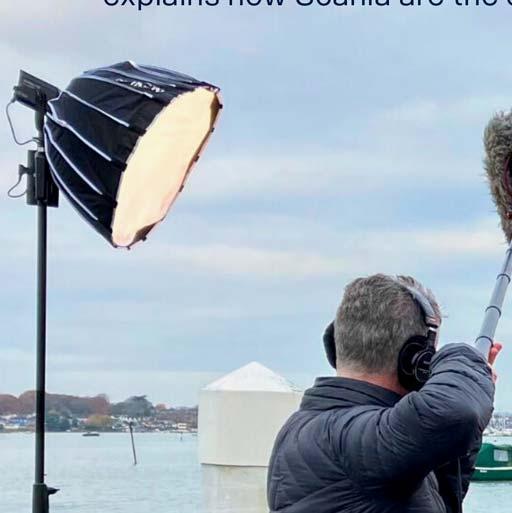
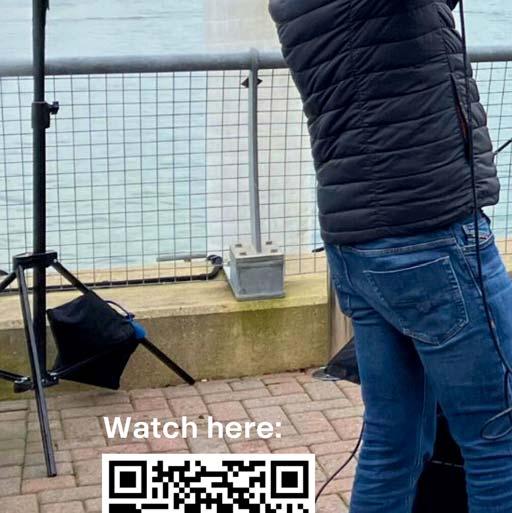
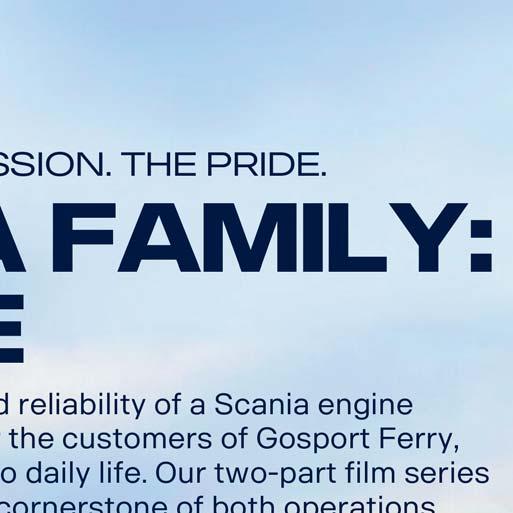

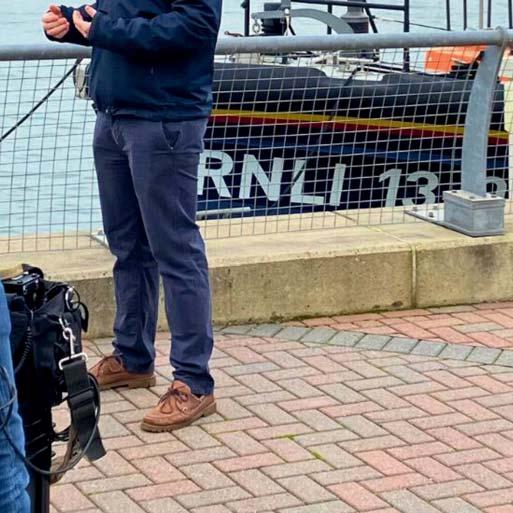


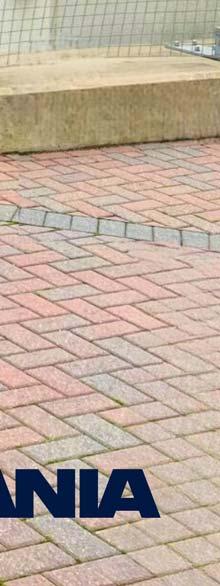
SALVAGING THE ‘DALI’ AFTER FATAL BRIDGE COLLAPSE
As the authorities in Baltimore prepare to untangle the container ship Dali from the collapsed Francis Scott Key Bridge, the local community along with the wider shipping industry are starting to untangle the circumstances surrounding the accident and extract any ‘lessons learned’ for the future.
Ships coming into contact with other objects generally attract little attention beyond the maritime community, usually restricted to webcam clips doing the social media rounds.
When the outbound container ship Dali lost power and struck one of the bridge’s support towers the result was little short of catastrophic, with virtually the entire bridge collapsing in seconds. A warning by the ship of its dilemma allowed the bridge to be closed to road traffic, but a team of eight persons working on the bridge plunged into the water following its collapse.
The immediate consequences were widespread, affecting not only the port but also local communities, for whom the bridge was a major artery.
The access channel was blocked, the ships within effectively trapped and while there are tunnels and bridges upstream, vehicles carrying hazardous materials are prohibited from using them, adding to the ensuing congestion, which is unlikely to ease potentially for years until the bridge is rebuilt.
Response
The immediate priority was search and rescue.
Two of the bridge workers were rescued, two bodies were recovered and the remaining four are now assumed not to have survived. No serious injuries were reported to the 21 crew and two pilots on the container vessel.
A Unified Command was established ashore, including the USCG; US Army Corps of Engineers (USACE); Maryland Department of the Environment; Maryland Transportation Authority; Maryland State Police; and Witt O’Brien’s, representing Synergy Marine.
The next priority was to remove wreckage from the seabed to allow access to the port, along with freeing the Dali, reportedly pinned to the seabed by bridge sections lying on its forepart.
Progress was made with clearing the seabed, allowing a pusher tug and fuel barge to transit a temporary alternate channel with a depth of just 3.35m and vertical clearance 28.9m just a week later, with a second deeper temporary alternate channel opened the following day.
The two elements of the recovery operation involves both marine salvage expertise and similar skills from federal, state and local players for the shoreside elements, including removing the bridge debris. Seven cranes, 10 tugs and nine barges along with more than 1,000 specialist workers are reported to be involved in the recovery operations.
Subsequent global speculation has been widespread but it is reliably reported that USACE is leading the efforts to clear the channel.
It is also reported that Dali’s charterer, Maersk, has appointed Fort Lauderdale-based Resolve Marine to salvage the vessel, while New Jersey-based Donjon Marine is among the other non-government organisations mobilising equipment, including a crane barge.

Lessons learned
The National Transportation Safety Board (NTSB) will investigate and eventually report on the accident in the wake of wild speculation on every aspect of the accident, from the design of the bridge to Port of Baltimore’s operational procedures.
One aspect that soon gained traction was the tug arrangement for vessels using the port.
Two shiphandling tugs assisted Dali from its berth, including turning it to leave via the Key Bridge before being released as per standard practice. The question has been asked whether the ship could have been brought back under control if tugs were still in attendance.
Other ports where escort tugs accompany ships, including under bridges, have been mentioned and it is important to consider the term ‘escort towing’ in this context.
Escort towing generally involves a powerful tug tethered to the ship’s stern to influence its heading (for example if the ship loses steering) from forces generated by the hydrodynamic effect of the tug’s underwater hull profile.
Referred to as ‘indirect towing’, it is carried out when the ship’s rudder still influences its heading and at speeds greater than during ‘direct towing’ operations. NTSB reports that Dali’s speed was approximately seven to eight knots when it lost power, around the limits of when tugs operate in direct mode.
There is still much to emerge from the event that claimed six lives, and the eventual NTSB investigation and recommendations will provide the ultimate verdict.
For the communities around Baltimore, however, the consequences of the loss of their bridge will linger far beyond when the Dali is repaired and likely back in service.
18 | APRIL/MAY 2024 For the latest news and analysis go to www.maritimejournal.com
8 Wreckage from the bridge fell on the fore part of the container ship
TUGS, TOWING & SALVAGE
Source: Uni fi ed Command
Kotug International and Dutch shipbuilder
Padmos have signed a framework agreement where the Stellendam-based shipyard will complete the entire Kotug E-Pusher range of inland pusher tugs.
The E-Pusher is a modular and scalable electric pusher tug featuring swappable energy containers with Stage V diesel, biogas, hydrogen and battery power provisions.
The E-Pusher moved from being purely a concept in 2023, when Padmos built an M-Model, fully-electric example named E-Pusher 1 to move barges loaded with cocoa beans between Amsterdam and Zaandam for global food corporation Cargill.
Kotug says the operation reduces CO2 emissions by 190,000kg per year, the equivalent of 15,000 single truck trips covering the same distance.
The E-Pusher’s zero-emission energy containers can switch energy sources depending on the circumstances and client’s preferences, and Kotug says the modular approach to construction and “circular building” principle implies the vessel has an eternal lifespan as every single part can be replaced, adjusted or removed, including the energy source.
Construction time is claimed to be reduced
PADMOS SIGNS UP TO BUILD KOTUG E-PUSHER TUGS
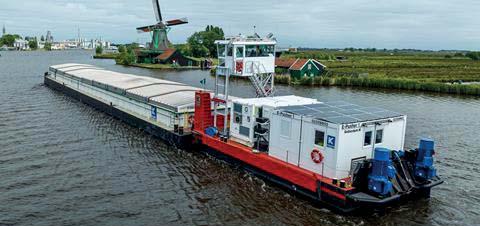
by more than half compared with traditional vessels.
The series has three models: S, M and L, ranging from 9m to 22m in length. The smallest ‘S’ model, also known as the Kotug CityBarge, is also in operation where with partner Circle Line Logistics, a CityBarge is deployed for various projects in the
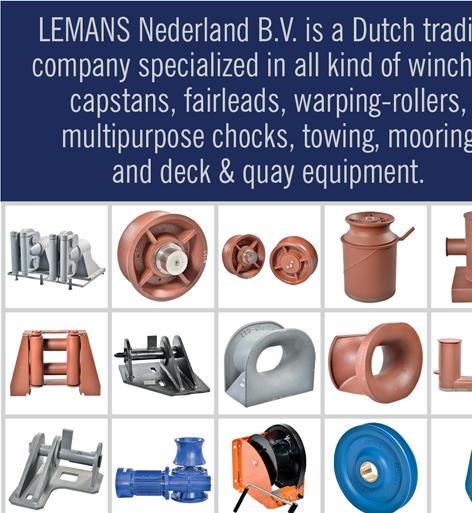
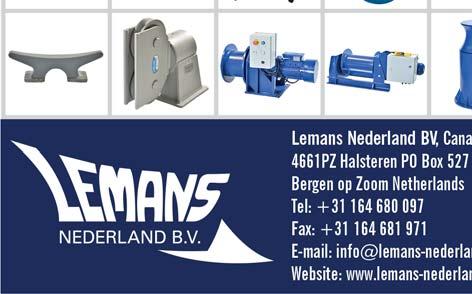
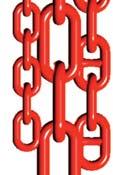

Netherlands, including at Amsterdam, Leiden, Rotterdam and Utrecht.
The vessel can navigate shallow waters and low bridges, making them suitable for water transport in historic city centres and a “natural alternative to road transport”.
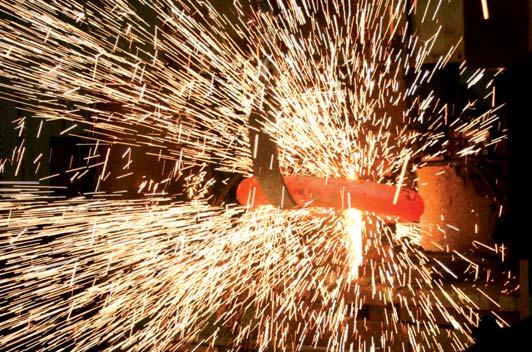
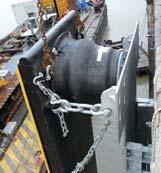



For the latest news and analysis go to www.maritimejournal.com APRIL/MAY 2024 | 19
8 Padmos previously built E-Pusher 1 for Cargill
TUGS, TOWING & SALVAGE
CARLIER CHAINES SAS FRANCE 37-41 rue Salengro - B.P. 10145 - 59733 Saint-Amand-Les-Eaux cedex Tél. +33 (0)3 27 48 12 00 • Fax : +33 (0)3 27 48 95 27 info@carlier-chain.com • www.carlier-chain.com Chain manufacturer
/ LIFTINGMARINE / MOORINGINDUSTRIE / INDUSTRY Fabricant certifié ISO 9001
LEVAGE
BARGES TRANSPORT HEAT IN BATTERIES ALONG RIVER
UK-based Cory Group along with low carbon infrastructure project arranger Sheen Parkside has announced a partnership to decarbonise heating by moving waste heat in thermal batteries on barges towed by tugs on London’s River Thames
Cory’s extensive fleet of tugs and barges have for many years been a part of the Thames river scene, moving around 900,000 tonnes of non-recyclable black bag waste a year between riverside waste transfer stations and its energy from waste (EfW) facility downstream at Belvedere.
The Thames Mobile Heat Consortium includes thermal storage technology company Sunamp, and plans to use the capital’s main infrastructure artery to take heat from along the river, initially from the Belvedere EfW facility and transported by barge to major heat consumers, such as district heat networks.
The project will use “world-leading” phase change thermal storage developed by Sunamp and the University of Edinburgh in batteries which use a salt-based, non-toxic, long duration phase change material (PCM) housed in specially designed shipping containers, making them easy to transport by barge.
The thermal batteries remain on the barge at all times, towed by tugs throughout the passage. At the discharge location a water pipe is run out along a jetty and draws heat from the batteries via an internal heat exchanger.
Cory will draw on its long experience with its lighterage waste transfer operation on the Thames and oversee the marine logistics of the project, which would be run as an independent logistics operation from the waste transfer side of its business.
Using the heat District heating, where high-grade industrial heat is used to provide heat for homes, is expanding across London and other European cities where industry sits alongside urban areas.
Sheen Parkside says the heat is often wasted ‘simply because it is in the wrong place’. One potential customer is the Pimlico District Heating Undertaking (PDHU), owned and operated by Westminster City Council. PDHU is the UK’s oldest district heating scheme, supplying more then 3,000 homes and 50 commercial and community buildings, originally taking heat from Battersea Power Station.
Cory says the Thames Mobile Heat Consortium has the scope to provide around 50GWh of heat per year, transported on two barges, each carrying up to 120MWh in 40 batteries, travelling 28km each way along the river.
Heat supplied on this basis has been modelled at 12gCO2/ kWh or lower, a substantial reduction compared to gas, which is modelled at around 216 gCO2/kWh. From completion of planning and approvals and final commercial agreement it could be operational in less than a year.
Westminster City Council is exploring options for decarbonisation and district heat schemes are considered to have the potential to provide lower-carbon heat, rapidly and at scale, without dependence on electricity grid upgrades. Not coming from an electrical source, it can also help when demand is placed on the UK’s national grid.
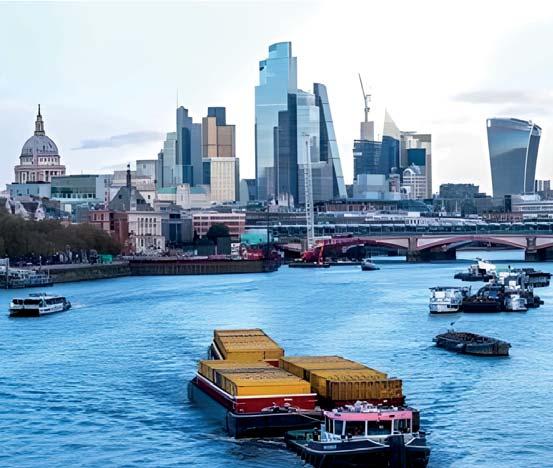
Fleet upgrades
Cory’s fleet of Thames tugs and barges are currently being upgraded.
Early in 2023, two additional Shoalbuster 2208S tugs were ordered from Dutch shipbuilder Damen on the back of plans for a second EfW plant adjacent to the existing facility at Belvedere. Both vessels are scheduled for delivery prior to the new plant becoming operational, scheduled for 2026.
In parallel to the new tug programme, Cory is currently taking delivery of new barges.
In 2019 it reported that Belgian shipyard Meuse and Sombre had signed a contract for 14 new barges, the deal followed in the next year by a reported multi-million pound contract for delivery of 21 barges over a seven-year period from Newcastle-based A&P Tyne.
Belfast’s Harland & Wolff shipyard also benefited from Cory’s ambitious barge replacement plans with two contracts signed in 2022, valued at £18.1 million (€21.1 million), for 23 new barges.
“At Cory, we are proud to provide a vital public service which diverts non-recyclable waste from landfill,” said Development director Chris Girdham. “The EfW process produces huge amounts of heat, and rather than seeing this valuable resource go to waste we want to use it to benefit communities in the UK that are seeking to cut carbon emissions and keep energy bills down.
“By moving heat to where it’s most needed, we can help to reduce our reliance on fossil fuels and maintain the UK’s role as a clean energy innovator.”

20 | APRIL/MAY 2024For the latest news and analysis go to www.maritimejournal.com
8 The River Thames is an artery already well utilised by Cory’s fleet of tugs and waste barges
TUGS, TOWING & SALVAGE
Source: Cory
Boluda Towage will expand its global operations with the purchase of French towage operator Les Abeilles.
Les Abeilles owner Econocom Group has confirmed entering into exclusive negotiations with Boluda to sell 100% of its shares in the French towage operator.
Les Abeilles and Boluda Corporación Marítima have long histories dating back to 1864 and 1837 respectively, with Boluda’s towage division making recent acquisitions including Resolve Salvage and Fire (Gibraltar) Ltd and an agreement to acquire Smit Lamnalco.
This latest development, planned for completion in Q2 2024, will expand Boluda’s presence in France, including the operation of Abeilles’ fleet of Emergency Towing Vessels (ETVs) in operation with the French government.
Econocom describes itself as “Europe’s first digital general contractor”, acquiring Les Abeilles in 2020 before reclassifying it as an ‘asset held for sale’ in 2023. The usual procedures surrounding such acquisitions are now under way, including consultation with the bodies representing staff. The transaction also remains subject to the agreements being finalised and the condition precedents that usually apply to this type of transaction, including approval from the French authorities.
For Econocom the sale is part of its longer term strategy.
“We are delighted with this transaction with the Boluda Group, a global leader in towage,” said chairman and managing director Jean-Louis Bouchard. “Through this sale, Les Abeilles will enjoy support from a major player to develop in the future. The sale will take place as part of our plan to sell certain assets that are not strategic for our core business, which we announced in mid-November as part of our strategic plan for the 2024–2028 period.”
Les Abeilles has been keen to strengthen and develop its French maritime activities, including in 2022 introducing two new powerful additions to its fleet of ETVs, Abeille Normandie and Abeille Méditerranée, stationed in Boulogne to cover the Dover Strait and Toulon in the Mediterranean.
BOLUDA EXPANDS WITH ANOTHER ACQUISITION


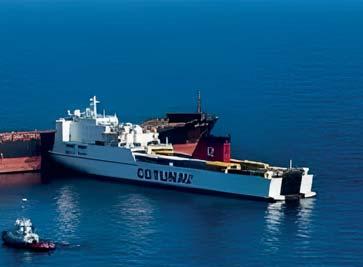
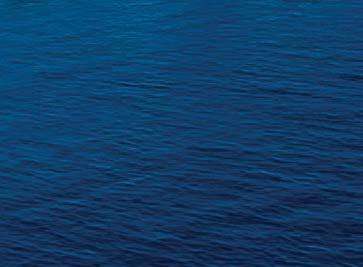
Boluda is a family group that is over a hundred years old. Today, the group has reached a key moment in its history by becoming an undisputed global leader in towage. The arrival of Les Abeilles, with its operational expertise, in our group is a new stage in this growth ‘‘
Boluda chairman Vicente Boluda Fos said: “Our group has been present in France since 2007 and is deeply rooted there. Our commitment to French employment and growth has always been a prominent characteristic of our identity.
“Boluda is a family group that is over a hundred years old. Today, the group has reached a key moment in its history by becoming an undisputed global leader in towage. The arrival of Les Abeilles, with its operational expertise, in our group is a new stage in this growth.”





For the latest news and analysis go to www.maritimejournal.com APRIL/MAY 2024 | 21 TUGS, TOWING & SALVAGE
Source: Marine Nationale
years as the World’s #1 Keel Cooler, Boxcooler & Pillow Plate.
OUR COMPETITION, WE DON’T CUT CORNERS. fernstrum.com • 906.863.5553 See you at Seawork Stand E3.
8 Emergency intervention with marine casualties is all part of Les Abeilles’ services
75
UNLIKE
FLEET RENEWAL FOR DUTCH PUSHER TUGS
Dutch logistics operator Thyssenkrupp Veerhaven has commissioned two companies to produce designs for climate-friendly replacements of its existing pusher tug operation transporting raw materials to Thyssenkrupp’s iron and steel plant in Germany.
C-Job Naval Architects and Kooiman Marine Group have been commissioned to design this “next generation” of pusher tugs.
The colourful seven Thyssenkrupp Veerhaven pusher tugs are regular sights on Dutch and German inland waterways, pushing barges loaded with raw materials between Europoort in Rotterdam and parent company Thyssenkrupp Steel Europe’s iron and steel plant at Duisburg, at the junction of the Rhine and Ruhr rivers.
In what is a 24/7, 365 days-a-year operation, a typical combination of four barges is 193m long, carrying around 11,000 tons of raw material, while a six-barge combination is 269m long.
Transporting 16,000 tons on the 240km journey takes 26 hours at a speed of 9km/hr.
After de-coupling, which takes around three hours, the tug picks up empty barges for the 12-hour return journey to Europoort, where they are loaded again with raw material including coal and iron ore unloaded from bulk carriers that arrive from as far away as Brazil and Australia. Around 18 million mt of raw material are transported to Duisburg via this route every year.
Decarbonising the supply chain
The plan to replace the tug fleet is part of the steelmaker’s programme of decarbonising its entire supply chain, Thyssenkrupp Veerhaven saying it is “venturing into uncharted waters with these plans”.
“In this challenging area of inland waterway shipping, there are currently no vessels that run on environmentally friendly fuels such as methanol,” said CEO Frank Tazelaar. “We intend to play a pioneering role and, with our planned fleet modernisation, we are laying the foundation for innovative technologies that will significantly reduce our carbon footprint.”
In the past, Thyssenkrupp Veerhaven has commissioned a
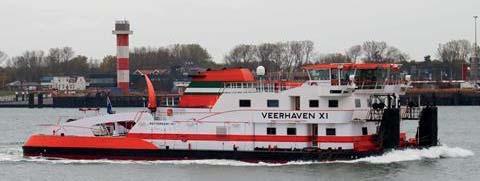
shipyard to build a new vessel but with this project it is taking an innovative approach in its planning process, the owner arranging for specialist design offices to prepare offers for three separate designs.
Thyssenkrupp Veerhaven says its plans to use methanol as a fuel could save around 80% of current CO2 emissions, compared to diesel.
The water level of the River Rhine has tended to dip below critical levels more and more frequently during the summer months in recent years, with implications including restricting the draught (and cargo volumes) of the tug and barges. In response to this, the planned new fleet of tugs are having to be optimised for lower water levels.
The process will involve reference vessels as well as lowwater push tugs with Stage V propulsion and dual-fuel/ methanol-capable variants. Following the selection process, C-Job Naval Architects and Kooiman Marine Group were commissioned to design this “next generation” of pusher tugs.
After receiving the plans, Thyssenkrupp Veerhaven will evaluate their technological and economic feasibility and as the oldest existing tug in its fleet will soon reach the end of its technical service life, it is planned to order the first “pusher tug of the future” in the near term, assuming the investment decision is positive.
Svitzer readies itself for Maersk demerger
Svitzer is strengthening its financial organisation in preparation for the intended demerger from A.P. Møller – Mærsk.
Christian Lintner has been appointed as head of treasury, effective 1 May 2024 and Michael Nass Nielsen as head of investor relations and financial planning and analysis, commencing 1 June 2024.
“We are pleased to welcome Christian and Michael to Svitzer. I am convinced that their experience and drive will further strengthen our value creation and future dialogue with investors and financial analysts as we
continue to deliver on our strategy,” said Knud Winkler, CFO of Svitzer.
Financial expertise
Mr Lintner currently serves as the head of international treasury at Nets and has previously held a similar position at Torm. Mr Nielsen currently holds the position of head of investor relations at NKT and has previously worked for GN and SEB.
Svitzer has been part of APMM for almost 45 years. On 8 February 2024, APMM announced its decision to initiate a
8 The existing pusher tugs are to be replaced by a climate-friendly fleet of vessels
separation of Svitzer through a demerger, subject to approval at an APMM extraordinary general meeting expected to be held on 26 April 2024.
There will be a subsequent listing of the new parent company, Svitzer Group A/S, on Nasdaq Copenhagen and an anticipated first day of trading on 30 April 2024.
Further details on the demerger and separate listing of Svitzer will be made available on www.maersk.com when the statutory demerger documents have been published, reportedly on 22 March 2024.
22 | APRIL/MAY 2024 For the latest news and analysis go to www.maritimejournal.com
TUGS, TOWING & SALVAGE
Source: Peter Barker

ITS 2024 DUBAI
The 27th International Tug & Salvage Convention, Exhibition & Awards
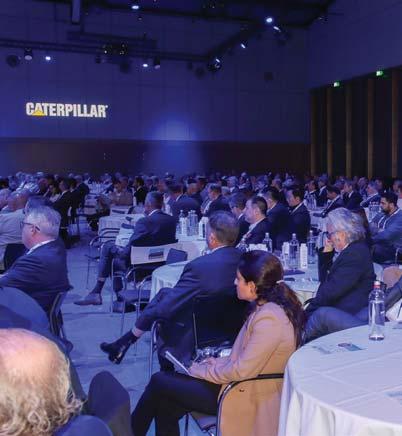
In association with premier biennial gathering of the tug, towage and salvage community, held every two years in a different leading maritime hub since 1969.
tugandosv.com/ITS2024
21-23 May 2024
Dubai







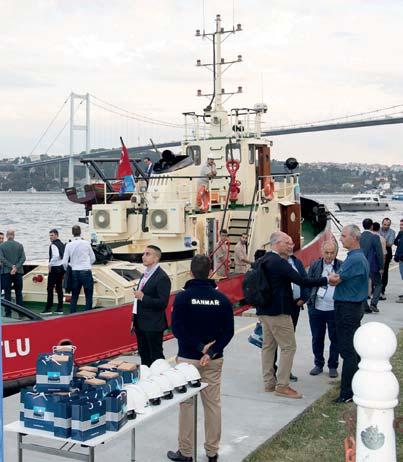




SCAN HERE FOR DETAILS AND EVENT PASSES


The ITS 2024 conference programme will be shaped by leading industry experts from across the international tug and salvage industry.












BOOK YOUR EXHIBITION STAND:
Showcase your latest products and services

Social Events Awards Conference Exhibition ENQUIRIES For further information, please contact: Indrit Kruja, Brand Manager t: +44 20 8370 7792 • e: indrit.kruja@rivieramm.com
Strategic
Event partners
Destination partner
partner
ALARM AND OPTIMISM AT WINDEUROPE 2024
Thousands of players in the rapidly emerging on and offshore wind industry gathered this week at WindEurope’s annual event, but while the number of delegates was healthy, a prominent theme running through the entire event was the threat to the European sector coming from Asia – particularly China.
There were many signs of confidence in the offshore wind market and deals signed, to name just two: Norway’s announcement of its first large-scale offshore wind auction, and a new ‘Wind Energy Initiative’ launched by WindEurope and other organisations including Siemens Gamesa and Vestas to foster more collaboration in the sector.
With more than 12,000 delegates, 520 exhibiting companies and more than 400 conference speakers, the event was ‘in line’ with expectations, said WindEurope Press and Communications manager Christoph Zipf.
“The event is not the biggest WindEurope Annual Event so far but it was in line with our expectations,” he said. “There has been a strong focus on international competitiveness but also new sectors and companies participating – digitalisation, floating wind, grid operators, system integration providers.”
But fears about supply chains and price competitiveness were aired by many exhibitors that spoke to Maritime Journal, and a conference focusing on the issue – Can we reduce our dependency on Asia? – broached the subject but ultimately did not provide answers to the question.
Chairing the discussion, WindEurope’s Laura Casuscelli, senior advisor - Wind Energy Trade and Competitiveness, said that with a 2050 target for Europe of 425GW and a current capacity of just over half that, the challenge would be a tough one yet in view of recent geopolitical events, an even more necessary one.
“It’s a critical issue for everyone, using more and more elements and materials. We can’t avoid it, no matter what we do,” said Evdokia Tapoglou, project officer in the Joint Research Centre with the European Commission. “In Europe we don’t have all the materials we need, nor in the quantities we need them.”
The processing capacity was also not here, she said, adding that China had 25% of the global resources and 90% of the processing capacity.
Demand will only increase
With the rapid growth in ‘green’ and digital technologies, raw material demand would become more intensive, said Petra Inghelbrecht, Sustainability Leader EU Composites at Owens Corning Fibreglass – supplier of material for turbine manufacturers.
“A recent study shows that demand will grow by four and a half times more by 2030 and by five to six times by 2050,” she said, urging a ramp-up of recycling and a circularity within Europe, improving efficiency to reduce reliance on Asia.
Steel is of course a major component in vessel and turbine building and it was also infinitely recyclable, said Stéphane Tondo, technical head of Governmental Affairs/Decarbonization with steel manufacturer ArcelorMittal.
“We have to keep it in Europe and recycle it here,” he told the panel. “We know how to do it for vessels and turbines but it’s missing in European policy. If other countries do not do it

in the green way they will have a huge advantage.”
“We can’t compete in costs,” said Inghelbrecht. “We still have production in Europe but a big part of the raw materials are not coming out of Europe any more.”
“We have to keep what manufacturing we have here, make more effort strengthening the supply chain and finding partners, getting more information out there and improving trade policies,” said Evdokia Tapoglou.
Supply chain neglect
“Europe is about to kill its own supply chain with high prices,” said David Rapidel, CEO of the French firm O5 Marine, which assists foreign vessels and operators to work in French waters, where offshore wind is on the brink of a major launch. We need to regulate.
“The US has forbidden competition from China with solar panels, for instance, and they have started to rebuild them in the US. In Europe, we are absorbing the overflow from China that used to go to the US. This will happen in every sector.
“We are taking a risk and it will shut down our future. In Europe, they don’t understand what’s behind the high price of energy. It’s about the sovereignty of Europe.”
“It used to be 100% supply production from Europe. Today it looks totally different. Nearly all the raw materials are coming out of Asia,” said Andreas Evertz, CEO of the Flender Group, which makes gearboxes for turbines. “At least, for the first time, we are seeing Europe working together to find solutions. But Europe is not competitive any more. For 10 to 20 years, global supply chains have neglected local capability.
“No matter what we talk about here, everybody is talking about sourcing from Asia.”
Maximillian Schnippering, head of Sustainability with Siemens Gamesa Renewable Energy, summed up: “It’s really about survival now in our industry.”
8 Discussing the Asian threat to Europe’s wind industry: from left, WindEurope chair Casuscelli; Evdokia Tapoglou at the EC; Petra Inghelbrecht, Owens Corning Fibreglass; and Stéphane Tondo with ArcelorMittal
24 | APRIL/MAY 2024 For the latest news and analysis go to www.maritimejournal.com
OFFSHORE RENEWABLES
Seatrium Limited is commencing work on its third two gigawatt (GW) High Voltage Direct Current (HVDC) electrical transmission for The Netherlands.
It’s Seatrium’s third system as per its five-year Framework Cooperation Agreement with the companies to supply three HVDC electrical transmission systems for the country’s offshore windfarm projects.
“This project underscores our commitment to helping our customers achieve their renewable energy goals by providing innovative and cost-effective solutions that help accelerate the energy transition,” said Samuel Wong, executive vice president, fixed platforms, Seatrium.
With this latest project, Seatrium is currently working on five HDVC offshore Converter Platforms, creating a franchise for series-built opportunities in HVDCs to achieve greater synergies from project repeatability.”
Offshore grid acceleration
Each HVDC system is valued at €2 billion, with a total combined capacity of 6GW as part of TenneT’s offshore grid acceleration programme. Seatrium’s work will include the engineering, procurement, construction, transport, installation and commissioning of
SEATRIUM HELPS DELIVER DUTCH OFFSHORE WIND GOALS OFFSHORE
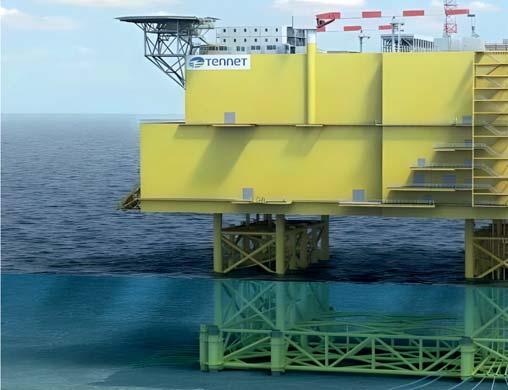
the HVDC Offshore Converter Platform.
The platform will contribute to TenneT’s ambition of installing 40GW of offshore wind in the German and Dutch North Seas. It will serve the NWBE (formerly named as Nederwiek 2) offshore wind farm. Like the HVDC projects


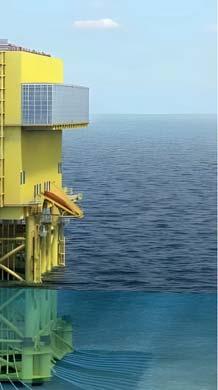
awarded to Seatrium in





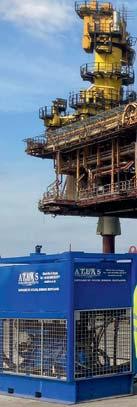












For the latest news and analysis go to www.maritimejournal.com APRIL/MAY 2024 | 25
8 Seatrium is supplying three HVDC electrical transmission systems for the country’s offshore windfarm projects
RENEWABLES
Atlas Winch and Hoist Services have almost 60 years experience of hiring and selling to industry. So if you need expertise
advice on heavy lifting or pulling,
can help. You’ll also find one of the largest plant hire fleets of its kind in the UK. Atlas specialise in equipment for renewables, marine and offshore applications. Serving the UK, European and International markets. Providing cable pulling equipment, mooring systems, deck and rigging equipment, air, electric, diesel and hydraulic winches to the renewables, oil and gas, marine and offshore industries. If you need a winch, talk to the experts. Talk to Atlas. TRUST ATLAS FOR YOUR MARINE AND OFFSHORE SOLUTIONS RENEWABLES • UTILITIES • CONSTRUCTION • MARINE • ENGINEERING • OIL & GAS HEAVY LIFTING OR PULLING? Head Office: Atlas Winch & Hoist Services Ltd, Old Station Yard, Station Road, Biggar, Scotland ML12 6DQ. Southern Office: Atlas Atlas Winch & Hoist Services (Southern) Ltd, Drakeswell Yard, Duck End, Great Dunmow, Essex CM6 3RY. +44 (0)1899 221577 (Head Office) info@winchhire.com +44 (0)1371 859555 (Southern Office) winchhire.co.uk
March, the Group will work with consortium partner GE Vernova’s Grid Solutions. Source: Seatrium
and
we
US IN COMMERCIAL OFFSHORE WIND FIRST
The completion of America’s first commercial offshore wind farm is expected imminently.
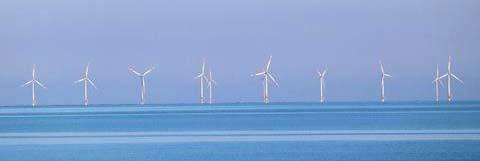
Once final tests are completed in the coming weeks, South Fork Wind in New York state will be providing 132 MW of green electricity to the grid, enough to power more than 70,000 homes and businesses.
“The US offshore wind industry now enters a new phase with its first operational commercial-scale wind farm,” said Liz Burdock, founder and chief executive of Oceantic Network, the member-network dedicated to promoting offshore wind in the US.
“Now the question is no longer if we can, but how fast we can.”
A joint venture between Ørsted and Eversource, the project features important firsts for the US market – export cables manufactured at a South Carolina plant, an offshore substation fabricated in Texas, and the first US service operation vessel which will soon launch in Louisiana.
A new facility produced offshore turbine components in Rhode Island, and turbines were assembled at a rebuilt port
The US offshore wind industry now enters a new phase with its first operational commercial-scale wind farm.
Now the question is no longer if we can, but how fast we can
in Connecticut. Dozens more companies provided services such as stevedoring, engineering and construction.
The completion of South Fork brings the total offshore wind capacity in the States to 242 MW (accounting for five operational turbines in Massachusetts).
With the completion of Vineyard Wind, that number will rise to 974 MW. A further 8,300 MW has been approved for installation and states have entered contracts for over 16,000 MW of offshore wind power generation.
Floating solar and wind hybrid set for Italy
A floating hybrid solar and wind farm will be installed off the coast of Corigliano-Rossano in Calabria, southern Italy.
Twenty-eight floating wind turbines with a generation capacity of 420MW will be installed alongside a solar farm that can generate 120MW, engineers at SolarDuck, one of three parties behind the project, said.
Green Arrow Capital and New Developments s.r.l. have also signed the agreement to develop the grid-scale technology, which incorporates SolarDuck’s elevated solar panels platform, which the company says can withstand significant wave heights.
“With the current momentum, we believe this is a unique opportunity for the offshore renewable energy industry to help shape a
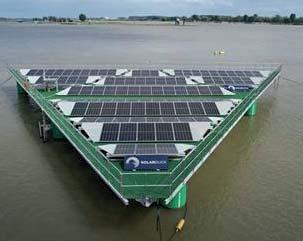
8 SolarDuck’s floating solar panels
favourable regulatory framework and facilitate the scaling of OFPV (Offshore Floating Photovoltaic),” said SolarDuck CEO Koen Burgers.
8 The US’s first commercial offshore wind farm is expected to begin operating in the coming weeks
“These cutting-edge infrastructures not only generate green energy contributing to sustainable energy transition and independence but also demonstrate their complementarity to onshore installations, preserving precious land resources,” said Green Arrow Capital founder and CIO Daniele Camponeschi.
This is another part of Italy’s ‘National Recovery and Resilience Plan’, which aims to simplify authorisations for offshore energy plants.
“This will enable the country to tap into its vast maritime potential and play a key role in the EU’s aggressive ambitions for decarbonisation,” SolarDuck says.
The solar and wind firm is due to come online in 2028.
26 | APRIL/MAY 2024 For the latest news and analysis go to www.maritimejournal.com
OFFSHORE RENEWABLES
‘‘
Energy company OX2 and Ingka, which owns IKEA, announced plans to develop a 370-turbine offshore wind farm with the latest 15MW sized machines, at 370 metres tall.
This is one of 10 offshore wind farm projects that are currently ‘under development’ (ie construction has not yet begun, nor approval necessarily granted) by OX2 off the coasts of Sweden and Finland.
The total number of turbines that could be installed across all of them is around 1,300, with approximately 12GW of power expected to be generated. In the Aurora farm, each turbine has a capacity of 15MW, which will generate a total of 5.5GW across all 370.
Aurora is 22 kilometres south of the island of Gotland and 30km east of Öland in the Baltic Sea, and if granted approval, construction could begin in 2028.
The turbines here could also be fitted with sensors, says OX2, to help with surveillance and control in the area, which ‘is of importance to the Swedish Armed Forces’.
“Export cables from the farm are planned to go to the mainland but also directly to Gotland,” said Emelie Zakrisson, head of Development of Offshore Wind in Sweden for OX2. “The large-scale production from Aurora would facilitate for more local electricity
MASSIVE OFFSHORE WIND FARM ANNOUNCED FOR SWEDEN
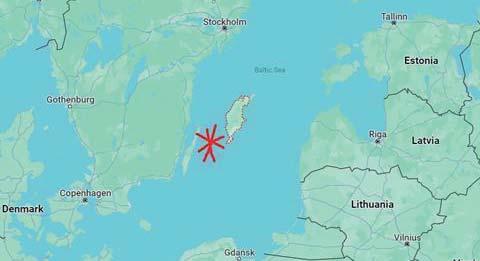
production to be developed as well as hydrogen production to help decarbonize industry and heavy transports.”
As a first step towards winning approval, the scheme has been granted a Natura 2000 permit by the County Administrative Board.
INTRODUCING WORLDS FIRST ZONE 1 LED NAVIGATION LIGHT

This means that it does not believe the wind farm will harm ‘species worthy of protection’. It will then recommend the project to the government to consider approvals.
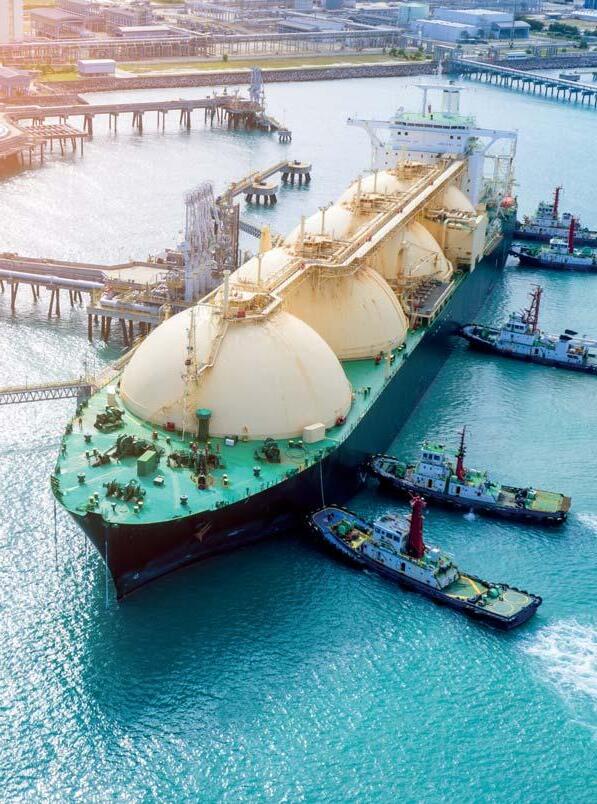
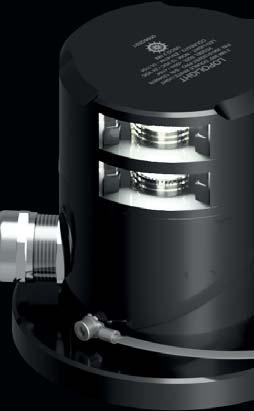
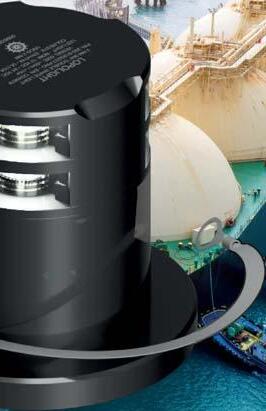


8 Aurora wind farm site For the latest news and analysis go to www.maritimejournal.com APRIL/MAY 2024 | 27
OFFSHORE RENEWABLES
THE LOPOLIGHT IEC Ex/ATEX SOLUTION Has the exact same form factor as the regular Profesconnectors, glands and grounding. APPROVED FOR BOTH IEC Ex/ATEX ZONE 1 AND 2 Zone 1 COMPLETE SYSTEMS -
CADELER ENTERS POLISH OFFSHORE MARKET
Danish marine contractor Cadeler has entered the Polish offshore wind market with a new contract signed with Ørsted this week.
Cadeler will transport and install 14MW Siemens Gamesa wind turbines to the Baltica 2 wind farm, the first stage of the Baltica Wind Farm owned by Polska Grupa Energetyczna (PGE).
Baltica 2 is scheduled to generate 1.5GW by the end of 2027, and will be installed 25km from the coast in the Polish part of the North Sea between Leba and Ustka.
“The project marks a very important milestone for Poland as well as for Cadeler, as this underlines Cadeler’s strong entry into the Polish market,” said Cadeler CEO Mikkel Gleerup.
The vessel builds will be funded by a ‘green loan facility’ of €425 million, a Sinosure-backed facility from a group of banks including Santander, Credit Agricole, HSBC, the Overseas-Chinese Banking Corporation, Standard Chartered and Societe Generale
Cadeler is also building two more installation vessels, Wind Peak and Wind Pace, P-class newbuilds that will help accelerate installations in a market where installation vessels are in short supply.
The vessel builds will be funded by a ‘green loan facility’ of €425 million, a Sinosure-backed facility from a group of banks including Santander, Credit Agricole, HSBC, the

Overseas-Chinese Banking Corporation, Standard Chartered and Societe Generale.
The vessels will be built in Qidong, China, and should be delivered later this year and next.
“The strong group of Nordic and Global banks securing a green loan facility for our P-class new build vessels once again underlines the trust in Cadeler’s vision and capability to accelerate the renewable transition. We are now the global leader in jack-up offshore wind installation with a strong strategic position in the market,” said Gleerup.
Floating wind project signals first of many in Italy
Renewable energy developer BayWa r.e. is increasing the number of floating wind projects in Italy with 14 under development. The estimated electricity generating capacity of the projects, which will cost €6 billion to develop and build, will total 9GW, Baywa says, and are in various stages of development.
The Germany-based company has set up shop in Rome to take care of its Italian projects, which are in the four different regions of Sicily, Sardinia, Puglia and Lazio.“Over the next years, BayWa r.e. will continue to invest resources and expertise to implement innovative solutions such as offshore wind, to not only contribute to a concrete path towards decarbonisation for

Italy, but also create economic opportunities and promote sustainable development at a regional level,” said Giulia Lo Bianco, head of Offshore Wind BayWa Italy.
Up to five of the projects could be
operational by 2030,and they will all be developed under a new offshore subsidiary. BayWa also has projects in the UK, France, Germany, Portugal and Australia, it says.
Italy, whose boot-shape coastline is the fifth longest of all European countries, should have vast offshore wind potential. To date, there is just one fully completed offshore wind farm and it is a small one, Beleolico in southeast Italy, which consists of 10 turbines generating just 3MW each.
However the government made some bureaucratic simplifications in 2022 and since then approvals for connections to the grid have increased by 200%, the national transmission grid operator Terna, which approves applications, said.
28 | APRIL/MAY 2024For the latest news and analysis go to www.maritimejournal.com
8 Cadeler CEO Mikkel Gleerup
OFFSHORE RENEWABLES


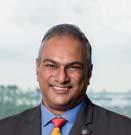
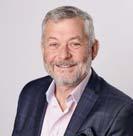

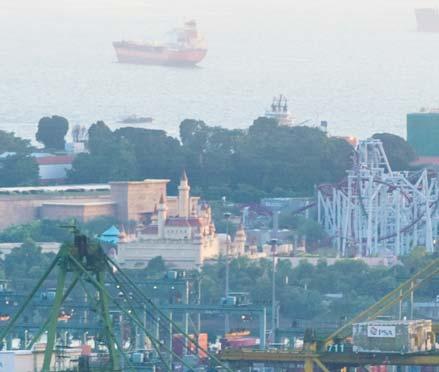






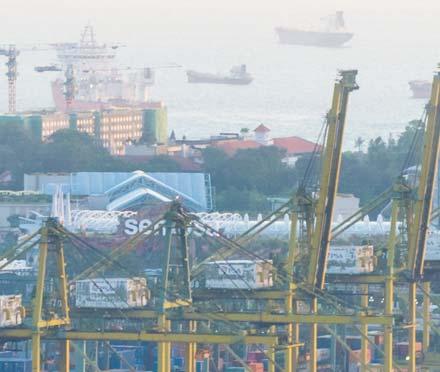






















100% ELECTRIC TUGS
DELIVERED TO SAAM TOWAGE
SAAM Towage has joined the list of tug owners exploring all-electric tugs following delivery of two vessels from Turkey’s Sanmar Shipyards to join the Chile-based company’s Vancouver operation.
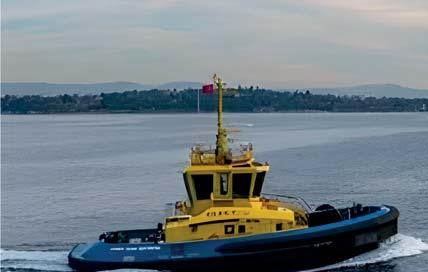

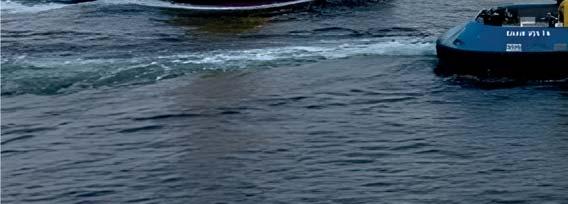
Built with the names Dynamo and Dynamo II, the tugs have been renamed Saam Volta and Chief Dan George respectively. Built to Sanmar-exclusive ElectRA 2300SX designs from Canadian naval architect Robert Allan, they provide 70 tons bollard pull from two Li-ion battery banks, making them 100% electric vessels.
With a length of just 23.4m they are described as “compact yet powerful” and will be charged using energy from the British Columbia power grid.
Sanmar’s global client base presents options when delivering its products to their new homes, including sailing under their own keel perhaps in the hands of professional ship delivery experts. Such was the case with the similar delivery of ElectRA tugs by Redwise Maritime Services from Turkey, also to Vancouver, for HaiSea Marine.
For SAAM Towage’s new pair of ElectRA tugs a different approach was required, however after successfully completing sea trials the vessels were loaded as deck cargo onto the general cargo vessel BBC Emerald
Due to restrictions on the number of vessels using the Panama Canal, the journey, which took around 60 days, involved passage through the Strait of Magellan at the tip of South America.
ElectRA options
As the push for cleaner towage operations gathers pace, including the adoption of alternative fuels and battery power, individual operational requirements at different locations have led to a requirement for specific solutions suited just for that location and role.
For RAL, solving that conundrum has resulted in five ElectRA series tugs in its catalogue. These range from 21m in length and 50tbp to the 28m ElectRA 2800 version providing


Source: Sanmar
80+tbp. The series includes a 26m LOA version built to a tractor configuration, each offering a distinctly different take on battery electric propulsion.
The ElectRA 2300 recognises that most battery electric tug applications will involve harbour operations, possibly with no requirement for overnight accommodation. Without this requirement this version features more than 3,500kWh of battery capacity in a flush deck design but maintaining some back-up diesel generator capacity.
Built to Sanmar-exclusive ElectRA 2300SX designs from Canadian naval architect Robert Allan, they provide 70 tons bollard pull from two Li-ion battery banks, making them 100% electric vessels
SAAM Towage’s own literature on the pair says that two Caterpillar C32 diesel generators each produce 940kW and supply batteries with a total storage capacity of 3,616kWh. The batteries can be charged in 55 minutes with the tugs capable of achieving two vessel berthing and unberthing operations without charging.
Sanmar commercial director Ruchan Civgin said: “That major international operators such as SAAM Towage are investing in alternative eco-friendly power systems and technologies is a clear sign that our industry is changing, and changing for the better. At Sanmar we are proud to be at the forefront of that change.”
8 The two new tugs for Vancouver are all-electric Sanmar-exclusive ElectRA 2300SX designs
30 | APRIL/MAY 2024For the latest news and analysis go to www.maritimejournal.com
POWER & PROPULSION
An international association has been set up to bring together stakeholders working towards electrifying the marine industry.
The International Electric Marine Association (IEMA) aims to enable collaboration within a nascent sector facing unprecedented challenges as the world moves towards alternative fuels.
The IEMA says its members, who already number more than 40 since its inception late last year, ’are committed to spearheading collaboration that dismantles barriers obstructing the widespread adoption of marine electrification’.
”Although IEMA primarily focuses on the electric marine industry, we support any viable zero-emission solutions that further our mission to decarbonize the world’s waters,” it says.
Calling itself ’the global hub for the electric marine sector’, the IEMA comprises companies manufacturing and supplying electric marine products, from boats, batteries and powertrains to chargers and infrastructure.
IEMA president and founder Adria Jover identified the three main barriers are Technology, Infrastructure and Public Perception.
“The main barrier, as with any industry adopting electrification, is the infrastructure,”
AGENCY SET UP TO BREAK BARRIERS TO ELECTRIFICATION
he told Maritime Journal. “It is currently not ready and requires political will for key public or private infrastructures, such as ports, harbours, and urban fluvial areas, to rethink the electric utility supporting the electric grid.
“The second barrier is Technology. Even though electric-powered boats have been around for decades, this is still a nascent industry in terms of mass transportation. The exciting new technologies need more exposure and promotion.
“And third is Perception. Governments and municipalities are wary of investing in what they perceive to be untried and high-capex investments that they fear will be obsolete in a few years. IEMA’s role is to allay these fears and show that many of today’s electric technologies have been developed to be future proof.
“There is also the incorrect perception that electric boats aren’t safe. This is factually wrong.”
The IEMA will place itself at the heart of discussions between regulatory bodies and associations to do with the future standardisations for the sector, paying special
attention to safety, interface and infrastructure considerations, Jover says.
“We have a clear intention to move into the lobbying space in the near future, but as of now we need to focus on gathering data and establishing a clear baseline for the current state of affairs and build out our already compelling story.”


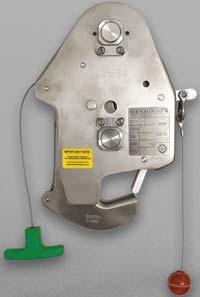


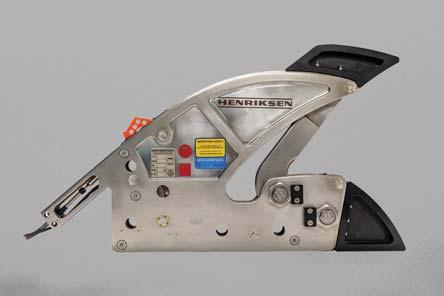
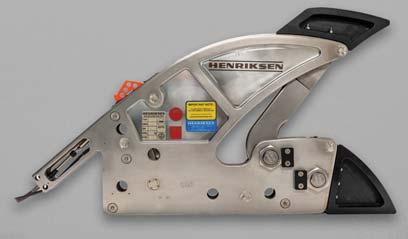



























For the latest news and analysis go to www.maritimejournal.com APRIL/MAY 2024 | 31
IEMA president
POWER & PROPULSION
MOB/Liferaft Hooks Electric Remote Release Hooks Unmanned Launch and Recovery Hooks hooks@hhenriksen.com - www.hhenriksen.com HOOKS Halfpage indd 1 02/03/2023 11:27
IEMA and founder Adria Jover
POWER & PROPULSION
Schottel has been chosen to equip six new ASD tugs of the Turkish Med Marine Group with the SCHOTTEL RudderPropeller (SRP).
A total of 12 Schottel RudderPropellers in the SRP 360, SRP 430 and SRP 490 series will be built for the new vessels, which will cater for a range of different bollard pull requirements in the 50, 60, 80 and 85-tonne classes and will also be equipped with modern fire-fighting systems.
“With the pre-production of our successful tug models, we can prevent potential disruptions and serve our customers reliably and possibly even significantly faster once an order has been placed,” said Ertuğrul Çetin, procurement & technical group director at Med Marine.
“We have a long-standing and trusting partnership with Schottel. We benefit not only from their modern, high-quality drive systems but also from SCHOTTEL’s reliability as a supplier.”
Strong partnership
The power ratings of the propulsion systems commissioned by Med Marine range from 1,575 to 2,525 kilowatts per unit, with propeller diameters from 2.2 metres for the SRP 360 units to 2.8 metres for the SRP 490 units.
SCHOTTEL POWER FOR NEWBUILD ASD TUGS
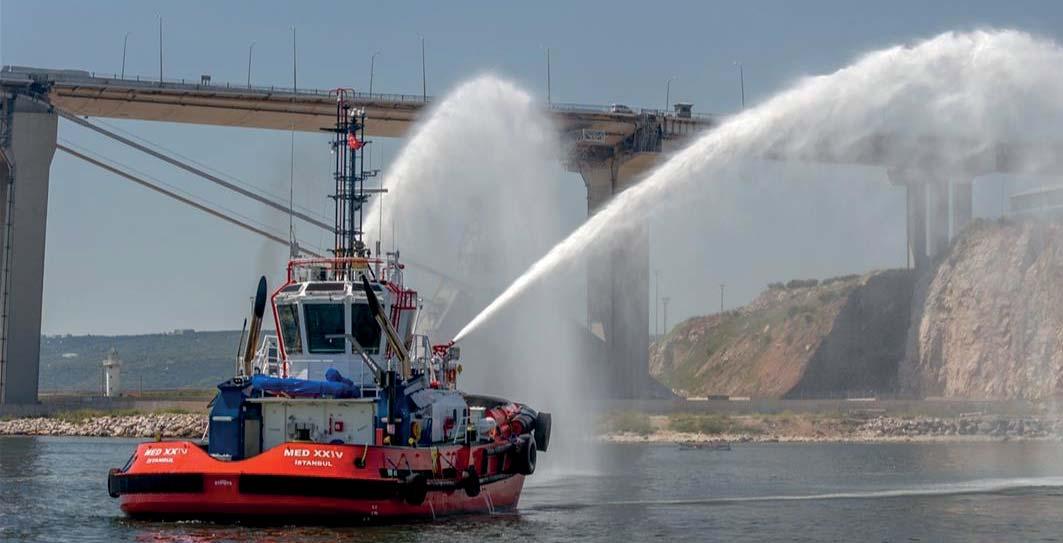
Schottel said that the robust design of the SRP allows for long operating times coupled with low maintenance requirements.
At the same time, Schottel guarantees long-term availability of spare parts and provides its customers with a dense network
With the order to equip the six new


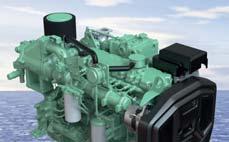

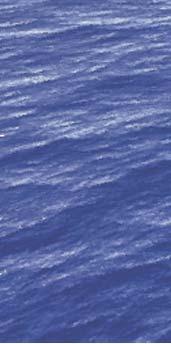

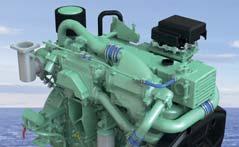

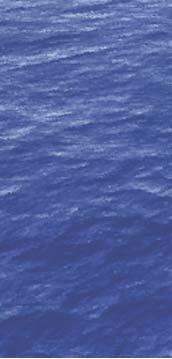

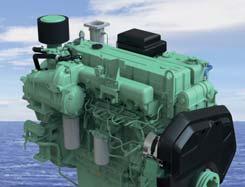

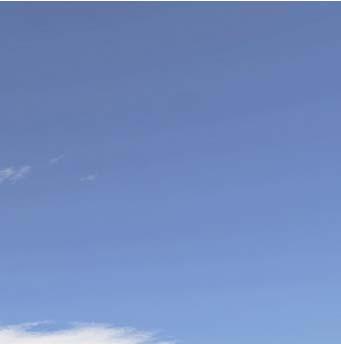
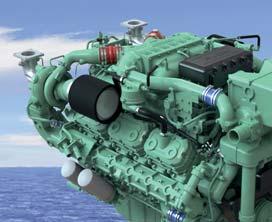

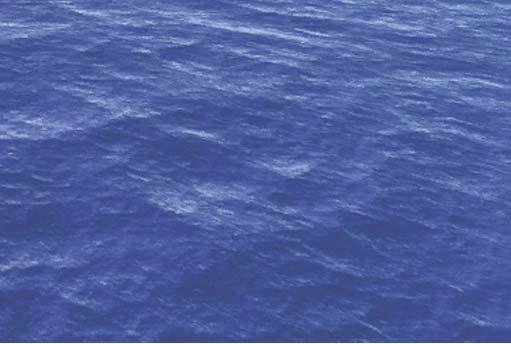







32 | APRIL/MAY 2024For the latest news and analysis go to www.maritimejournal.com
of service stations, customer advisors and technicians.
stock tugs, Med Marine and Schottel are further endorsing their already long-standing partnership in newbuild marine vessels.
With the order to equip the six new stock tugs, Med Marine and Schottel are further endorsing their already long-standing partnership in newbuild marine vessels IMO TIER lll MARINE ENGINES Unit 2, Cavalier Road, Heathfield Industrial Estate, Newton Abbot, Devon, TQ12 6TQ Tel: +44(0)1626 830910 Email: sales@watermota.co.uk Web: www.watermota.co.uk
Source: Schottel
8
IMO TIER III Compliant Increased fuel efficiency Reduced Emissions High performance
130kW - 908kW
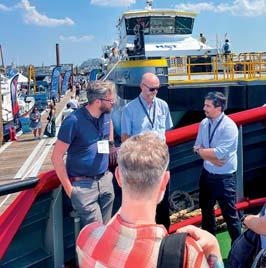
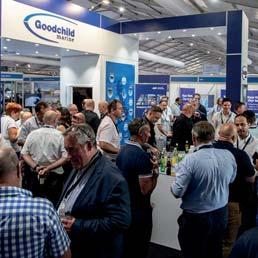
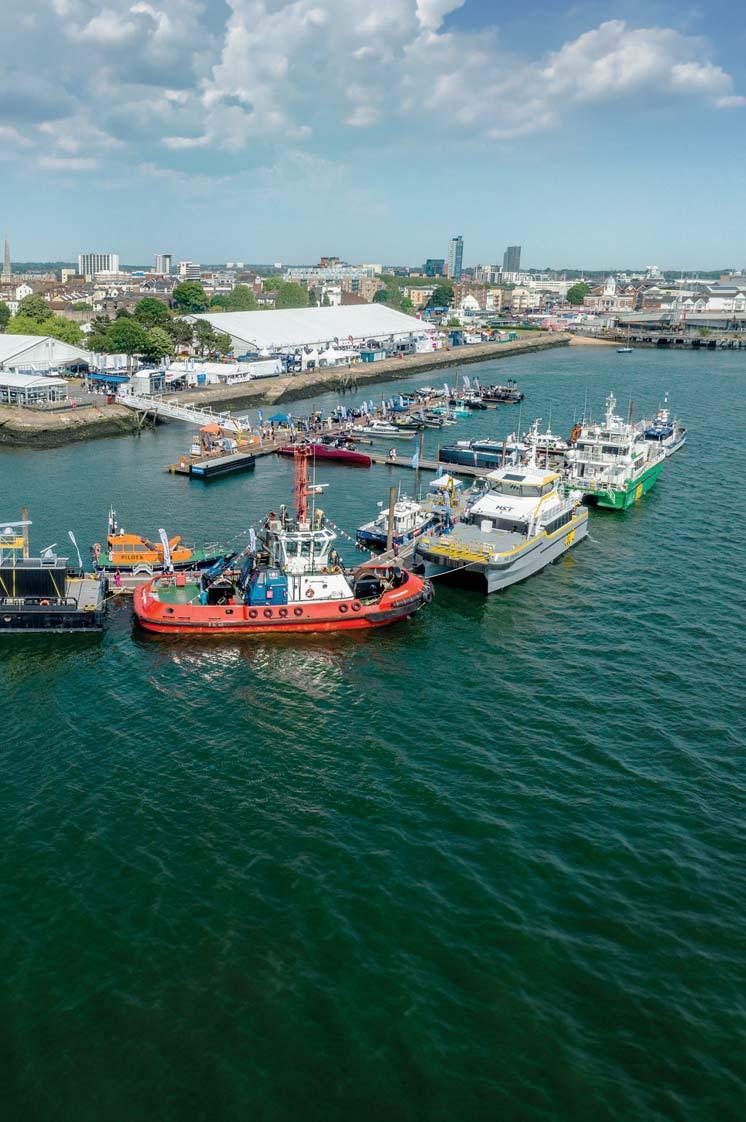
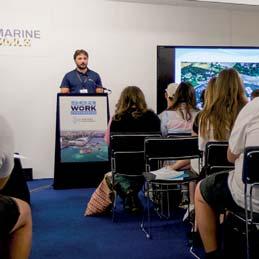
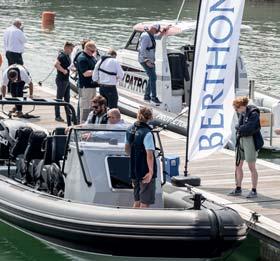

REGISTER NOW
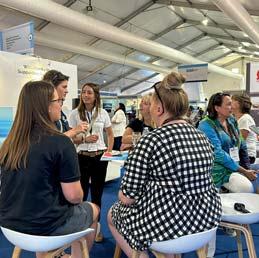
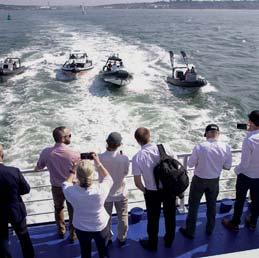
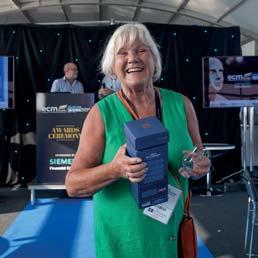
11 13 TO
For more information visit: seawork.com contact: +44 1329 825 335 or email: info@seawork.com
Seawork celebrates its 25th anniversary in 2024!
The 25th edition of Europe’s largest commercial marine and workboat exhibition, is a proven platform to build business networks.
Seawork delivers an international audience of visitors supported by our trusted partners.
Seawork is the meeting place for the commercial marine and workboat sector.
Discover 12,000m2 of undercover halls that feature plant and equipment on the quayside and pontoons.
Experience June operating at high speed for security interventions and Search & Rescue.
Celebrate innovation and excellence in the commercial marine industry at The European
Learn from the industry experts through the Conference programme, that helps visitors to keep up to date with the latest challenges and emerging opportunities.
Opportunities at the Careers & Training Day on Thursday 13 June 2024 that delivers a programme focused on careers in the commercial marine industry.
JUNE Southampton United Kingdom
MARITIMEJOURNAL COMMERCIAL MARINE BUSINESS in partnership with
#Seawork Media partner
FLOATING SCAFFOLD USED TO MOVE 300T RAIL BRIDGE
ScaffFloat have recently completed another milestone project in North Wales where they provided a full marine package to their clients Pennys Demolition and Alun Griffiths to help remove the old and then install a new bridge for Network Rail across a tidal estuary in Barmouth, North Wales
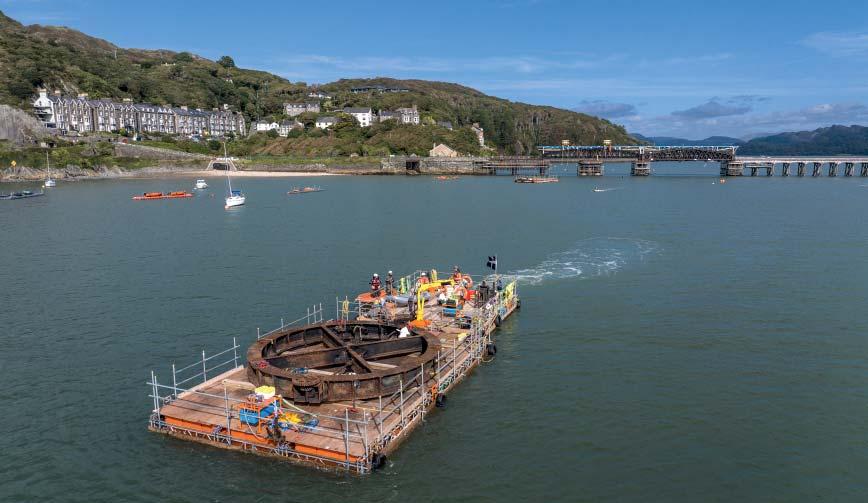
ScaffFloat, a UK-based start-up based in Cornwall, has invented a set of durable and 100% recyclable plastic floats that integrate with standard scaffold components to make pontoons, rafts, and workboats. These were used on the project to transport the old 25t bridge sections from the bridge to the beach, and then again to carry out the new deck sections for the new bridge.
Mobilisation
First the pontoons were assembled at the top of the beach by hand. The tracked excavators used for the demolition then lifted and carried them down the beach at low tide where they were moored before floating off on the flood tide.
Demolition
Once the ScaffFloat team had mobilised, the demolition of the old bridge started. To support the weight of the old bridge sections after they were cut, a gantry on the new bridge was used to take their weight. As soon as the bridge sections were hanging free, a ScaffFloat pontoon was push towed into place under the bridge an hour before slack water. A mooring line was run from the pontoon bow to one of the pre-laid anchors and then tension was taken up on the windlass capstan which held the pontoon against the flow. Two lines were then run out sideways from the deck winch on the pontoon to the bridge piers. The crew onboard could then fine tune the position of the pontoon to the 100mm of tolerance needed to get the bridge section onto the pre laid deck chocks.
Once the weight was taken by the pontoon, the lifting strops were removed, the deck winches released and the pontoon’s capstan was used to pull the pontoon and bridge section into clear water before the workboat behind would take over control and the anchor line let go. As all moves had to be done at high tide there was hardly any space to get the old bridge sections out into clear water, often less than 100mm.
Once in clear water the ScaffFloat skippers had the challenge of pushing the laden pontoons across the estuary, through the moorings and onto the beach. Delays in the bridge lowering meant that on occasion this was done after the ebb tide had started to flow. In this situation, the tide would be flowing out the estuary mouth with some power which made it imperative that the critical turn round the starboard channel marker into the beach was done without error. In these situations, the 2nd workboat would sit on the outside of the turn to push against the pontoon as it made the tight turn.
Over the course of several weeks this process was repeated as the weather and tides allowed, with the team managing three pontoon moves on a single high tide to help make up for lost time.
New Bridge Decks
Once the last bridge section was on the beach and cut up the next phase of the project began. The heavy lift pontoons were all dried out on the beach moorings and Attridge scaffolding then pre-installed the suspended scaffold on the
34 | APRIL/MAY 2024 For the latest news and analysis go to www.maritimejournal.com
8 The ScaffFloat taking away the bearing from the opening section of the bridge
SPECIAL FEATURE
CREDIT: MULHOLLAND MEDIA

decks of the pontoons. The new bridge deck sections, complete with rail track, were then lifted on top of this scaffold and connected together. One by one these were then taken back out to the bridge and the process was run in reverse. Once the new deck sections were in place the scaffold would hang underneath, which saved a lot of work having to install it in the air.
Hoisted For Access
At various stages during the project, access was needed to the underside of the bridge when the scaffold had been removed, or not yet installed.
The ScaffFloat had been designed so that as well as floating, they could be hoisted up under the bridge on a fourpoint lift with the gantry. They could then be secured to provide an access platform.
Weather & Tides
One of the biggest challenges to the marine element of the project was working around the tide and weather. Given the large volume of water held by the estuary upstream of the bridge, there was only a very short period of slack water, often under half an hour, when all the marine works had to be completed. The project was also completed during the autumn with very changeable weather and during which times several named storms passed through the region putting work on hold.
Design & Certification
The team at ScaffFloat provided a full set of RAMS as well as designs for all the ScaffFloat pontoons and moorings. In addition Richter provided a full Cat 3 check for the heavy lift pontoons and hoisting, which included full structural, stability, and buoyancy analyses.
Toby Budd, ScaffFloat’s MD commented “On a calm day at slack water you would let your kids swim under the bridge it looked so benign. But a few hours later you could have 1m standing waves with 5 knots of flow against a full gale.’’
He added “It was a great project delivered by a top team. We worked well with the team from Pennys and Alun Griffiths,
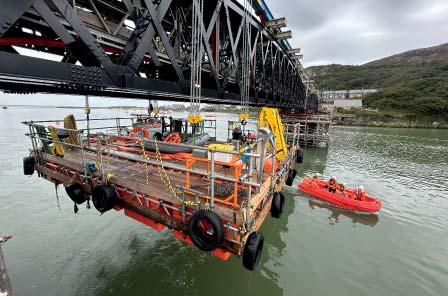
The fast-growing Cornish company provided:
4 x Heavy
5
5
5
5 Heavy duty, overboarded deck suitable for hot works
5 2 x 1t Deck winches
5 Full double handrails and kickboards
5 Windlass, capstan, 100m of chain and 100kg anchor
Workboat 1
5 SPEC
5 8m x 4m
5 Safety Pack
5 2 x 60hp Yamaha high thrust outboards giving 0.5t bollard pull
5 Windlass and anchor
5 2 x 1t Deck winches
5 Windlass, capstan and anchor
Workboat 2
5 SPEC
5 8m x 6.4m
5 Safety Pack
5 2 x 120hp Yamaha high thrust outboards giving 0.8t bollard pull
5 Windlass and anchor
5 2 x 1t Deck winches
5 Windlass, capstan and anchor
5 2.8tm crane
Fast Workboat
Beach Anchors
Bridge Mooring
Team
5 SPEC
5 4.5m Whaly
5 Safety Pack
5 30hp outboard
5 SPEC
5 2 x 50m mooring trots
5 3 x 2t concrete mooring blocks dug into the beach
5 50m of heavy chain trots between blocks
5 Mooring buoys every 10m
5 SPEC
5
8 x 750kg high holding power anchors with 20m of heavy chain and 20m risers to mooring buoys
5 2 x Crew
5 2 x Skipper
5 1 x Bargemaster/PM
everyone had a ‘let's get it done’ attitude, tempered with a sensible level of safety and risk management. Being such an innovative engineering project, problem-solving was a daily practice, and we loved being part of the team that overcame a long list of challenges to get the job done and it was great to see the line reopen and a train cross on Dec 8th’’

8 Far left: The ScaffFloat was suspended at points in the project where there was no other scaffolding in place and access was required.
For the latest news and analysis go to www.maritimejournal.com APRIL/MAY 2024 | 35
SPECIAL FEATURE
Left: Lowering the old bridge sections onto the ScaffFloat
Lift Pontoons
SPEC
12m x 8m
30t Payload
8 Tracked excavators used for the demolition were also used to carry the pontoons down the beach, where they could be floated on the tide

Pontoon Spec:
Workboat Spec: Cargo: 8m x 12m
30t Payload
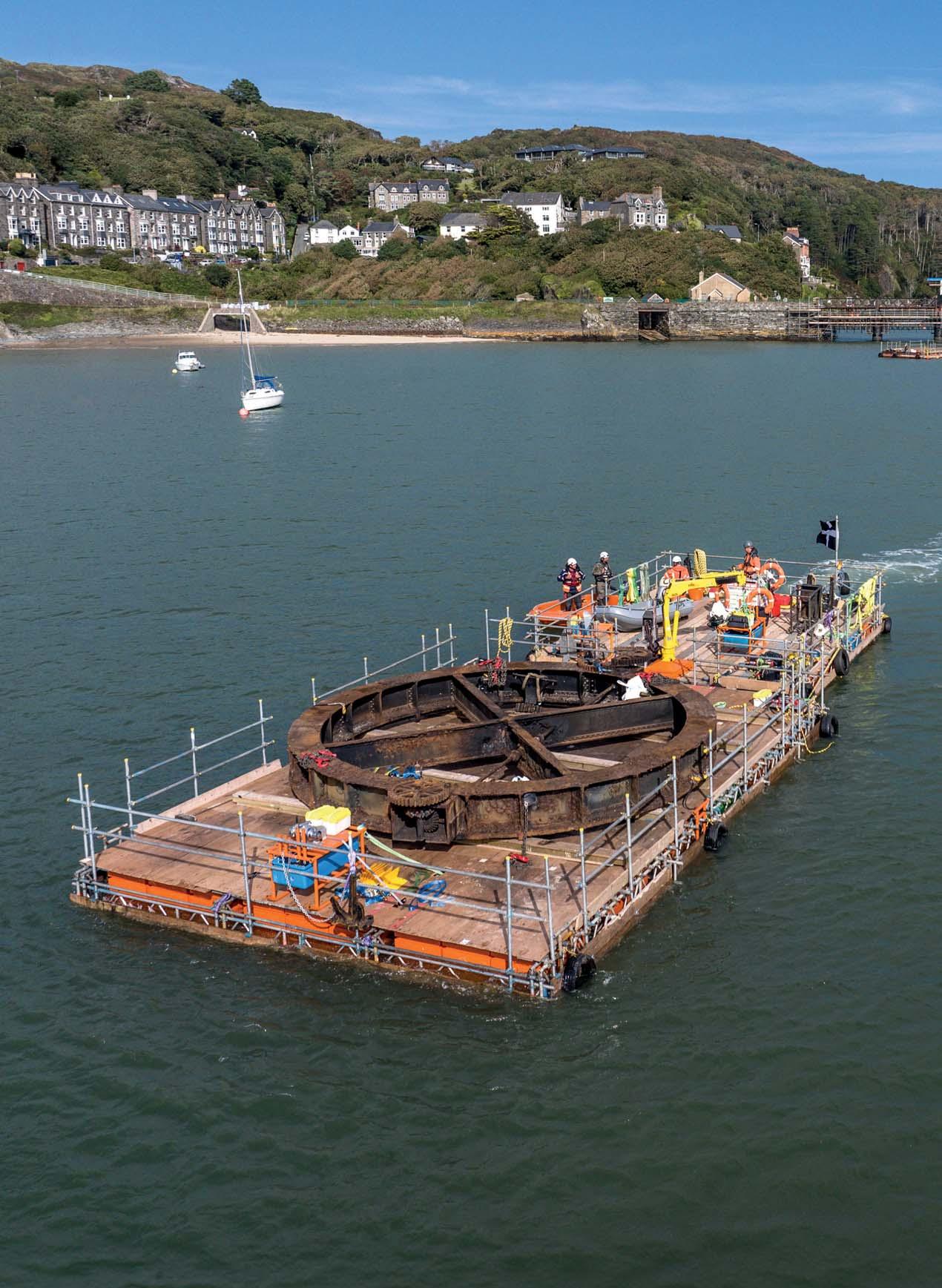

8m x 6.4m
2x 120hp@1.5tpb
2.8tm crane
5t Payload 20t Ring Bearing Get
Windlass with Capstan
100m of chain and 100kg anchor
sales@scafffloat.co.uk scafffloat.co.uk International Franchise
www.ScaffFloat.co.uk/franchise Overseas Sales: www.ScaffFloat.co.uk/internatioal-sales
in touch today on 01326 702 260 Pontoons and workboats made from scaffolding. Strong, stable, and safe platforms to work from.
Package:
FINANCING AGREED FOR EUROPE’S LARGEST INLAND PORT
Financing has been agreed for what will be Europe’s largest inland port – and a port that will be run largely on hydrogen, developers say.
The amount agreed to pay for engineering and infrastructural changes at Duisburg Gateway Terminal (DGT) has not been revealed, but it will be built within the International Port of Duisburg, which sits on Germany’s Rhine River.
Logistics partners and port operators making up the DGT in an international joint venture have agreed borrowing terms from the KfW IPEX Bank for the port, which will have an area of 235,000m² and will allow goods to be handled trimodally between ship, rail and truck.
The shareholders of the JV are Duisburger Hafen (the port), Swiss railway operator Hupac, Dutch intermodal container transport firm H.T.S. Intermodaal and PSA Belgium Holdings, the Belgian port group.
The hydrogen element will be enabled with a ‘Enerport II’ project, ‘in which hydrogen-based energy conversion is to be implemented in the Port of Duisburg, and as many processes as possible are to be electrified’, say developers.
A warehouse will also be built on the DGT premises to be used as a storage facility for hazardous chemicals as an alternative to inland storage vessels when water levels on the river are low.
“At the same time, the warehouse will become a transshipment site for tank containers filled with hydrogen or the precursor ammonia. From here, hydrogen is supplied to smaller industrial companies, which, unlike large customers, cannot be connected to a pipeline for the time being,” say the developers.
Duisburg Port handles the equivalent of 3.6 million containers a year, largely transported on inland waterway
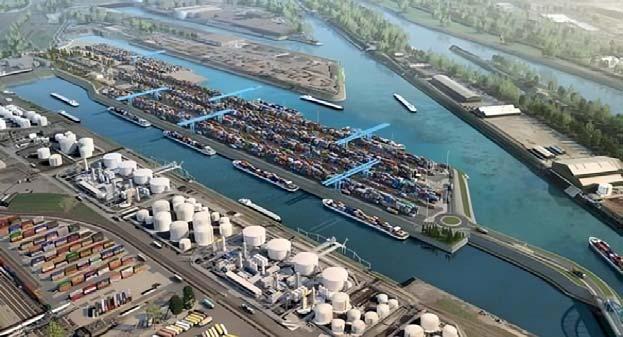
barges and by railway to the main seaports in Belgium and the Netherlands. Sea-going river vessels travel directly between Duisburg and short sea destinations in northwestern Europe and the Mediterranean region.
The port says it handles more than 50 million tonnes of goods a year, with more than 20,000 ships calling at the port. The public harbour facilities stretch across an area of 7.4 km², including 21 docks covering an area of 1.8km² and 40km of wharf.
The Rhine, one of Europe’s most important waterways, links the Port of Duisburg directly with the sea ports of Amsterdam, Rotterdam and Antwerp as well as the European inland waterway and canal system.
Port expands container capacity by 4 million TEU
The seabed by new quays at Rotterdam is being dredged to some 20 metres below sea level so that today’s massive cargo ships can use the port.
The dredging, which will be carried out along the 2.4km of new quay wall built by a consortium of Van Oord, UK civil engineering firm HOCHTIEF and Dutch builder Ballast Nedam, is part of major works at the port that will result in 1,825 metres of deep-sea quay, 160 metres of inland shipping quay and 360 metred of earth-retaining walls.
Van Oord vessels Biesbosch, a cutter suction dredger, and Vox Apolonia, a suction hopper dredger, are working in tandem to dredge the Prinses Amaliahaven at the Maasvlakte terminals.
Dredged sand will be used in the adjacent Prinses Alexiahaven, where it will be used to create 45 hectares of land, and the silt and

clay that cannot be used for land reclamation will be taken out to sea.
The dredging also provides a first for Van Oord’s Remotely Operated Vehicle, which will be used to inspect the works.
APM Terminals, part of A.P. Moller-Maersk, opened at Maasvlakte II in 2015 as a fully
8 Prinses Amaliahaven at the Port of Rotterdam
automated facility with zero carbon emissions.
The additional section of the terminal will also operate with net-zero emissions and be ready for shore power installation.
PORT HARBOUR & MARINE CONSTRUCTION
For the latest news and analysis go to www.maritimejournal.com APRIL/MAY 2024 | 37
8 Duisburg inland container terminal
SCOTLAND RUBBERSTAMPS DREDGING FOR OSW HUB
The final phase of engineering to equip Aberdeen’s harbour to make it a hub for offshore wind has been ‘prioritised’ by the authorities in Scotland.
A capital dredge project has been given the go-ahead to deepen 750 metres of quayside to around 14.5 metres to provide enough depth for most turbine designs, say project leaders ScotWind and INTOG. They aim to turn the northern Scottish port into a major offshore wind hub and the largest operations and maintenance base.
It is already Scotland’s largest berthage port, with 7,600 metres of quayside across both of its north and south harbours.
‘‘
Upgrading South Harbour for floating offshore wind will ensure the unrivalled energy supply chain in Aberdeen and wider northeast of Scotland can maximise the opportunities presented by ScotWind and INTOG
“Last year alone, the port handled more than 700 vessels associated with offshore wind projects, highlighting the increasing demand from both existing and planned Scottish offshore wind developments,” said head of Communications Jordan Harkins. “Combined with South Harbour’s expansive laydown area and ultra heavy-lift capacity, the facility will support turbine integrations and foundation assemblies. Looking further ahead, it also positions the port to handle major component exchanges with tow-in, tow-out operations.” The Port of Aberdeen is within 100 nautical miles of three quarters of ScotWind licences in the North Sea.
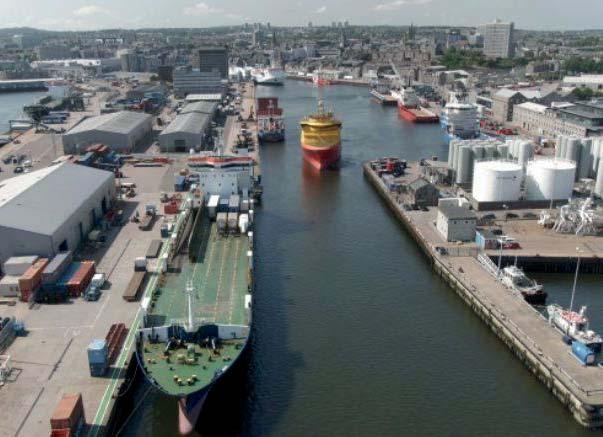
It is also near the UK government’s Offshore Renewable Energy Catapult’s floating offshore wind innovation centre, which ORE calls a world first.
“The prioritisation of the South Harbour upgrade is a significant vote of confidence from both the Scottish government and industry in our £420 million (€490 million) expansion,” said Bob Sanguinetti, CEO, Port of Aberdeen. “Upgrading South Harbour for floating offshore wind will ensure the unrivalled energy supply chain in Aberdeen and wider northeast of Scotland can maximise the opportunities presented by ScotWind and INTOG.”
Vlissingen hires ABB to install shore power
Complete shore power will be installed at Deme’s base at the Port of Vlissingen in the Netherlands, where the marine contractor’s fleet of dredgers and offshore support vessels will be able to plug in while on berth.
By the end of 2024, ‘suitably equipped’ vessels will be able to connect to ABB’s shoreside connection technology, which the electrification and automation company has won a contract to install.
The technology takes onshore grid capabilities into account, to ‘align with local interests’ it says, and will run the connection at a lower rate – 1.75MvA – than its planned 2MvA converter until the local grid can deliver enough capacity between the
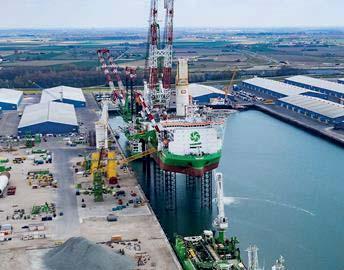
8 Deme’s offshore base at the Port of Vlissingen
substation and the dock. The installation itself will be housed in two ISO containers. Awarded after a private tender process,
the project will in part be funded under the ‘Temporary Shore Power Grant Scheme for Marine Vessels 2022 – 2023’, a Dutch government-supported initiative that stimulates the construction and use of shore power facilities in Dutch seaports.
“Given the diversity of the Deme fleet, this is a key reference for our shore power technology, showing that almost any type of vessel can avoid emissions by connecting to shore power at the quay,” said Frank van Delden, account manager, ABB Marine & Ports.
Connecting to shore power for energy needs while at berth is expected to become mandatory at main EU ports listed in the trans-European transport network from 2030, under FuelEU Maritime regulations.
38 | APRIL/MAY 2024 For the latest news and analysis go to www.maritimejournal.com
PORT HARBOUR & MARINE CONSTRUCTION
Source: Aberdeen Harbour
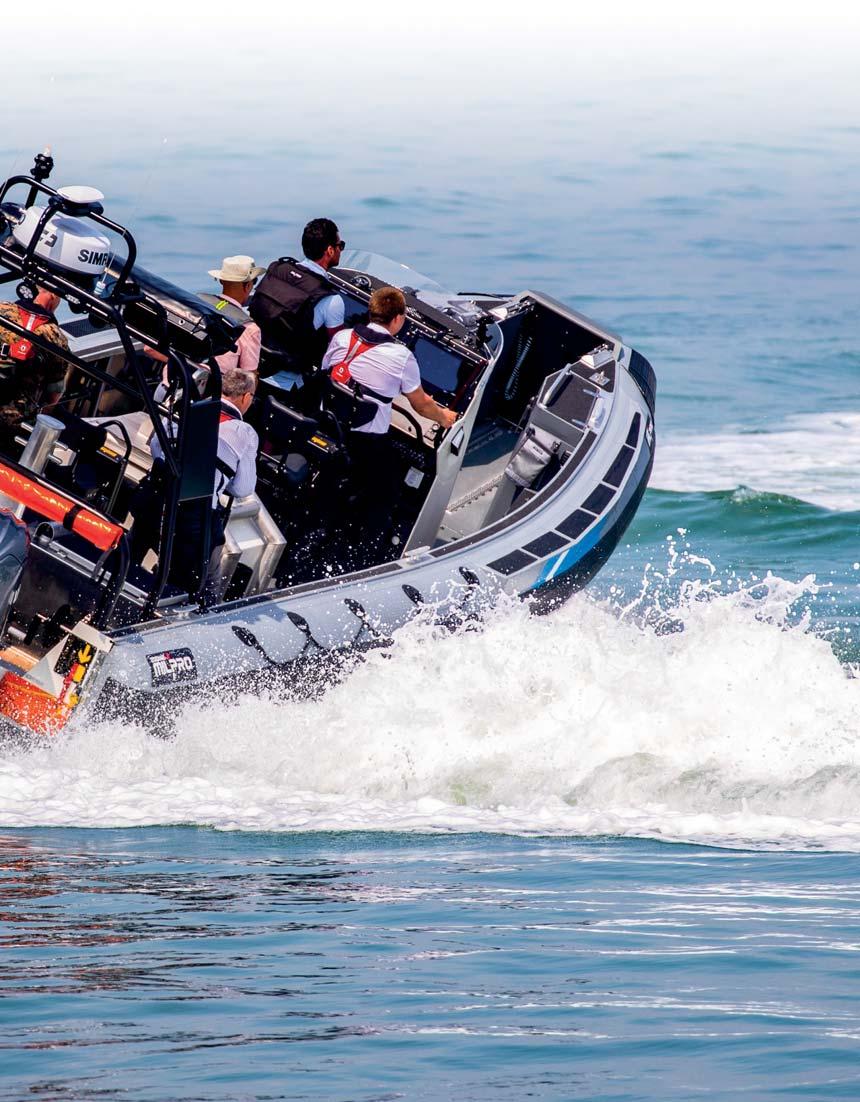

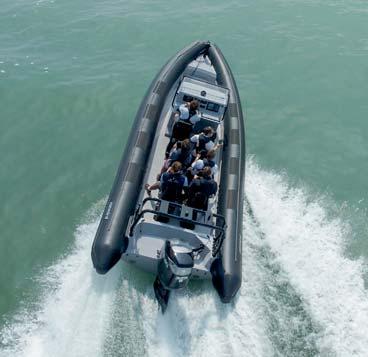
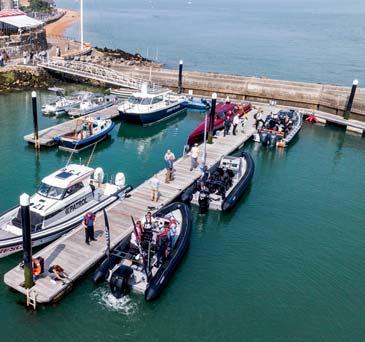
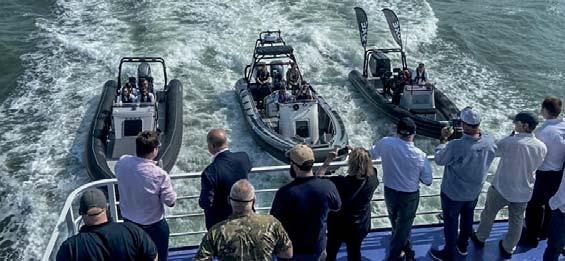
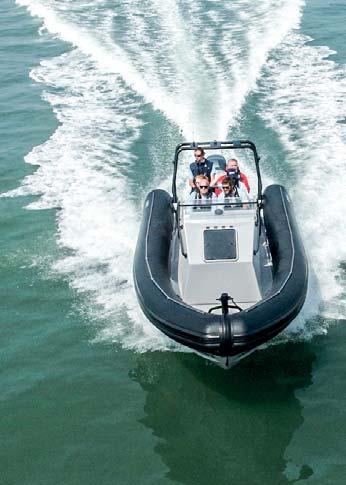
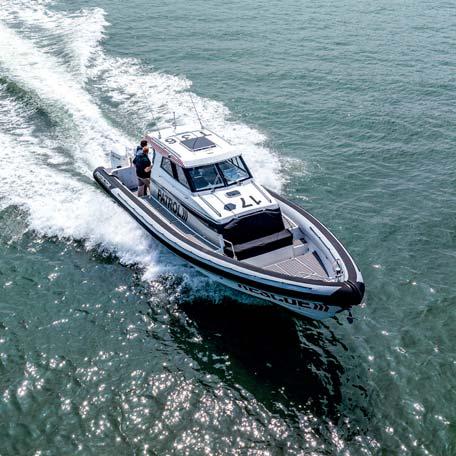
10
• and Search And Rescue.
• Demonstrations of all the latest technology and equipment marine business.
• Day of sea trials from Cowes, Isle of Wight, UK.
• Informal networking with military procurement, defence attachés and end users.
• and military personnel.
• or equipment. Attend as a delegate.
JOIN US FOR SIGN UP


or call the Seawork Sales Team at +44 (0)1329 825335
:
www.seawork.com
Sponsored by
Supported by
COASTAL FLOOD DEFENCE PROJECT MOVES TO FINAL PHASE
A UK coastal defence scheme will undergo its final phase in 2024, bringing together a nine-year project to protect against flooding and create a new island for wintering birds.
The North Portsea Coastal Scheme final phase will complete the last 200m of sea defence wall between the Langstone Harbour viewing car park to Tangiers Road in Portsmouth.
“The North Portsea Coastal Scheme continues to be at the forefront of environmental enhancements, with a highlight being the construction of an island near Eastern Road to ensure that overwintering birds can roost undisturbed,” said Portsmouth City Council Leader, Cllr Steve Pitt.
“We look forward to the final touches being complete in what has been a significant enhancement project for this area, both in terms of flood defences and beautification of the area for recreational use.”
Long project
Other objectives this year include raising the remaining areas along the wall to ensure a 1.2m height and increasing foreshore habitat between the new sea wall and Cockleshell Island by moving the wall further inland.
Landscaping, wildflower seeding and planting of more trees will also take place, more than 200 new trees will have been planted in this phase when it is completed in 2024.
Work will also comple all planned seating areas with benches, tables and way finders returning the Langstone Harbour viewing car park back to its use as a car park.
The North Portsea Coastal Scheme covers 8.4km of Portsmouth’s coastline from Tipner through to Milton. Most of the area is low-lying and many of the current coastal defences are approaching the end of their effective lives.
Predictions also indicate that sea levels are set to rise by up to a meter over the next 100 years, meaning the flood risk to the area will increase. The new scheme is designed to a 1
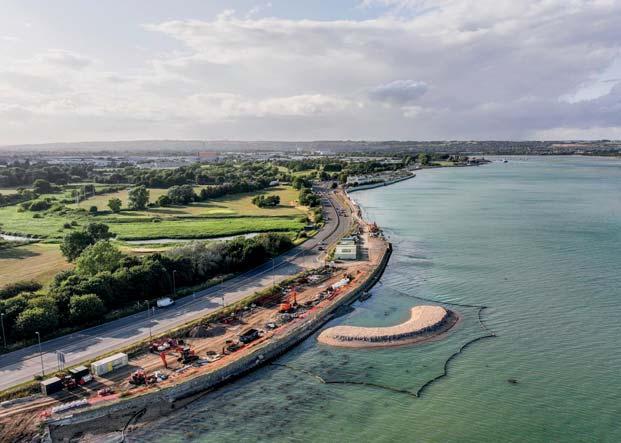
in 500 year (plus allowance for climate change to 2100) standard of protection against flooding, reducing the risk of flooding from the sea to over 4,200 homes, 500 businesses and critical infrastructure over the next 100 years.
Since 2014, the government has awarded £63.7m of funding to the North Portsea Coastal Scheme for construction. Construction began in 2015 and is being delivered in five construction phases, with completion programmed in 2026.
The scheme is grant funded by the Environment Agency as is being delivered by Coastal Partners on behalf of Portsmouth City Council.
Dredgers create island wildlife haven
Marine contractor DEME Group has released a video of the island havens it has created for wildlife following a 65km fairway deepening project.
The fairway between Szczecin and Świnoujście has been deepened to 12.5 metres and widened by 100 metres, and now can accommodate the world’s largest ships.
The widening work entailed bank and quay reinforcement, shore protection, cable and navigational aids relocation and underwater reinforcements.
DEME called on its cutter suction dredger Amazone and Meuse River as well as its dual-fual trailing suction hopper dredger Scheldt River to carry out the works.
Van Oord deployed trailing suction
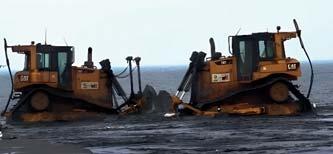
8 Deepening and widening
hopper dredgers Vox Amalia and HAM317.
The islands, created out of around 24 million m3 of dredged material and sub-surface rock revetments, are now home to some of Europe’s most endangered bird species.
Jointly financed by the Maritime Office in
8 A highlight of the project is the construction of a ‘Bird Island’ near the Eastern Road to ensure that overwintering birds can roost undisturbed
Szczecin and the European Union, the project began in 2018 and had to get over hurdles such as the Covid-19 lockdowns, winter conditions and extensive unexploded ordnance removal along the channel, which had been heavily bombarded during the Second World War.
During the UXO removal, the largest campaign in the two companies’ histories, an unexploded five-tonne ‘Tallboy’ bomb, or ‘earthquake bomb’, was discovered and defused by the Polish Navy.
Tallboy bombs were developed by British aeronautical engineer Barnes Wallis and used by the Royal Air Force as a more effective weapon against large structures than a conventional bomb.
40 | APRIL/MAY 2024For the latest news and analysis go to www.maritimejournal.com
& FLOOD DEFENCE
DREDGING
Source: Portsmouth City Council
the ports of Szczecin and Świnoujście in Poland
MCJ maritime
Maritime Contracts Journal
The Weekly Guide to Maritime Contracts, Tenders and Business Opportunities
SUBSCRIBE TODAY to access up-to-date maritime contracts, tenders & business opportunities weekly
contracts
MCJ Ref No: 1399/E/45
Project Stage: Tenders Invited
Area: Madrid, Spain
Tel: +44 (0)1329 825335 • subs@maritimecontracts.com • maritimecontracts.com
Promoter: Enagas S.A., Paseo de Los Olmos 19, Madrid, 28005, Spain
E-mail: rdelafuente@enagas.es; Tel: +34 690 042 530
Value: €2 million
Profile: Enagas intends to conduct a reconnaissance survey to perform the analysis of route alternatives and select the corridor of the ‘BarMar’ subsea pipeline project. The purpose of the reconnaissance survey is to allow the evaluation of feasibility for potential routes for the offshore pipeline to connect Barcelona to Marseille across the Mediterranean Sea.
Background: The project is part of the ‘European Hydrogen Backbone’ (EHB) panEuropean pipeline network, which is being planned across 28 countries by 2040. By 2030 it is envisaged that 28,000 kilometres of either repurposed gas or new pipelines will be connected, and by 2050, 53,000km.
Vessel R&M services
(1) Madrid, Spain (2) Early Information (3) Not stated (4) Contracting the management of ocean-going vessels of the Maritime Service of the Civil Guard, in order to guarantee their navigation and permanent operational status. (5) Jefatura de Asuntos Economicos de la Guardia Civil, E-mail: dg-contratacion-plm@ guardiacivil.org; Tel: +34 915 142 866
Port construction (1) Cesson-sevigne, France (2) Early Information (3) €34 million (4) Saint Malo Naye Terminal modernization project (5) Sembreizh pour le compte de la Region Bretagne, E-mail: ille-et-vilaine@sembreizh.fr; Tel: +33 299 127 230
Rescue vessel
(1) Fredrikstad, Norway (2) Early Information (3) Not stated (4) Fredrikstad municipality is in the planning phase of the procurement process for a new rescue boat for Fredrikstad Fire Brigade. (5) Fredrikstad Kommune E-mail: karnor@fredrikstad.kommune.no; Tel: +47 6930 6000
Survey Services for Mediterranean H2 pipeline
Thirty-one energy infrastructure operators are backing the plans.
Key to the project is the BarMar subsea stretch, which is estimated at €2.5 billion and has been designed to export two million tons of hydrogen to France and then on to Germany from Barcelona, Spain.
Enagas CEO Arturo Gonzalez said the pipeline would have an equivalent power capacity of 400% of Spanish estimated demand in 2030.
The start of construction follows a final investment decision from Gasunie in June for the first phase for more than €100 million. The nationwide network will cost about €1.5 billion, it said.
The procurement documents are available from: https://enagas. bravosolution.com/web/login.html
Environmental services (1) Holytown, UK (2) Early information (3) Not stated (4) SEPA is conducting a market assessment to gain an understanding of the potential level of interest for the provision of improvements to the flood forecasting system supporting flood warnings in the Scottish Borders on the River Tweed (and tributaries), Liddel Water, and Eye Water. (5) Scottish Environment Protection Agency, E-mail: christine.todd@sepa.org.uk; Tel: +44 1698 465 002
Patrol vessel
(1) Toulon, France (2) Tenders Invited (3) €315,000 (4) Acquisition of a vessel for liaison and transport missions for authorities in harbour or coastal strip. (5) PFC Sud, E-mail: Pfc-sud-affnav.ach.fct@ intradef.gouv.fr; Tel: +33 442 222 711
Vessel R&M services
(1) Sofia, Bulgaria (2) Tenders Invited (3) BGN 150,000 (4) Dismantling, delivery and installation of two sets of inflatable boards for a PARKER
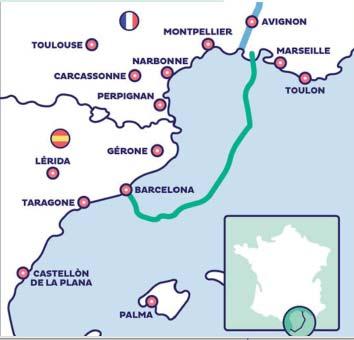
8 The ‘BarMar’ section of Europe’s ‘Hydrogen Backbone’ will be subsea Mediterranean between Barcelona and Marseille
900 type motorboat owned by the Maritime Administration Executive Agency. (5) Maritime Administration Executive Agency, E-mail: martin.nuhov@marad.bg; Tel: +35 988 904 4668
Engine R&M services
(1) Tallinn, Estonia (2) Tenders Invited (3) € 400,000 (4) Maintenance and repair works of "Caterpillar" marine engines. (5) Riigilaevastik, E-mail: info@ riigilaevastik.ee; Tel: +372 518 2182
Research services
(1) Husum, Germany (2) Tenders
Invited (3) Not stated (4) The coordination and implementation of eulittoral mussel bank monitoring in the SchleswigHolstein Wadden Sea National Park. (5) Land Schleswig-Holstein vertreten durch den Landesbetrieb fur Küstenschutz, E-mail: poststelle.husum@lkn. landsh.de; Tel: +49 4841 6670
Waterway maintenance
(1) Helsinki, Finland (2) Contract Awarded (3) € 4,103,848 (4) Contract awarded for Saimaa
waterway maintenance 2024-2029. (5) Vaylavirasto (6) Alltime infrapalvelut Oy
Port construction
(1) Galati, Romania (2) Contract Awarded (3) RON 78,824,970 (4) Contract awarded for technical assistance and execution of works within the "Tulcea Port Development - Stage I" project. Lot I – Tulcea
Industrial Port Lot II – Tulcea
Commercial Port (5) Compania Nationala Administratia Porturilor Dunarii Maritime SA (6) Tancrad
Shore Power Unit
(1) Helsinki, Finland (2) Contract
Awarded (3) £507,383 (4) Contract awarded for shore power provision in the Port of Grimsby. (5) Offshore
Renewable Energy Catapult (6) MJR Power & Automation
Oceanographic equipment
(1) Rome, Italy (2) Contract Awarded (3) Not stated (4) Contract awarded for the supply, setup, training, maintenance and assistance in the management of a mobile oceanographic research unit. (5) Invitalia (6) Remocean SRL
MARITIME CONTRACTS JOURNAL For the latest news and analysis go to www.maritimejournal.com APRIL/MAY 2024 | 41
Key: (1) Area; (2) Project Stage; (3) Estimated Value; (4) Profile; (5) Promoter; (6) Supplier/Contractor (if awarded)
SPANISH SHIPBUILDING CONFERENCE AND EXPO LOOMS
The Spanish shipbuilding trade fair Navalia is preparing to open its doors on May 21

A wide range of sectors will be represented, from shipbuilding and maritime services to financial services, engineering and the offshore industry.
Navalia has been running every two years since 2006 with the exception of 2020, when the world locked down because of Covid.
As well as the exhibition there are side events, such as the Technical Symposium.
In October 2023, the organisers said 2022 numbers were being beaten in terms of exhibitors and represented companies, with a 20% increase.
The port city of Vigo, on the northwestern coast of Spain in

the province of Pentevedra, is famous for its fishing and canning industry.
It is also home to one of the busiest and most important fishing ports in Europe, as well as being a gateway for cruise tourists with its location on the Atlantic.
All-Energy Glasgow 2024 opens for registration
Glasgow’s SEC will host the All-Energy 2024 exhibition and conference, which will be colocated with ‘DCarbonise’.
Registration is open for the two-day event, on May 15-16, which will be attended by the first minister of Scotland, Humza Yousaf, and the UK energy minister, Gillian Martin.
Last year’s event welcomed almost 10,000 visitors, organisers say.
“Our duo of events encompasses topics ranging from offshore wind (and all other forms of renewable energy, with tidal range having a full session for the first time), hydrogen and energy storage to the decarbonisation of the built environment, heat; cities/places, and to transport – with
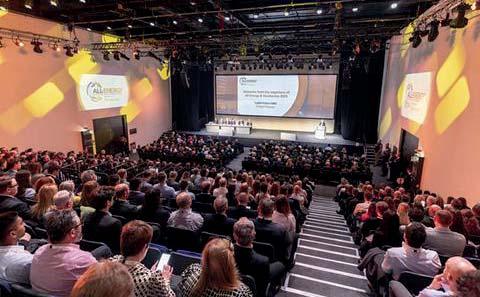
HGVs and Energy Infrastructure in the conference spotlight - and so much more, said Jonathan Heastie, portfolio director Energy & Marine, RX Global, which owns and organises the two events.
“Our exhibitor list already resembles a
‘who’s who’, and A-Z of organisations from throughout the sectors we serve including ABB, Centrica Energy, Clarke Energy, Ecotricity, EDF Energy, Enercon, GE Renewable Energy, Invest Northern Ireland, Muirhall Energy, Natural Power, Parat Halvorsen, Ripple Energy, Siemens Energy/ Siemens Gamesa, SmartestEnergy, Statkraft UK, SSE, Xodus, and ZX Lidars.
“Recent additions include Business France, Czech Trade and the HY5 -The Green Hydrogen Initiative of Northern Germany, which joins individual exhibitors from Denmark, France, Germany, Ireland, Italy, the Netherlands and Norway, as well as throughout the UK.”
42 | APRIL/MAY 2024 For the latest news and analysis go to www.maritimejournal.com
CONFERENCE PREVIEW
8 Port of Vigo
PIONEERING AI IN UNMANNED HYDROGEN-POWERED USVs
ACUA Ocean is to integrate Robosys Automation’s groundbreaking Voyager AI vessel control systems onboard its innovative ACUA hydrogen-powered H-USV.
The company said it has an ongoing commitment to further develop its range of innovative long endurance hydrogenfuelled uncrewed surface vessels across the security, offshore energy and marine conservation sectors.
“ACUA is excited to be working with Robosys and to accelerate the adoption of zero-emission technology across the marine sector,” said Oli Mulcahy, head of product, ACUA.
“Robosys’ system offers both flexible and dynamic solutions and a roadmap to future certifications for unmanned systems controls which will be key to scaling the use of autonomous technologies.”
Phased approach
Partnering with Robosys, ACUA plans to undertake a phased approach of integrating the Voyager AI vessel control software with its hybrid electric and hydrogen propulsion systems.
The H-USVs are powered by RAD Propulsion’s drive-bywire 40kW electric twin drives allowing clean and efficient control by third party systems such as Robosys.
The integration of Robosys’ solutions will provide navigational, platform controls and supported decision aids, to deliver precise USV monitoring and protection to oceanic operations.
ACUA Ocean has deployed its first mobile Remote Operations Centre situated at its Plymouth (UK) headquarters, with vessel Harbour and Sea Acceptance Testing commencing in the second half of 2024.
This will rigorously evaluate its Small Waterplane Area Twin Hull (SWATH) design for seakeeping and manoeuvrability, as

well as its unique hydrogen-electric hybrid powertrain and command, control and communications systems.
Through the partnership with Robosys, the H-USVs will operate to Workboat Code Edition 3, Annex 2, ROUV.
Additionally, as part of the agreement, the companies will further collaborate in workshops with the Maritime Coastguard Agency and Lloyd’s Register, aiming to obtain UK Flag and vessel class society certification of the ACUA H-USV with Robosys Voyager AI software.
Wärtsilä comes on board methanol power platform
Wärtsilä and US naval architect Elliot Bay Design Group (EBDG) have teamed up to develop a zero-emissions floating mobile power platform.
EBDG’s Clean Harbor Alternative Mobile Power (CHAMP) barge will feature Wärtsilä’s methanol engine technology to create a cost-effective way of reducing emissions from large vessels where shore-based power is not available.
“The CHAMP barge project represents a significant stride toward tackling the most daunting challenges in curbing port emissions, all while offering the adaptability of multi-megawatt power solutions,” said Mike Complita, principal in charge at EBDG. CHAMP will use methanol-fuelled power generated by the Wärtsilä 32 Methanol engine, complemented by Wärtsilä’s complete methanol fuel handling system,
8 A fl
8 Robosys Automation’s groundbreaking Voyager AI vessel control systems
being installed onboard ACUA’s hydrogen-powered H-USV
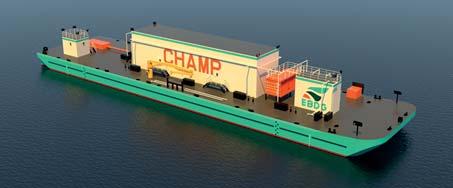
Wärtsilä MethanolPac, as well as its emission after-treatment system, Wärtsilä NOx Reducer. It will generate power from 6 to 16 MW using green methanol, providing emissionsfree energy for vessels in US harbours for up to two weeks.
“Wärtsilä’s experience with methanolfuelled marine engines is unmatched, and we continue to develop future-fuel capabilities to accelerate the decarbonisation of maritime operations,” said Joel Thigpen, general manager, new build, Wärtsilä Marine.
FUTURE FUELS For the latest news and analysis go to www.maritimejournal.com APRIL/MAY 2024 | 43
are
Source: ACUA Ocean
oating harbour barge will supply green methanol to ships in US harbours
Source: Wärtsilä
BIOMETHANE-FUELLED WORKBOAT ORDERED FOR ESTONIA
Baltic Workboats has signed a contract to supply an biomethane-fuelled workboat for the Estonian State Fleet.
The term ‘workboat’ can apply to a wide range of craft engaged in various marine support sectors, often, as an example, switching from work in the offshore energy industry to dredging support and even state sector-related activities.
It shouldn’t be assumed, however, that workboats are always associated with smaller vessels: large ships also carry out activities in deep water for the offshore oil and gas industry and can be described as ‘workboats’.
One feature they do have in common is a multi-purpose capability and such is the requirement for Estonia’s new vessel.
Saaremaa, Estonia-based Baltic Workboats has around 15 vessels in the workboat section of its extensive portfolio, ranging from just 11.7m in length to the 30.6m Workboat 31 Hydrographic Survey Vessel.
The list will be extended further with the addition of this domestic order involving a vessel of “about 40m” in length.
The Estonian State Fleet, Riigilaevastik manages around 300 diverse vessels, including state-owned ferries and patrol boats of different authorities along with survey vessels and an icebreaker.
Many orders for ships of this type place an emphasis on sustainability and this vessel will be Estonia’s first 100% alternatively fuelled workboat, using biomethane as the main fuel. It will also be equipped with a battery bank that allows operation of the vessel in more short periods in 100% electric mode
The new vessel will enhance the capacity for regular buoy tender work, waterway maintenance, scientific research, pollution monitoring and oil recovery operations, together with search and rescue missions: very much a multi-purpose vessel, it will replace the current fixed-term chartered Finnish buoy ship.
Biomethane and batteries
Many orders for ships of this type place an emphasis on sustainability and this vessel will be Estonia’s first 100% alternatively fuelled workboat, using biomethane as the main fuel. It will also be equipped with a battery bank that allows operation of the vessel in more short periods in 100% electric mode.
The exact specifications have yet to be determined and will be developed during the detail design process, but
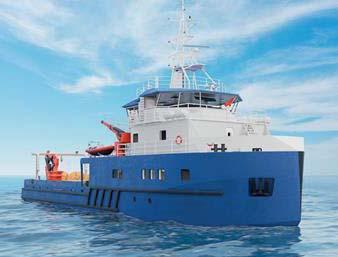
information so far indicates a vessel with an approximate length and breadth of 40m and 10m and maximum speed of 12kn. Delivery is expected in Q1, 2026 from Baltic Workboats’ Saaremaa facilities. The value of the design and construction contract is stated as €22 million, the project funded by the European Union’s recovery instrument NextGenerationEU, along with the national state budget.
Looking at the future possibilities for this particular reference beyond the domestic market and referring to how state orders are a prime example of how the public and private sectors can work together to develop the Estonian economy, Margus Vanaselja, chairman of the Management Board of Baltic Workboats, said: “When it comes to domestic orders, we perceive the trust of the state and feel a special responsibility. The multi-purpose workboat, developed especially for Estonia and based on green technologies, will later become a reference product for export markets.”
Expressing the positivity from having the first large working vessel operating on alternative fuel being completed actually in Estonia, Andres Laasma, director general of the State Fleet, added: “Baltic Workboats’ long-term experience and internationally recognised strength in the construction of different working vessels give us comprehensive confidence that the ship will be built according to the highest quality requirements and exactly as needed in Estonian waters.”
Throughout its 24 years of operation, Baltic Workboats has delivered more than 230 working vessels of varying size and functionality to a wide global export market, including in 2023 the completion of 17 vessels to customers in Oman, Canada, Norway, Ukraine, Belgium, Bangladesh and Bulgaria.
It also has three tug designs in its portfolio, including the mid-range, 19m Panda in operation with state-owned regional port management company Saarte Liinid.
44 | APRIL/MAY 2024 For the latest news and analysis go to www.maritimejournal.com
8 The ship will be Estonia’s first 100% alternatively fuelled workboat
FUTURE FUELS
Source: Estonian State Fleet
11 13
TO JUNE 202 Southampton United Kingdom



Marine Civils is co-located with Seawork

Marine Civils in association with Seawork, Europe’s leading commercial marine event. Dedicated to showcasing the latest equipment and solutions for marine, coastal and other challenging civil engineering projects with unique landscape features.
Reach a larger audience than ever before
Reserve now for 2024 and make the most of year round marketing support from Marine Civils, Seawork and our leading commercial marine
Marine Civils attracts representatives from:
• Civil engineering
• UK port authorities
• Energy companies
• Conservation organisations, amongst others
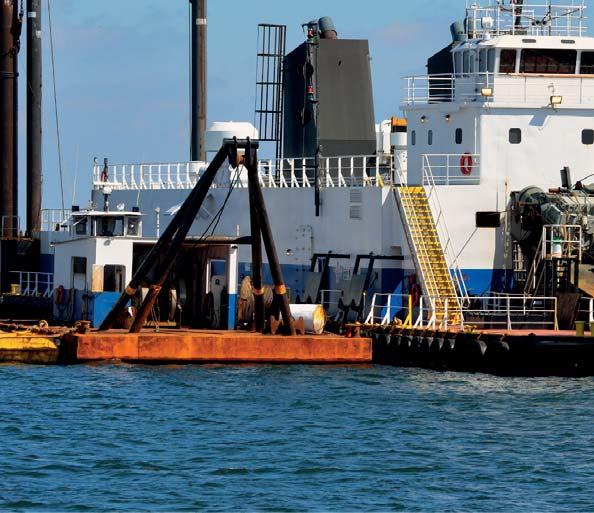
For more information visit: seawork.com
contact: +44 1329 825335
or email: info@seawork.com



With a big overlap in content and business for companies involved in marine construction, the event is uniquely positioned to provide invaluable opportunities to access wider relevant audiences via Seawork and Maritime Journal.


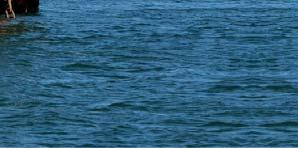
Media partners:
#Seawork
MARITIMEJOURNAL COMMERCIAL MARINE BUSINESS PORTSTRATEGY INSIGHT FOR PORT EXECUTIVES
Supporters
SPOTLIGHT: THE VITAL
ROLE OF RADAR
Rachael O’Connor of Navtech Radar examines the role of radar – which has been intrinsic to so many operations within the maritime industry – in this extraordinary progress.
With 3D-printed autonomous craft set to transport athletes and visitors around Paris at the 2024 Olympic Games and electric ferry crossings potentially set for the Thames within the next couple of years, you could be forgiven for claiming that the maritime sector is leaving other transport industries behind.
Radar has been used in by mariners for more than 80 years, complemented more recently by wider sensor technologies, for an abundance of applications.
It’s vital in navigation, enemy detection and obstacle obstacle detection for ships, swimmers, kayaks, buoys, birds and a host of other obstacles such as bridges and blue economy infrastructure our seas and waterways now house within a specified radius.
Today, plans such as those in Paris and on the Thames are showing how maritime is continuing to lead in innovation and technology, and having a far-reaching impact.
Radar continues to be the critical navigation and obstacle detection technology in maritime.
Most systems use frequencies in the S-band and X-band ranges. S-band, operating at 3GHz, offers a range of 74 kilometres (40 nautical miles), while the X-band, at around 10GHz, provides superior target resolution and highresolution imaging with a wave length of 3cm.
The emergence of W-band radar, operating at 76-77 GHz, presents a notable advance in imagery and accuracy, in particular for applications such as dynamic positioning, situational awareness, collision avoidance and autonomous berthing. The new generation of W-band radar brings even further advances with cm-level resolution for exceptional imagery, a 1,000m range for even greater situational awareness and a 4Hz update rate bringing updates to the crew in almost real time and regardless of rain, fog and glare.
It’s for these reasons that W-Band radar is increasingly being deployed near shore, on inland waterways and for navigating offshore infrastructure – such as wind farms – and latterly for the consumer ‘water taxis’ mentioned before.
How is high-resolution radar
shaping innovation?
While high-res radar is improving safety on the waterways for both autonomous and manned vessels, particularly around collision avoidance, to navigate autonomously in busy waterways relying solely on GNSS and Inertial Measurement Unit (IMU) isn’t sufficient.
These technologies lack the precision needed for such environments, especially when GPS signals weaken and IMU drift compromises accuracy. Integrating a perception-based system is vital for dependable positioning.
Traditional sensors like cameras and lidar fall short of meeting the stringent centimetre-level positioning demands, particularly in adverse weather. W-band radar offers high resolution, extended range and resilience to weather conditions. Leveraging high-frequency radar is crucial for enabling autonomous navigation in intricate and crowded water channels.
Why is centimetre-level positioning so important?
The solution to the centimetre-level positioning challenge in congested waterways may lie in high-frequency radar. Emerging technologies, particularly W-band radar, hold the potential to combine the best of both worlds – offering the resolution of Lidar, while retaining the range and robustness of radar.
High-frequency radar systems operating in the millimetrewave spectrum can deliver remarkable precision, detecting even the smallest of objects with exceptional clarity.
This makes these 360° radar sensors ideal for large-scale perception-based positioning due to their inherent ability to provide multiple highly accurate detections over a large range and field of view. These detections are stable over all weather conditions and are not influenced by lighting conditions, meaning maps maintain integrity over a longer period as the environment changes.
The resulting detailed detections from small navigations buoys, jetty pylons and harbour wall details enable features to be clear so as to describe the location.
The need for autonomy
Achieving precise positioning is not just about ensuring operational safety; it is also concerned with streamlining navigation in congested areas, optimising traffic movement and reducing the potential for collisions. This must be addressed to unlock the full potential of autonomous marine operations and as our inland waterways become busier, the need for autonomy increases.
Passenger and car ferries require the whole suite of sensors, not least to navigate very busy waterways along rivers like the Thames.
W-band radar is also fuelling innovation within vessels such as hydrofoils, which are stable, but fast, so need robust collision avoidance technology in place.
ppyg
ynamic ucture such as wind farms and oil
Out in the open sea, offshore support vessels are relying upon W-band radar for dynamic positioning to keep a steady berth alongside infrastructure such as wind farms and oil rigs.
is real-time ision nhancing situational afety. Indeed, much across many other ticularly in mining, g, in addition to the g cars on our roads hicles,
The maritime sector is undeniably making waves in autonomy. Its capacity for real-time obstacle detection, collision avoidance and positioning is critical in enhancing situational awareness and overall safety. Indeed, much of this is now deployed across many other modes of transport, particularly in mining, construction, and farming, in addition to the emergence of self-driving cars on our roads and unmanned aerial vehicles, or drones, in our skies.
tes ty, critical ecurity and avtech a
8 Navtech Radar innovates with radar to deliver highways safety, critical national infrastructure security and industrial automation. Navtech is a member of ITS America
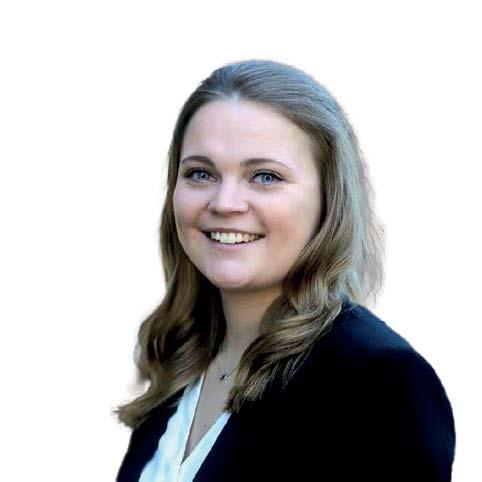
NAVIGATION & COMMUNICATION
46 | APRIL/MAY 2024For the latest news and analysis go to www.maritimejournal.com
NorthStandard and Orca AI are working together to offer the global marine insurers’ members an automated situational awareness solution to manage safety risk.
Orca AI’s situational awareness platform is designed to ensure vessels can navigate safely in challenging weather conditions and through congested waters, reducing the likelihood of accidents or delays.
“Having seen how Orca AI supports the bridge team by improving their situational awareness we are confident that it reduces the number of close quarters situations,” said Colin Gillespie, global head of loss prevention, NorthStandard.
”By extension this must reduce the number of collisions, so it was an easy decision to partner with them to support NorthStandard members in enhancing the safety of their operations.”
Digital resources
The partnership will see the AI-based solution prominently feature in NorthStandard’s new Get SET! suite of innovative digital resources and practical risk-reduction tools to protect members, their crews and assets.
As part of the Get SET! commitment to delivering exceptional service,
NORTHSTANDARD LOOKS TO AI FOR SAFER NAVIGATION

NorthStandard will also incentivise members to adopt the Orca AI solution by subsidising their investments.
NorthStandard envisages members making

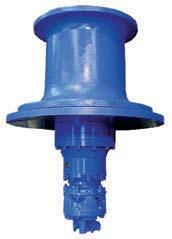
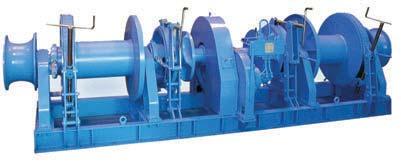

significant savings as a result of using Orca AI’s solution, with reduced bridge workload driving safer decisions and fewer human errors.
Over time, the analysis of the available data from the Orca AI solution will also allow shipowners and operators to identify safety gaps and trends in their operations that require action.
A recent analysis conducted by Orca AI showed that in 2023, 267 customer vessels reported a 26% improvement in average minimum distance sailed and the fleet as a whole saw an overall 33% reduction in close encounters in open waters and a 40% decline in crossing events.
Orca AI’s system was granted the world’s first Product Design Assessment (PDA) certificate from class society ABS for an AI-based navigation safety platform.
The Get SET! portfolio of navigational safety products was launched in January this year with the unrolling of the NorthStandard ‘ECDIS Training Assessment’ (ETA) platform.
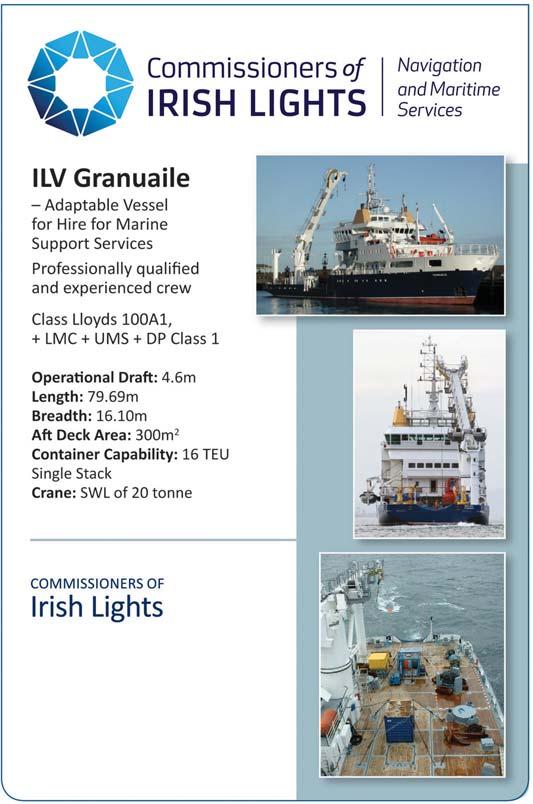

For the latest news and analysis go to www.maritimejournal.com APRIL/MAY 2024 | 47
8 The Orca AI platform features two operational modules, the SeaPod automated navigational assistant and the FleetView application for shore offices
NAVIGATION & COMMUNICATION
Source: Orca AI www.irishlights.ie Harbour Road, Dun Laoghaire, Co. Dublin, Ireland. Ph: +353 1 271 5400. E: dave.ward@irishlights.ie DESIGNERS AND MAUFACTURERS OF A FULL RANGE OF: Winches Towing Winches Windlasses Capstans info@proutmarine.co.uk
OSW DEVELOPERS CALLED ON TO DATA SHARE
Subsea survey firms and offshore wind developers have called on industry to collaborate in sharing survey data to minimise the cost of developing the number of farms that will be necessary if Europe is to meet its targets by 2030.
Pre-development surveys costing millions are being done by several developers on the same sites, and governments could do more to provide bathymetric data before money was spent, they said.
At a panel discussion held at the Oceanology International exhibition and conference this week, representatives from BP, the Crown Estate, ocean data firm Xocean, engineering consultancy Vysus Group and offshore wind developer Corio Generation, which has projects all over the world, said sharing and standardising data could be a way to speed up development at less cost. Chairing the panel, Michael King of subsea specialist firm Sulmara said if developers and financiers spent ‘a bit more money’ before the Final Investment Decision (FID) was made, it could dramatically reduce the cost over building and operating an offshore wind farm.
“We are working at risk pre-FID,” he said. “If you could save hundreds of millions of dollars by spending a couple of million pre-FID, is it worth it? And could we then build them more quickly?”
The costs pre-FID come from the survey work that needs to be done to identify prime locations for development offshore, and make sure they are environmentally sound. Often the surveys, which can cost millions of dollars each, are done by more than one firm.
And if the firm is not finally selected to develop the site, they have spent the money for nothing.
Government support
This is where governments could step in, said King, in supporting developers with existing data provision and sharing data from projects already in the water.
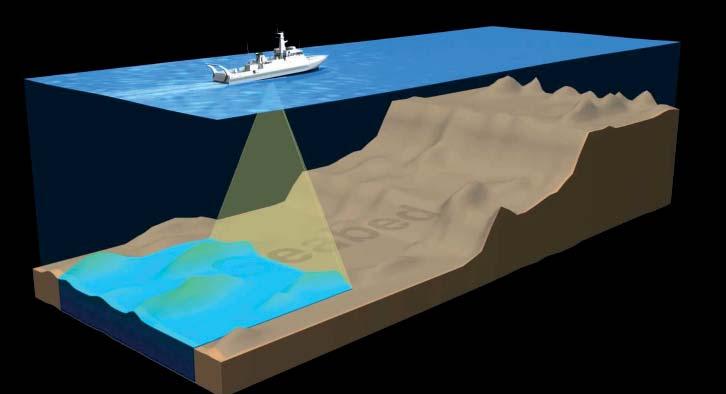
Chelsea Bradbury, senior marine data & insights manager at the Crown Estate, said this was on their agenda.
“We put money into understanding where the best locations are for offshore wind,” she said. “We are always looking at how we can improve the data so that when we open an area for development we can be confident they are good places,” she said.
By looking more closely at all aspects of development, huge savings could be made. For example, King said, manufacturing a monopile with 1mm less steel thickness could mean vast savings both in money and time.
“If you use less steel in monopile and foundations you change the timeline,” he said. “There are only nine vessels in the world that can install four-tonne monopiles. If you reduce the weight to 3.5 tonnes, there are 25 vessels that can do it.”
Exail launches 16m USV with 30-day endurance
Exail has unveiled a new transoceanic Uncrewed Surface Vessel (USV) with multirobot deployment capabilities for subsea operations.
Launched at Oceanology International at London’s ExCel exhibition centre this week, the DriX O-16 gives the option of complete autonomy up to 2,500 nm, or can be remotely controlled.
Its naval architecture, Exail says, can withstand the most severe ocean conditions.
Like its 8m predecessor, It has operational endurance of 30 days and can deploy multiple payloads and subsea assets.
The electric-diesel vessel has a fibre-optic gyroscope for rotational measurement, which Exail says is a core element of the technology.
“With this next-generation transoceanic low-carbon USV, we are pushing back the limits of ocean exploration, empowering collaborative autonomy between surface and subsea drones, while minimizing human exposure at sea,” said Olivier Cervantes, VP Maritime Autonomy Solutions at Exail.
“The introduction of our new DriX O-16 truly marks a significant stride in autonomous maritime operations, as multi-robot missions are definitely where we see the maritime industry and our own developments leaning in the coming years.”
Versatile platform
The new USV leverages the successful track record of the already existing DriX USV,
8 Bathymetric survey using a multibeam Echosounder
launched back in 2017 and that accumulates more than 150,000 hours of operations at sea in more than 19 countries.
DriX O-16 has hybrid propulsion, redundant architecture, advanced communication systems and AI-powered obstacle detection and avoidance capabilities. It also allows launch and recovery of a range of subsea assets such as Remotely Operated Towed Vehicles, inspection-class Remotely Operated Vehicles and Autonomous Underwater Vehicles.
Its gondola, located below the surface, can further host a wide range of payloads such as deep-water Multibeam Echosounders, Sub-Bottom Profilers or aoustic subsea positioning and communication systems.
48 | APRIL/MAY 2024 For the latest news and analysis go to www.maritimejournal.com
HYDROGRAPHIC SURVEY
TELEDYNE LAUNCHES SENTINEL GLIDER, SNAPS UP VALEPORT
Oceanographic products firm Teledyne Marine used the recent Oceanology conference and exhibition for two announcements – a product launch and an acquisition.
The company’s Slocum Sentinel Glider is being touted as a ‘ground-breaking advancement in autonomous underwater vehicles’, largely because of its increased size, which in turn increases its subsea ocean-going endurance to an incredible two years.
Speaking to MJ after the launch event, product line manager Shea Quinn said because the glider was 2.57m in length and had its diameter increased to 33cm it could hold three and a half times more batteries, thus giving it two years at sea.
The batteries are non-rechargeable lithium primary batteries, which have far more energy density than their chargeable lithium-ion counterparts.
“Customers want longer endurance and on-board processing,” he said. “This is different from other products because it uses changes in buoyancy and gravity to propel it, with the motor used at the inflection point.
“The object is to stay in a single area for a long time collecting data, and the plan is to replace offshore survey vessels as this can be fitted with more energy sensors, such as active or passive acoustics, as well as on-board processing, imaging and echosounders.”
The buoyancy engine can cope with sudden density changes in the water column, he said, and the thrusters at the back give it added robustness in strong currents or other tricky ocean conditions.
The Sentinel, which has a standard speed of 0.75 knots and a sprint speed of 3.5 knots, is aimed at three main sectors: military, offshore wind and oil and gas, with its debut likely to take place in the former.
Alongside the Slocum Sentinel Glider launch, Teledyne Marine announced its acquisition of the UK-based

oceanographic and hydrographic instrument maker Valeport.
Founded in 1969, Valeport makes instruments for subsea operations across the board, including dredging, port and harbour infrastructure, scientific research and energy.
Managing director at Valeport Matt Quartley said he believed the time was right ‘for the next phase of the journey’.
Four autonomous ferries lined up for Norway
Four autonomous 100% electric ferries earmarked for Norway will ’revolutionise coastal transport’, says Turkish shipbuilder Tersan.
A land-based control centre will monitor and potentially remotely control the vessels, which will have a capacity of 399 passengers and crew and 120 passenger cars.
The four vessels are scheduled for delivery in 2026 to Fjord1, Norway’s largest ferry owner and operator with 81 vessels, which was bought by DIF Capital Partners in October 2023.
The contract, the first of its kind for passenger vessels, was signed after the Norwegian Public Road Administration awarded a long-term public transport tender to Fjord1 for the 5km Lavik-Oppedal crossing
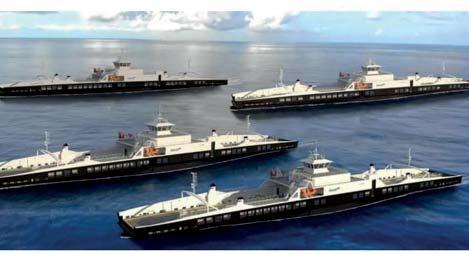
north of Bergen along Norway’s west coast.
The plan is to introduce more and more autonomous features, such as auto-crossing and auto-docking, until they are fully autonomous.
Designed by Norwegian architect HAV Design, the 120m long vessels follow the delivery of two other battery-propelled ferries alo designed by HAV and built at Tersan.
Sunnylvsfjord and sister ship Norddalsfjord are 84 metres in length and can carry 248 passengers and crew and 80 cars.
“We are again honored to collaborate with Fjord1, a visionary partner committed to environmental stewardship,” said Mehmet Gazioğlu CEO of Tersan Shipyard. “Together, we are shaping the future of maritime transport.
“With the deliveries of two ferries and contracts for four new ferries, Fjord1 and Tersan have strengthened their collaboration. Considering the challenges ahead in terms of building autonomous vessels while the autonomous rules and regulations are being developed simultaneously, we are more than glad that we have been awarded with these contracts representing the trust we have built in Fjord1.”
AUTONOMOUS VESSELS & TECHNOLOGY For the latest news and analysis go to www.maritimejournal.com APRIL/MAY 2024 | 49
8 Valeport MD Matt Quartley (L) and Ole Søe-Pedersen, VP & GM Teledyne Marine Europe
ource: Teledyne Marine
SMD’s FIRST E-ROV SIGNED UP
BY JAN DE NUL
Subsea equipment manufacturer SMD has signed the first contract for its new electric ROV with one of the world’s biggest marine contractors, Jan De Nul.
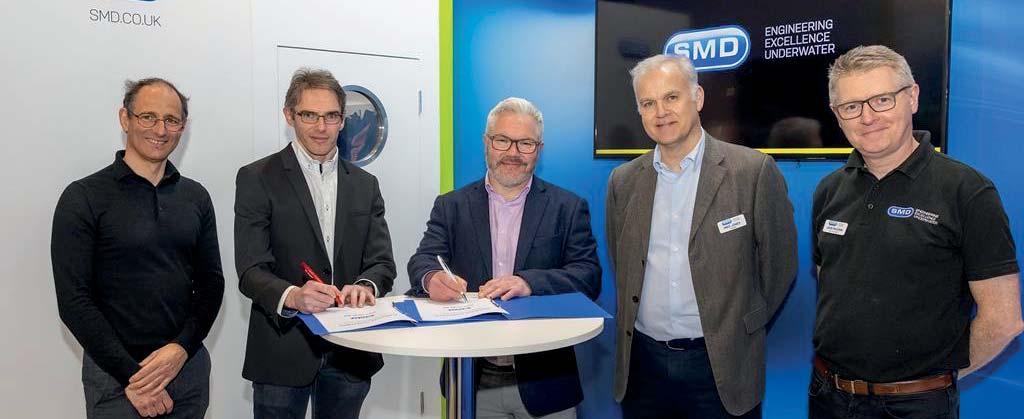
Bought by the Chinese Rail & Rolling Stock Corporation (CRRC) in 1998, SMD – which stands for Soil Marine Dynamics – launched its first fully electric ROV, the Quantum EV, at London’s Oceanology International exhibition this week.
Engineers from Jan De Nul, which has ordered the Quantum EV to deploy on its extra large Fleeming Jenkin cable layer, a 200-metre giant capable of carrying carousels weighing 28,000 tonnes, attended the signing with SMD.
Holding position is vital when working with a cable layer like the Fleeming Jenkin, which can lay at a maximum speed of just 1km per hour, and only as fast as that in excellent weather conditions.
The Quantum EV has been selected by Jan De Nul because of its ability to withstand ocean currents while accompanying the cable layer as it works.
The EV, which is also the firm’s largest model in the hydraulic range at 3.3 metres long, is electric but does not run on batteries.
“It uses DC electric propulsion from the surface,” said chairman Michael Jones. “It’s 40% more efficient and for the size of the vehicle has much higher power. It can do four knots in any direction, which means it can operate in a threeknot current.
“That was less of a requirement in oil and gas because they are in deeper water – it’s more important in shallow waters, such as the North Sea offshore wind farms, or off the east coast of the UK, or Taiwan, and America.”
“We chose the Quantum EV for its ability to maintain position in high currents,” said Arne Baeyens, technical superintendent, Remotely Operated Vehicles, with Jan De Nul.
“The combination of the SMD on-board flight control and high stability, and that it can stay out longer than other ROVs if the underwater conditions are bad.”
Fleeming Jenkin is in build, with a delivery target of summer 2026.
Baeyens said the vessel will be a battery-hybrid vessel with the option to use methanol – and the increased need for
storage for methanol, which is much less energy dense than diesel, would not be a problem because most of the vessel’s load will be on deck, leaving plenty of space in the hold.
The vessel is named after Henry Charles Fleeming Jenkin, an English engineer who was a pioneer in offshore cable installation.

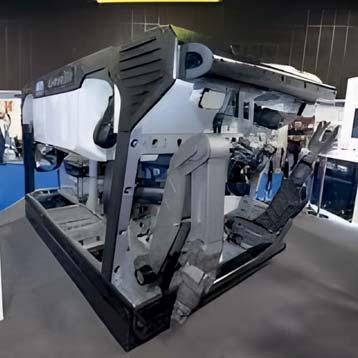
Although It’s smaller than a hydraulic ROV, there’s more space inside it because it doesn’t need a hydraulic power unit to convert the electrical input – the CRRC’s technology enables the motor to use the electric input directly
Because the Quantum EV is electric, Michael Jones said the intervals between maintenance are much greater and there are fewer parts to worry about.
Although the vehicle has to be tethered to a surface vessel at the moment, there are plans to explore autonomous options in the future, Jones said.
And although It’s smaller than a hydraulic ROV, there’s more space inside it because it doesn’t need a hydraulic power unit to convert the electrical input – the CRRC’s technology enables the motor to use the electric input directly.
Weighing four tonnes, the Quantum has power of 200kW and 280HP and can cope with a depth of 4,000 metres.
50 | APRIL/MAY 2024For the latest news and analysis go to www.maritimejournal.com
8 At Oi24 from left: Jan De Nul’s Alex Steffen and Arne Baeyens; SMD’s Mark Collins, Michael Jones and John McCann
DIVING & UNDERWATER SERVICES
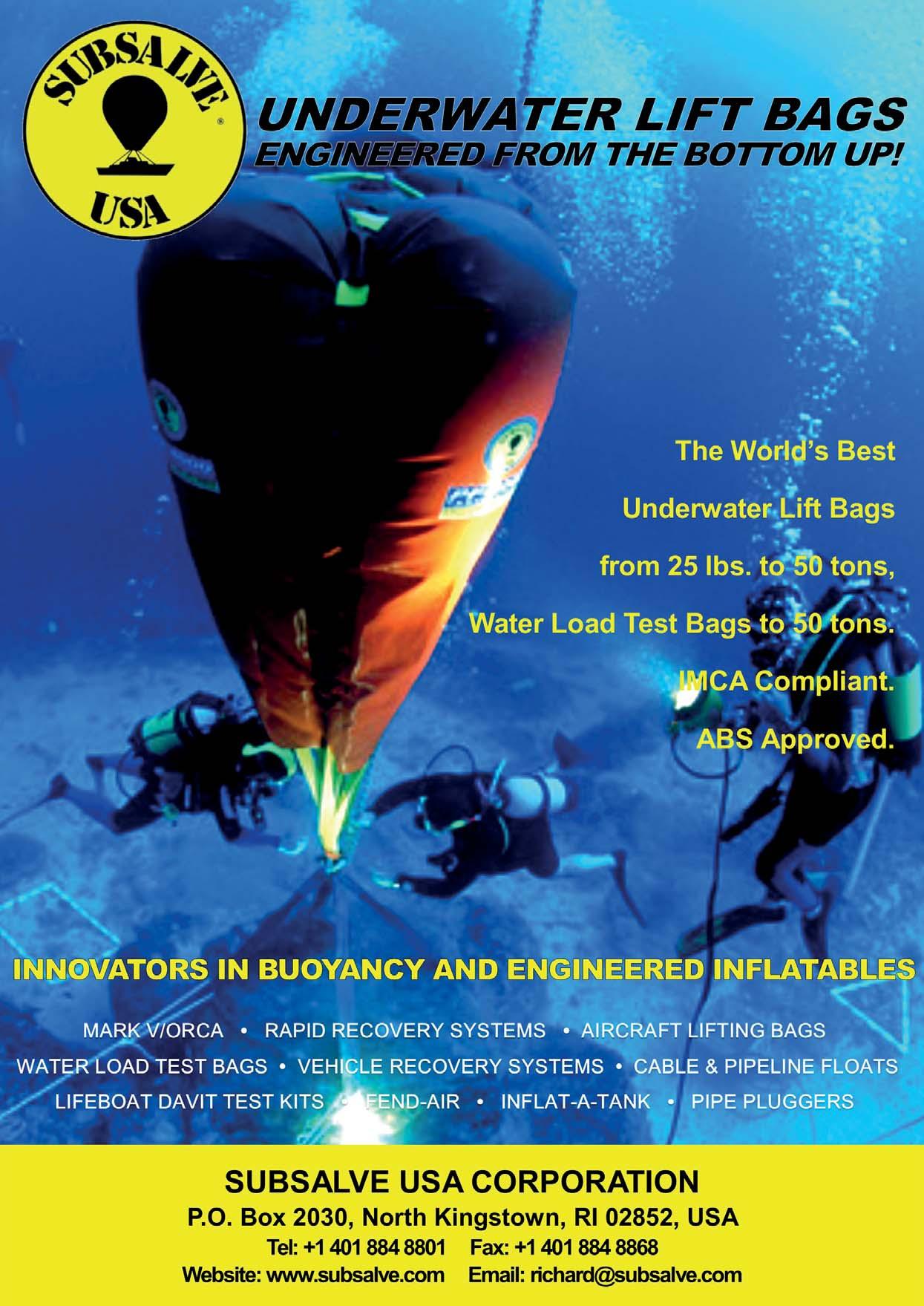
OSV SECTOR PICKS UP PACE ON DIGITALISATION
The OSV sector stands at a critical crossroads, with various factors driving the industry towards heightened fuel efficiency, says Opsealog business director Damien Bertin.
As well as offshore wind needs, major oil-producing nations in the Middle East and other regions are planning to ramp up production, driving up demand for offshore support vessels.
Amid the escalating demand, the industry faces a shortage of OSVs, many of which were scrapped or withdrawn from the market during the Covid era. This scarcity has led to substantial hikes in day rates, compounded by elevated fuel prices, posing challenges for both shipowners and charterers, with far-reaching implications.
This is shifting the dials in several ways.
Following several years of low costs, charterers are experiencing a substantial rise in global expenses, driven by soaring fuel prices and daily rates. This is a powerful incentive to improve operational efficiency and cut costs in a swiftly evolving market. In response, the adoption of digital systems that facilitate operational monitoring is increasing. The immediate goal is to enhance fuel efficiency, while in the long term, these systems help in identifying the optimal vessels and fleet size to meet evolving requirements.
The resurgence of the offshore market will require a reassessment of fleet composition and upgrades.
For vessel owners, the combination of vessel shortages and attractive rates is incentivising them to maximise vessel availability and capitalize on these favourable conditions. However, high interest rates present a challenge, making financing more difficult and new-build orders less attractive. While fuel efficiency remains a central consideration for investment, ongoing uncertainty around new fuels and regulations steers much of the industry toward extending the life of assets they have rather than adding new vessels to fleets.
Adapting through digital means
As a result, the past few months have seen an evolution in industry discourse around the significance of digitalisation in enhancing operational efficiency.
The industry’s interest and the viability of investments, whether in new assets, technologies, or digital systems, remain closely tied to market conditions, influencing the ongoing development and adoption of digital solutions.
The conversation has matured, with companies across the sector now acknowledging the practicality of embracing digital technologies, while understanding that a single solution cannot address all existing challenges. Leading charterers and shipowners in the OSV sector are now building their ‘digital ecosystems’, integrating data analysis software with hardware providers, logistics software, and more.
The advantages are clear: companies can effectively monitor fuel usage, enhance energy efficiency, and assess engine performance through fuel monitoring and analytics. Detailed monitoring offers fleet managers valuable insights in optimising operations, reducing their carbon footprint and managing operational costs.
Having a robust digital foundation will increasingly serve as a crucial competitive differentiator for companies, helping to reduce GHG emissions and prolong vessel lifetimes.
Incoming regulatory requirements
As well as market challenges, there is mounting regulatory pressure for decarbonisation. Though not currently required to comply with EU ETS regulations, OSV operators are anticipated to do so in the future, as indicated by the European Council.
The emissions trading scheme is set to include offshore ships above 5,000gt from 2027, while the EU MRV will extend from 2025 to cover offshore ships above 400gt. By 2026, the European Commission will review whether general cargo and offshore ships between 400 and 5,000gt should also be included in the ETS.
Beyond the shipping industry, energy majors and their shareholders are keen to cut upstream emissions, with the public keeping a watchful eye on their progress.
The resurgence of the offshore market will require a reassessment of fleet composition and upgrades
As environmental regulation is gradually tightened, data will play a crucial role in unlocking operational efficiencies to reduce fuel consumption and greenhouse gas emissions.
Establishing data standards for e-reporting, especially under regulations like EU MRV and IMO’s CII, will become a pivotal step in facilitating the wider adoption of digital systems in the offshore sector.
Industry-led initiatives by organisations such as the International Support Vessel Owners Association, the Smart Maritime Network and Energy LEAP indicate meaningful strides towards making digital reporting a reality. However, formal approval of these standards by regulators such as the IMO and the European Maritime Safety Agency is crucial to transition from traditional paper and spreadsheet reporting to fully digitised processes.
Maintaining momentum
While digitalisation has made signifi in the OSV sector, challenges persist, and many owners and charterers are waiting.
The abundance of available digital systems prompts shipowners to seek a clearer understanding of return on investment and how these solutions can complement each other. It’s therefore crucial that suppliers showcase the pragmatic business case for digitalisation as a 'lowhanging fruit’ option that doesn’t require major CAPEX investment, and can deliver immediate efficiency gains and fuel savings. 8 Opsealog is a France-based fleet monitoring and performance technology firm
der adoption of digital anisations such as the ners Association, the nergy LEAP indicate ng of these standards he n from cant strides t, and l systems clearer stment ement
matic lowquire eliver t
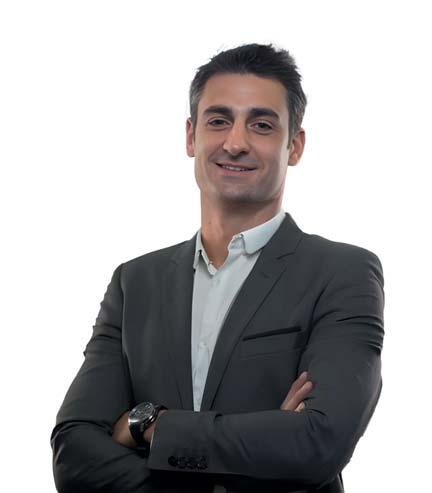

MONITORING & CONTROL
52 | APRIL/MAY 2024For the latest news and analysis go to www.maritimejournal.com
Miros has been expanding its real-time IoT wave and current monitoring solutions across the offshore segment.
During 2023 the company doubled the number of as-a-Service (aaS) contracts, which cover a diverse range of requirements across the offshore vessel market, thanks to strong growth in the UK, Norway and Brazil.
“We recognise that our success is intertwined with the broader goals of the maritime and energy industries; that is why our systems are designed to support wider industry objectives and contribute to a more sustainable market for all,” said Andrew Wallace, Miros’ VP Offshore Solutions.
”We are excited to see the impact that our high-quality offerings and supporting applications will have as we continue the journey towards a more sustainable future hand in hand with our customers.”
Real-time monitoring
The Miros WaveSystem offers offshore operators and regulators real-time measurements of the local sea state, as a viable and cost-effective solution for optimizing cable and pipe lay, offshore installations, heavy lift, IRM and drilling activities.
Real-time sea state data strengthens the
IoT SEA STATE MONITORING FOR OFFSHORE OPERATORS
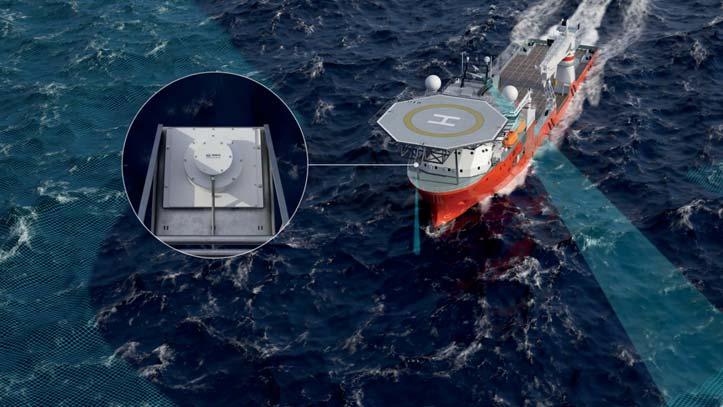
overall decision-making system and provides invaluable insights, allowing conditions to be assessed, analysed, and documented to ensure they are also in line with contractual or technical limitations.
WaveSystem is increasingly used as a data feed to important onboard systems, like Dynamic Positioning Capability, packaged within survey data requirements, or as riser stress analysis and integrity management.
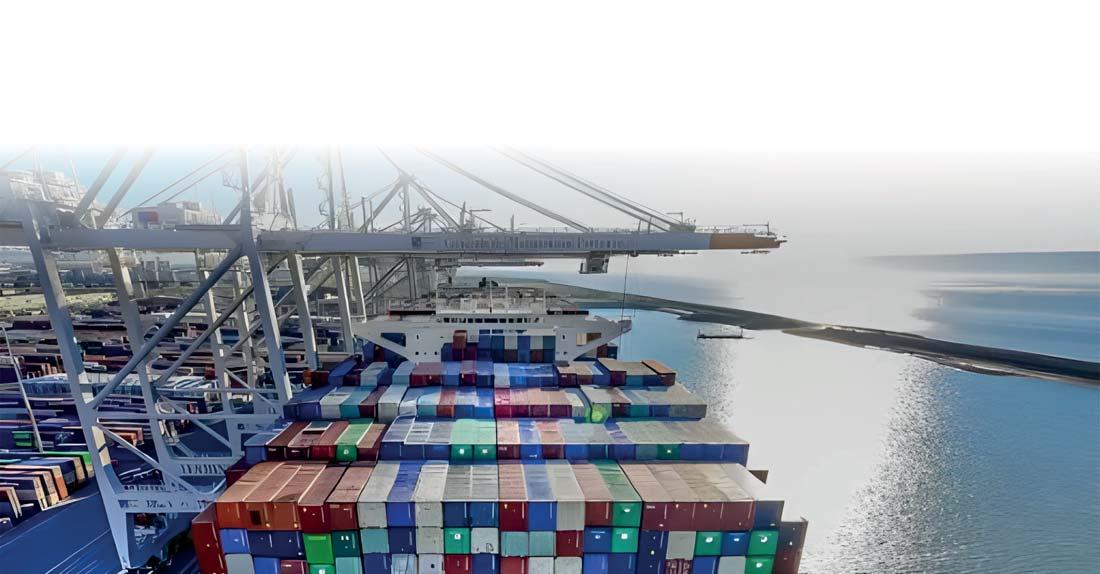
For the latest news and analysis go to www.maritimejournal.com APRIL/MAY 2024 | 53
MONITORING & CONTROL
Source: Miros
Meet and network with over 200 attendees representing port authorities, terminal operators and shipping lines. For more information on attending, sponsoring or speaking, contact the events team: visit: greenport.com/congress tel: +44 1329 825 335 email: congress@greenport.com Date for your diary in 2024 Join the world’s leading conference on balancing environmental challenges with economic demands Le Havre Media Partners:
8 Miros has been expanding its real-time IoT wave and current monitoring solutions across the offshore segment
SAR PARTNERSHIP WILL INCREASE ICELANDIC FLEET SAFETY
The Icelandic Association for Search and Rescue (ICE-SAR) has formed a commercial partnership with Hefring Marine to increase its fleet safety and operational efficiency.
This collaboration aims to equip all new vessels in the ICESAR fleet with Hefring Marine’s Intelligent Marine Assistance System (IMAS), promising significant advancements in safety and operational efficiency.
“This partnership with Hefring Marine marks a pivotal moment in our continuous effort to advance the capabilities of our crew and fleet,” said Björn Jóhann Gunnarsson, Maritime SAR Project Manager at ICE-SAR.
The integration of Hefring Marine’s innovative technology aligns with our commitment to safety and efficiency, ensuring our crews are supported by the best tools available as they perform their critical missions in the tough conditions they are often forced to encounter.”
Real-time testing
The decision to integrate Hefring Marine’s IMAS systems across the fleet follows a successful pilot project on the rescue vessel Þór in Vestmannaeyjar.
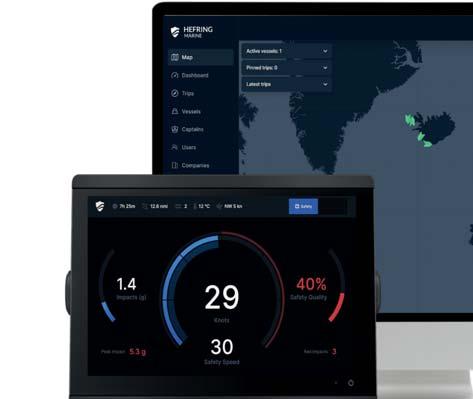
Hefring Marine’s IMAS focuses on optimising vessel performance, reducing fuel consumption, enhancing vessel life cycle and minimising environmental impact, thereby aligning with global sustainability goals.

Additionally, the technology can significantly enhance onboard safety by providing captains with operating support that aims to continuously optimise speed and seakeeping to reduce the physical strain on crew members, especially under challenging conditions.
”This partnership embodies our dedication to leveraging our data-driven technology to not just improve operational efficiency but, more importantly, to significantly elevate safety standards at sea,” said Karl Birgir Björnsson, CEO and co-founder of Hefring Marine.
”Together, we are setting a new benchmark for maritime safety and innovation.”

The implementation of Hefring Marine’s systems is not limited to new vessels; existing ships, including Sigurvin in Siglufjörður and Jóhannes Briem in Reykjavík, will also undergo upgrades.
A fourth ship, currently under construction in Finland, is planned to join the fleet fully equipped with Hefring Marine’s technology. ICE-SAR is in the process of renewing all thirteen of its rescue ships stationed around Iceland, with each vessel set to benefit from Hefring Marine’s IMAS systems.
Henrik Helsinghof takes the helm at Viking A/S
Viking Life-Saving Equipment has appointed Henrik Helsinghof as its new chief executive officer effective from 1 June 2024.
The appointment of Mr Helsinghof follows the sad death of former CEO Henrik Uhd Christensen in January following a short illness.
“We are extremely pleased to welcome Henrik to our leadership team as CEO. He is a dynamic leader with a proven track record and a passion for company development through people,” said Jens Lindholm, chairman of the board of Viking A/S.
”With his past experience of Viking and recent successes as a CEO, Henrik is the ideal person to take our company forward. He has the full backing of the board and
owner, the Claus Sørensen Foundation and we look forward to working with Henrik as we build the Viking of the future.”
Henrik Helsinghof had previously been identified by Henrik Uhd Christensen
8 Hefring Marine’s IMAS focuses on optimising vessel performance, reducing fuel consumption, enhancing vessel life cycle and minimising environmental impact
and the Viking board of directors as a possible successor.
His appointment therefore ensures continuity while also bringing new perspectives to VIKING’s leadership team.
He began his career in Viking in 2006 as student assistant and remained with the company for 14 years, holding various positions, including managing director of Viking Nadiro.
Mr Helsinghof joins Viking from Bramidan A/S, where he was CEO for hree years, overseeing a period of continuous improvement.
8 Viking Life-Saving Equipment has appointed Viking Life-Saving Equipment has appointed Henrik Helsinghof as its new chief executive officer as its new chief executive officer a
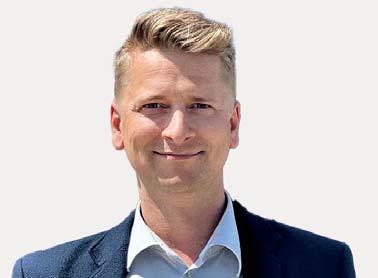
54 | APRIL/MAY 2024For the latest news and analysis go to www.maritimejournal.com
& TRAINING
SAFETY
Source: Hefring Marine
Book Now



Delegate place includes 2-day conference attendance including lunch & refreshments
Technical Visit
Electronic documentation
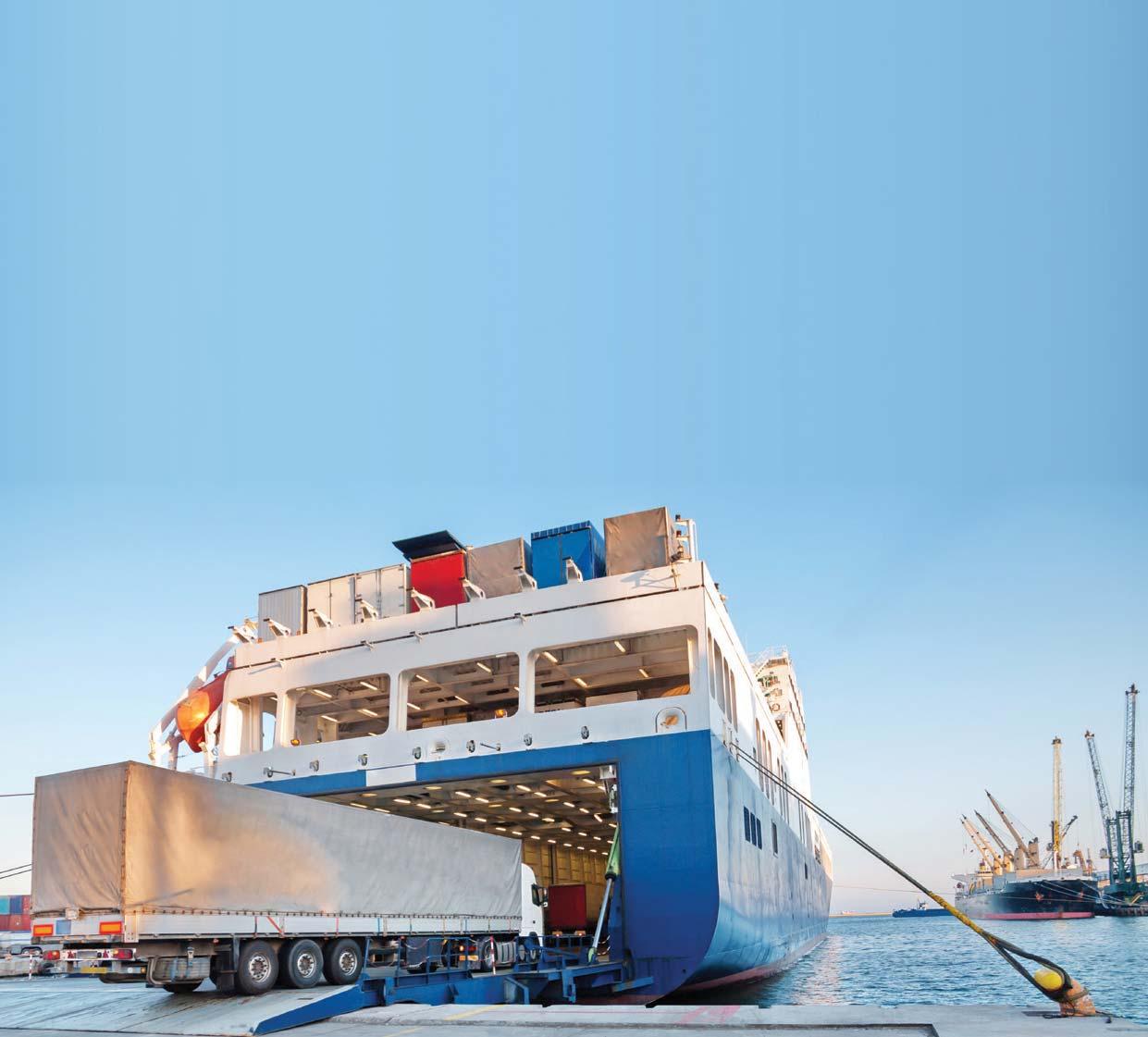
Sponsors:
Supporters:

coastlink.co.uk
info@coastlink.co.uk
2024 Programme and Topics
•









+44 1329 825335
-
INSIGHT FOR PORT EXECUTIVES MOTORSHIP MARINE TECHNOLOGY THE
by: APRIL Port of Amsterdam The Netherlands 24 25 TO
Media partners: GREENPORT
Hosted
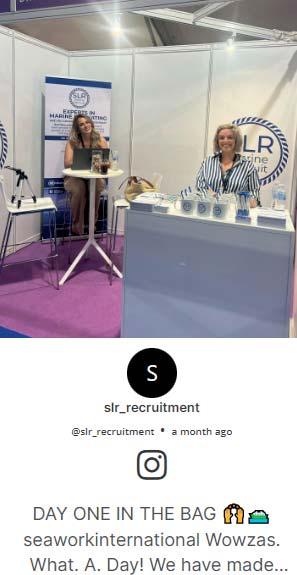
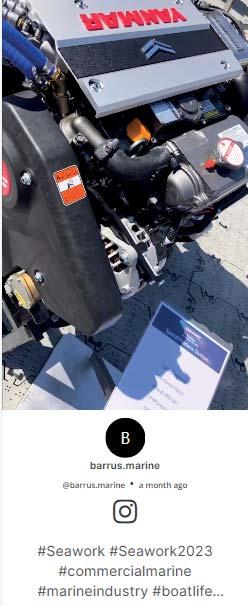
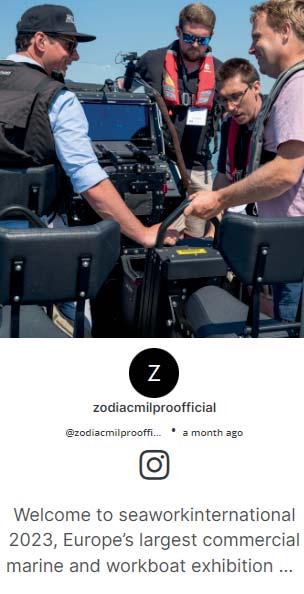

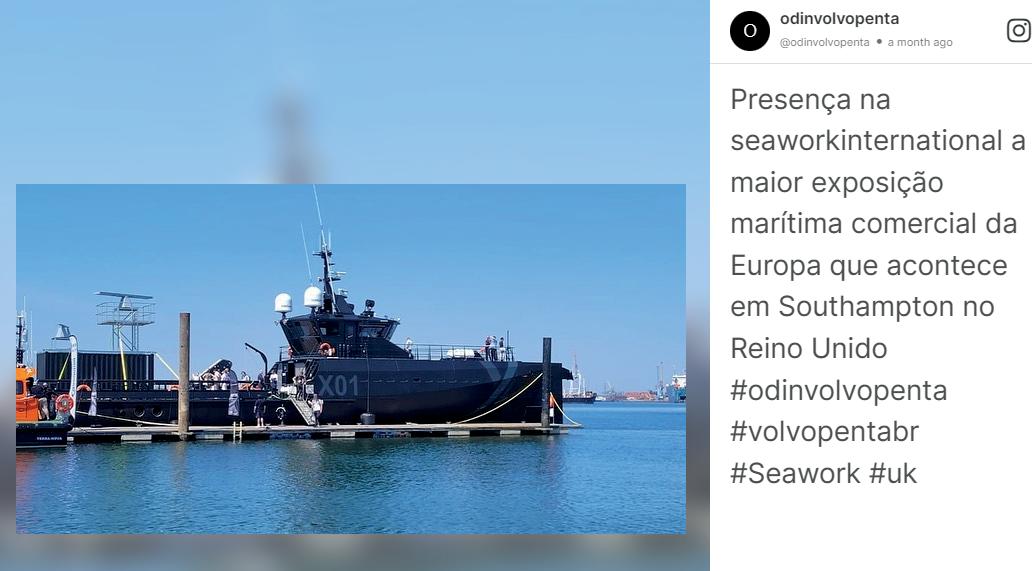
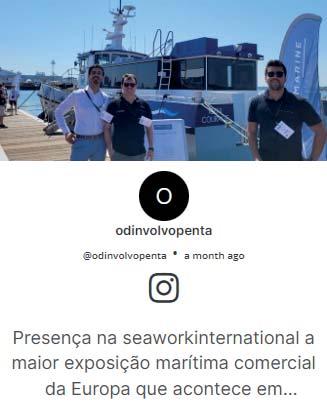
SLR Recruitment -
"We have made sooo many new connections! Buzzing for day two, but not before a cheeky celebratory wine to finish an incredible day.



#Seawork
"
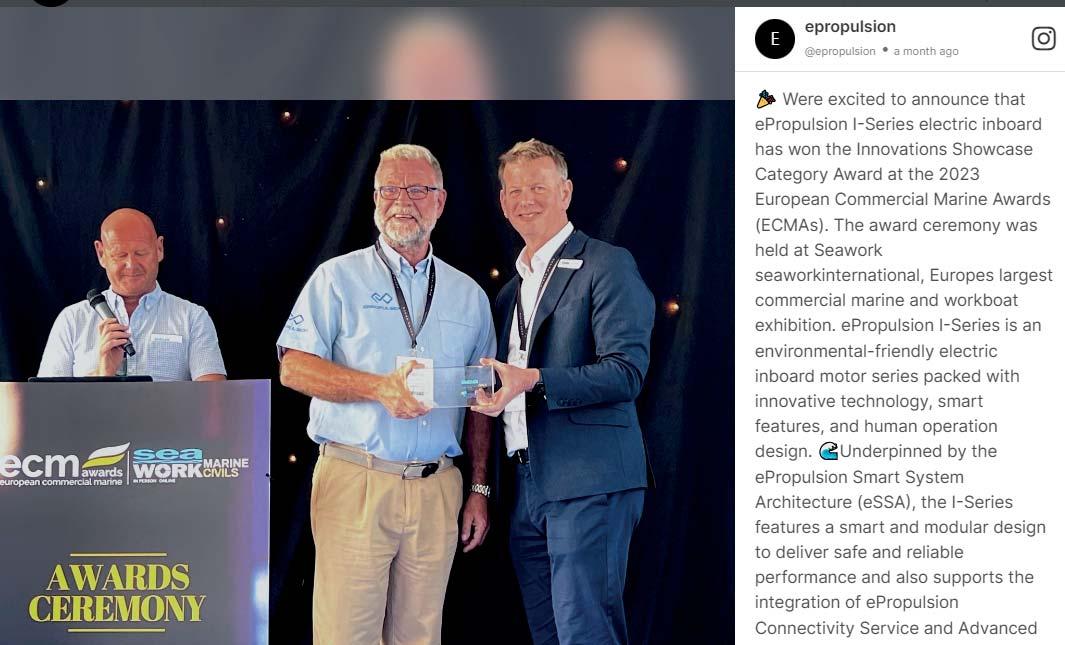
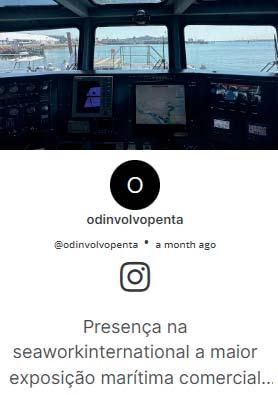
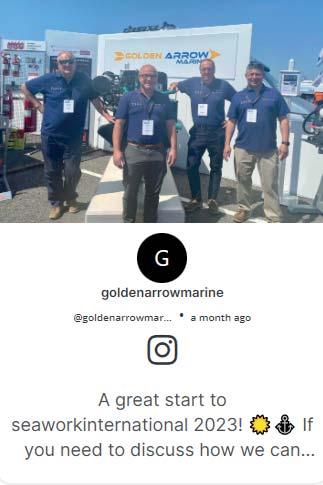
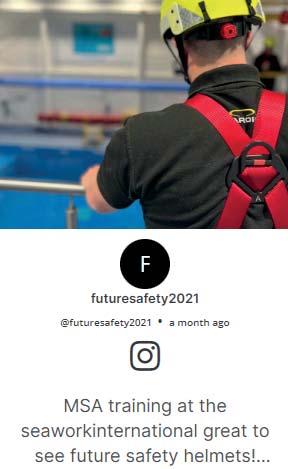
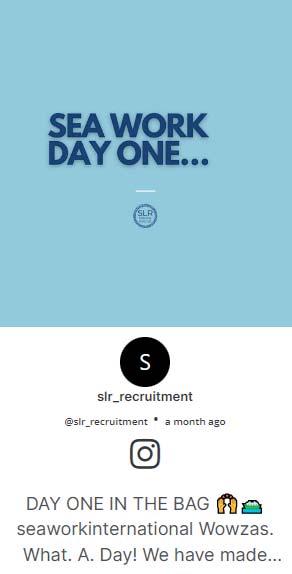
DiverseMarineAgreatfirstdayat seaworkinternationalin Southampton!Meeting theMinisterofState, nus_ghani!


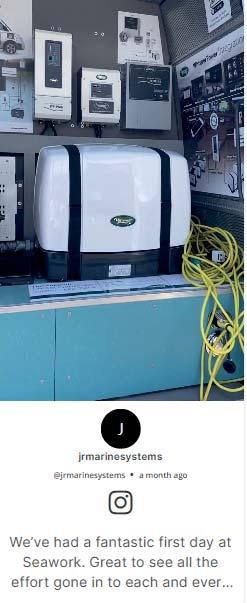
SECURITY
The UK Border Force made the largest ever seizure of Class A drugs in the UK, it said at the weekend.
Cocaine worth £450 million (€527 million) and weighing 5.7 tonnes was seized from a container of bananas at the Port of Southampton on the south coast.
Large though it is for the UK, this is dwarfed by the recent record 116 tonnes seized in Belgium in January, its largest haul ever.
The National Crime Agency said the drugs had been found in a container from South America that was heading for Hamburg, although some of it would have ended up on the UK’s streets as well.
This is two tonnes more than the previous record, which was also seized at Southampton and less than two years ago.
Working with the ‘Near Europe Task Force’, the NCA said it had identified the load and notified the Border Force, who searched the banana cargo on |February 8.
“Enquiries are ongoing with international partners across Europe with a view to identifying the criminal networks involved,” it said, adding that it believed criminal gangs made £4 billion (€4.7 billion) a year from illegal drugs in the UK alone and that this seizure would massively lower profits.
LARGEST EVER UK COCAINE HAUL HIDDEN IN BANANAS
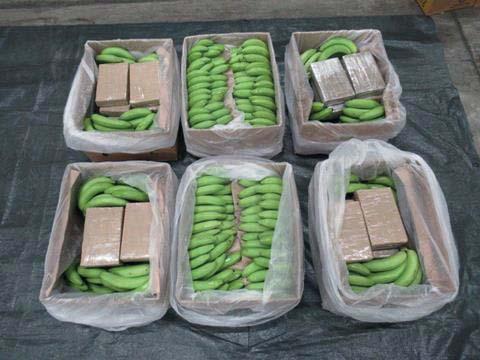
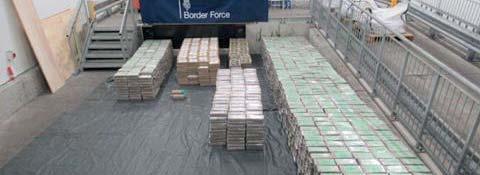
“Cocaine
The
Agency said the drugs had been found in a container from South America that was heading for Hamburg, although some of it would have ended up on the UK’s streets as well
said. “The cocaine trade has seen an exponential rise in associated violence in the past few years.”
“This seizure sends a clear message to criminals that they will be caught,” said MP Tom Pursglove. “Our Border Force officers continue to work relentlessly to protect our borders and ensure the safety and security of the public.”

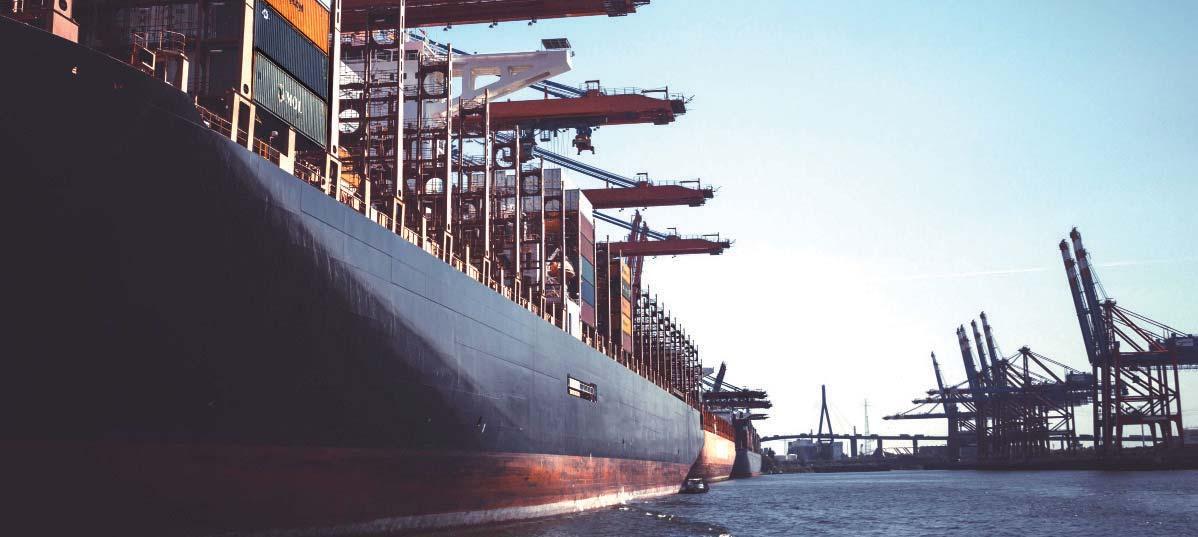







 8 Cocaine from by the UK Border Force that was concealed in a container of bananas from South America
trafficking is closely linked to serious violence throughout the supply chain, including firearms and knife crime in the UK,” it
8 Cocaine from by the UK Border Force that was concealed in a container of bananas from South America
trafficking is closely linked to serious violence throughout the supply chain, including firearms and knife crime in the UK,” it
58 | APRIL/MAY 2024 For the latest news and analysis go to www.maritimejournal.com
Source: UK National Crime Agency
National
Supported by: Sponsored by: Propulsion & Future Fuels is the longest-running technical conference in the maritime sector, providing senior executives with a meeting place to learn, discuss, and share knowledge of Visit: motorship.com/propulsion-and-future-fuels-conference Contact: +44 1329 825335 Email: conferences@propulsionconference.com Join us in November Empire Riverside Hotel Providing senior executives with a meeting place to learn, discuss and share knowledge of the latest Topics & Presentations cover: Methanol Ammonia Bio-Fuels LNG 21 TO NOV 19 Hamburg Germany 45TH #MotorshipPFF Organised by: MOTORSHIP MARINE TECHNOLOGY THE Media supporters:
Crime
SWEDEN WORKS TO ELECTRIFY ITS FERRY ROUTES
The Swedish Transport Administration, Trafikverket, is currently electrifying many ferries as part of its Vision 45 plan for a climate-neutral ferry service by 2045.
As part of the process, METS Technology, main contractor and integrator of the Gullmarsleden ferry route in Lysekil, Sweden, has awarded a cable management system to Zinus who will deliver a ZPP800, fully autonomous charging tower for the route.
”Sweden is a market of growing interest to Zinus and we look forward to enable efficient autonomous charging to a growing number of ferry stretches,” said Endre Eidsvik, CEO of Zinus.
“What is particularly nice with this project, is that it includes our new solution for a multi-axial connection that will ensure to-the-point connection at any given tidal range in addition to a larger longitudinal docking range. There is an increasing demand for this system which has been offered to several projects already, but Trafikverket will be the first to take advantage of the innovation.”
Clean ferry vision
Since its establishment in 2018, Zinus has launched several innovations to better serve ports and vessels with an efficient and practical cable management system.
The ZPP800 tower with the multi-axial connecting point, destined for this project, is yet another milestone for the company as this will open for autonomous charging also in waters with very large tidal difference.
The complete charging station installation will be fully automated and eliminates the need to manually moor or connect. This makes the process more efficient and makes handling easier for the crew on board.
Upon connection, the ferry will be able to charge at up to three megawatts, equivalent to the capacity of 12 fast chargers for cars.
What makes this charging station unique is that it not only handles the charging, but also includes the automated
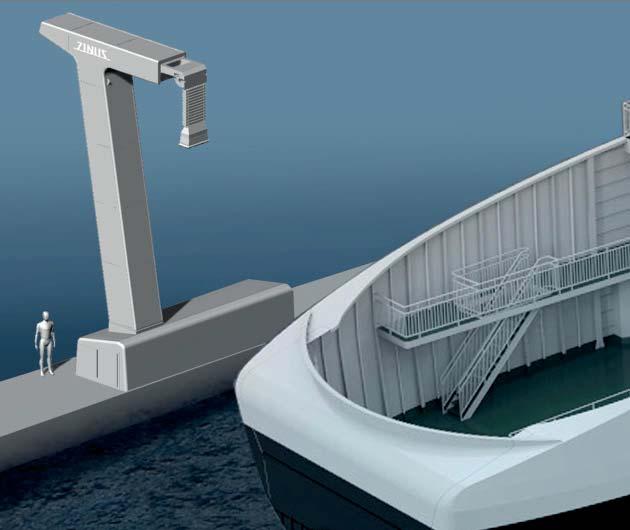
mooring function for the ferries, which contributes to a significant reduction in energy consumption.
METS undertaking as main contractor also includes an extensive design and build part that includes the construction of buildings for onshore charging equipment, piling and construction of platforms in the water, as well as the conversion of existing ferries to enable connection to the powerful 3 MW charging.
Hydrofoil boat builder secures €25 million
Swedish electric hydrofoil vessel maker
Candela has announced it has secured the largest funding round in the company’s history.
The €24.5 million has come from boat builder Groupe Beneteau, which has a global presence of 15 factories, nine brands and a turnover of €1.46 billion a year, it says.
Candela says the money will go towards expanding production of its P-12 ferry, the pre-production of which it unveiled last November.
The ferry’s maiden voyage is scheduled for July, when it will transport people in the Swedish capital in half the time of a conventional ferry due to the minimal wake
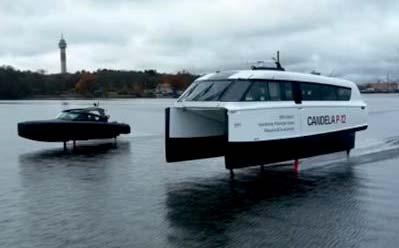
enabled by the foiling technology, the company says.
Quoting Business Insights, Candela says the market for electric vessels could be worth US$14 billion in 2030, ‘driven by strong national incentives to decarbonise shipping’.
8 Zinus will deliver a ZPP800, fully autonomous charging tower for the Gullmarsleden ferry route in Lysekil, Sweden
“We’ve spent years developing the technological maturity, and now we’re fit for scaling to commercial vessels,” said founder and CEO Gustav Hasselskog. “As in any industry, the fastest-scaling company will dominate the market.
“The P-12 starts a new chapter in waterborne transport. Its efficient hydrofoil tech cuts lifetime emissions by 97.5% compared to diesel vessels, while simultaneously allowing operators to halve costs.
“Since it generates minimal wake, the P-12 has been granted exemptions from speed limits, as for example on its maiden route in Stockholm.”
SHORTSEA & FERRY
For the latest news and analysis go to www.maritimejournal.com APRIL/MAY 2024 | 59
Source: Zinus
CONTAINER LOSSES AT SEA: REPORT
Norwegian specialist marine insurance group Gard has published a study examining container stack losses when ships in this rapidly growing sector encounter bad weather at sea.
Containerised trade is increasing globally with Gard’s P&I portfolio increasing by as much as 16% over the past five years. The growing fleet of ultra-large container ships have capacities of more than 23,000teu, which means that when they encounter problems while on passage the financial implications are magnified accordingly.
The International Salvage Union has highlighted the difficulties its members potentially face responding to container vessel casualties as they increase in both size and number, with fire among the cargo being one area of concern. Another phenomenon is when deck-loaded container stacks collapse during bad weather, leaving containers scattered among the remaining boxes and others lost overboard completely.
Gard’s study shows the impact of progressively increasing wave height and the quantified risk of high waves along with variance in weather exposure among different operators.
The comprehensive study is aiming to set the stage for a deeper dialogue within the industry about mitigating the impact of adverse weather on container safety. Other activities examining the subject include the Maritime Research Institute of the Netherlands (MARIN) Top Tier project and IMO’s work to make the reporting of lost containers mandatory.
Analysis
Gard studied container stack losses it had been involved in between 2016 and 2021. It combined its claims data with geographical and meteorological data, including wave height and wind strength, on an hourly basis. Data were collected for the incident date as well as the six days leading up to the day of the incident, allowing analysis of how the weather progressively worsened over a period of time.
It could be assumed that the larger the ship the safer the cargo, but “valuable insights” on claims relative to vessel size indicate that the six-year average claims frequency for stack collapses on feeder vessels (less than 3,000teu) is 1% compared to 9% for ultra-large container vessels (exceeding 15,000teu) where stack heights can exceed 10 high on deck.
The impact of progressively increasing wave height is an important aspect of the findings, with average wave heights of 2.5m on day one increasing to 6.5m on day seven, corresponding to gale force winds.
Many of the ships involved were exposed to these conditions for a much longer duration with the “incident zone” for the majority being a 24-hour window on the last day, indicating that the vessels experienced average wave heights that progressively increased by two and a half times during the seven-day period.
One observation was that while vessels involved in incidents spent only 5% of their time in wave heights exceeding 4m during the incident year, half of all incidents occurred during such conditions.
Reflections
It was found that some owners or operators are more exposed to risk of adverse weather than others, likely related
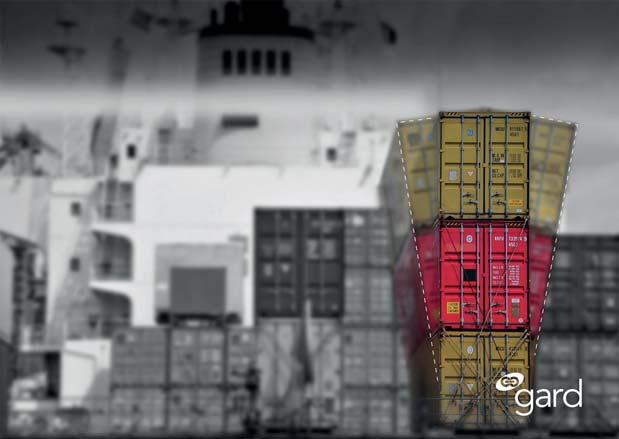
to differences in risk tolerance and internally defined weather thresholds. The study ends with reflections and key questions surrounding duration of exposure and weather thresholds.
The thorny question of weather threshold priorities is included in the reflections suggesting “conflicting priorities” between a commercial operator and a vessel’s master regarding voyage routing, noting that routing advice could vary based on whether the principle is a charterer or owner.
Gard’s study shows the impact of progressively increasing wave height and the quantified risk of high waves along with variance in weather exposure among different operators
The slackening of lashings in heavy weather is considered. Progressive deterioration of lashing efficacy over time is mentioned, noting that while lashing checks are in theory routine, safety concerns result as the weather deteriorates with even greater risk for larger vessels that have more lashings to be checked.
The securing of cargo within containers with movement resultant from adverse weather is examined, whereby cargo breaking loose and shifting within the container adds additional forces on the container stack, remembering the ship’s crew lacks visibility and control over this aspect.
The final reflection asks the question: should safe weather routeing and the avoidance of adverse weather be included as components of internal key performance indicators with modern digital tools making it much easier to assess a vessel’s or fleet’s exposure to weather over a specific time,frame?
60 | APRIL/MAY 2024For the latest news and analysis go to www.maritimejournal.com
8 Gard’s study looks at container stack collapses
INSURANCE, LEGAL & FINANCE
Source: Gard

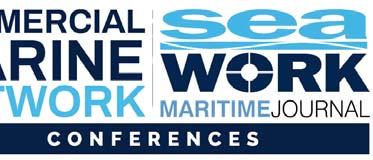
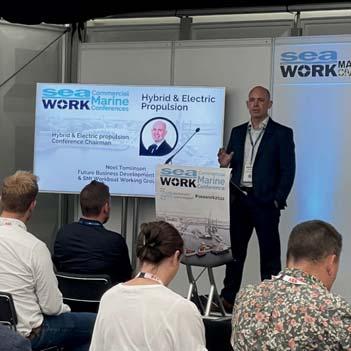
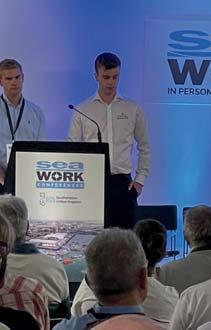

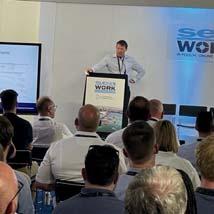
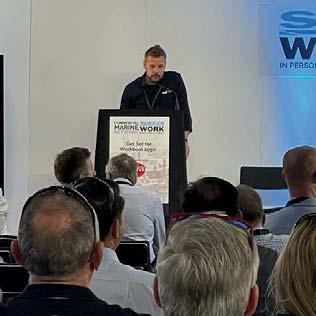
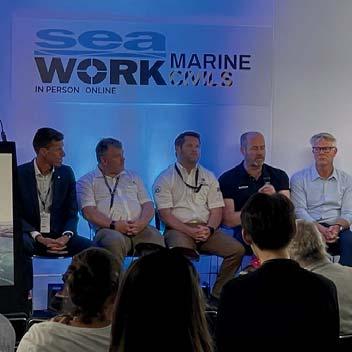
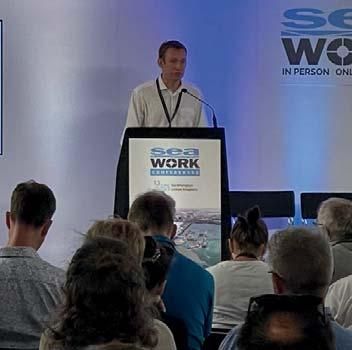






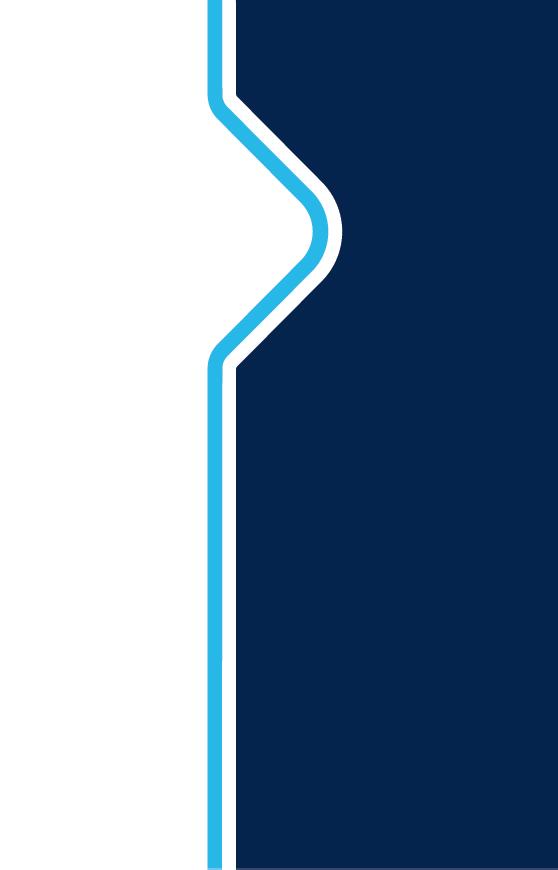
OIL AND CHEMICAL SPILLS UP IN 2023: REPORT
There were more crude and refined oil spills in the oceans last year along with more chemical leaks, the International Salvage Union’s annual report shows.
The reported numbers are also likely to be lower than reality, with a number of services not recording bunker or cargo quantity and type.
As the International Salvage Union releases its annual pollution prevention survey, ISU president John Witte says while a lot of focus has come to be placed on emissions, it’s important not to lose sight of the importance of simply protecting the environment.
The survey was first carried out by the ISU in 1994, and this latest report stresses that in each year there can be significant variations of the quantities of pollutants in each category, partly due to increasing vessel size, for example, one major container ship case could significantly affect that category.
Just one year’s statistics may therefore be considered a relative ‘snapshot’ in time and the trends graphic accompanying the report (back to 2019) illustrates the longer term variations.
When considering the period 1994 to end2023 where ISU members provided services to vessels carrying 43,397,100 tonnes of potential pollutants (an average of 1.5 million tonnes per year), the importance to the environment of an adequately funded professional marine salvage industry is clear.
Breaking down the statistics
ISU members provided 173 services to vessels carrying 1.9 million tonnes of potentially polluting cargo and fuel during 2023 compared to 186 services and just under 2.5 million tonnes in 2022. ISU recognises that not all these potential pollutants were at immediate risk of going into the sea and that some cases will have had limited danger. But others will have carried a real risk of causing substantial environmental damage and that in an era of “zero tolerance” of any pollution, even the smaller cases represent a significant concern.

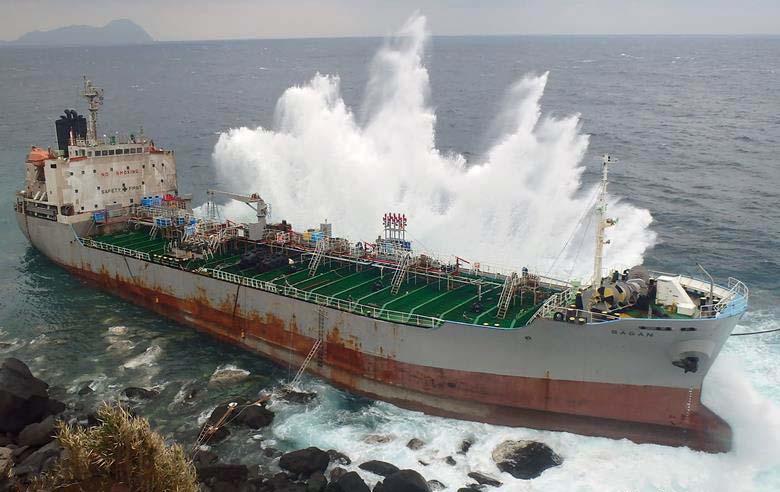
The bulk, non-polluting category increased to 446,166 tonnes in 2023 from 113,926 tonnes in 2022 and while outside the pollution prevention theme of the survey carry notable financial implications for owners and insurers.
Breaking down the individual services, the 173 carried out in 2023 included 43 wreck removal/marine services contracts; 19 Lloyd’s Open Forms; 24 towage contracts; 10 Japanese forms; 5 Lump Sum; 5 Day Rate contracts; 37 other contracts (including commercial terms, common law salvage and OPA 90 responses) and 29 Turkish Forms.
Conclusions
The survey results are presented in tabular form comparing 2023 with the previous year and looking at bulk liquids, the figure of 187,229 tonnes of crude oil was an increase from 140,900 tonnes in 2022.
Refined oil products also saw an increase, up from 144,858 tonnes in 2022 to 255,020 tonnes in 2023; similarly, chemicals were up from 79,319 tonnes to 135,847 tonnes in 2023, while bunker fuel decreased to 81,053 tonnes in 2023 from 108,112 tonnes the previous year.
An increased number of the services in the survey did not record the quantity of bunkers nor the cargo type, meaning the reported numbers are likely to represent a more modest total than the reality.
Decreases were recorded in the bulk (polluting/ hazardous) and container categories with bulk down to 769,325 tonnes from 1,235,741 in 2022. Container figures were 403,725 tonnes (26,915 TEU at nominal 15t/TEU) compared with 747,270 tonnes (49,818 TEU) in 2022 remembering that a major casualty can affect the statistics in this category.
ISU says that the fewer services in 2023 is in line with the downward trend of its general industry statistics. And while container numbers are lower, after bulk cargo they represent the most significant category, with ISU members providing services to vessels carrying some 400,000 tonnes of cargo compared to 187,000 tonnes of crude oil.
The wide variety of both vessel type and cargo presents an equally wide set of challenges to salvors and the areas of concern are highlighted in the report. Containers carrying a great variety of harmful and dangerous goods including plastic pellets (nurdles) ‘represent one of the biggest threats to the marine environment’.
“Containers continue to be difficult to deal with – offloading, storing and perhaps backloading,” said John Witte. “But the traditional threat from oils remains and there were also several cases of car carriers and ro-ro fires and the carriage of electric vehicles is an increasing concern. Salvors often do not know if there are EVs or batteries on board or the quantity.
“Sustaining a viable professional salvage industry ready to respond to all kinds of incidents around the world is vital and that is recognised by insurers and owners but it needs to be properly funded.”
8 Groundings are just one of many types of incidents marine salvors have to respond to.
Inset: Reducing financial loss is second to protecting the environment for the salvage industry.
62 | APRIL/MAY 2024 For the latest news and analysis go to www.maritimejournal.com
CONTROL
POLLUTION
Source: ISU
ITALY STARTS ENTIRE COASTAL MAPPING PROJECT
Italy is mapping its entire coastline to investigate coastal habitats and monitor wave motions and sea currents along with weather parameters.
The PNRR MER Project (Marine Ecosystem Restoration) project entails the use of a plethora of equipment including airborne and satellite sensors on a 10,200km2 area.
Multi-beam technology will be used on a 4,000km2 area and an Autonomous Underwater Vehicle (AUV) will cover 4,000km of Italy’s 7,600km coastline.
Thirteen coastal HF radar antennae will be installed and along with a further seven existing ones being maintained will cover almost 9,800 square kilometres.
A national network of offshore buoys will monitor wave motion, sea currents and weather parameters, and six monitoring stations at depths of up to 1,000 metres and a further four up to 3,000 metres deep will be installed.
About 90 seamounts will be mapped for deep habitats, located in the Ligurian Sea, the Upper and Lower Tyrrhenian Sea, the Sardinian Sea, the Ionian Sea and the Southern Adriatic Sera for an estimated surface area of about 14,000km2
The aim of the MER is to restore and protect the seabed and marine habitats in Italian waters by gathering oceanographic data and deploying high-resolution acoustic instruments. It is the largest project under the Italian National Recovery
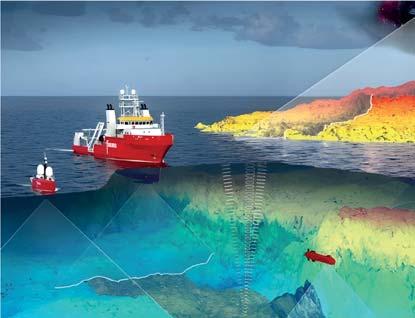


and Resilience Plan, which will make used of subsea technology firm Fugro’s AUV.
“About 90 seamounts will be mapped for deep habitats, located in the Ligurian Sea, the Upper and Lower Tyrrhenian Sea, the Sardinian Sea, the Ionian Sea and the Southern Adriatic Sera for an estimated surface area of about 14,000km2,” says the Istituto Superiore per la Protezione e la Ricerca Ambientale (ISPRA), which is running the project.
“ISPRA data show that 86.5% of waste at sea is linked to fishing activities and 94% of these are abandoned nets. The MER project involves the identification and restoration of at least 15 areas where there are abandoned fishing and/or aquaculture gear, preserving the local fauna and flora.”
Partnership pushes aluminium anodes over zinc
The UK’s Clean Harbours Partnership has advocated vessel builders use aluminium anodes on their hulls instead of the traditionally used zinc.
The partnership is urging boat owners to replace their zinc anodes with lighter and more effective aluminium both for performance improvement and because it is kinder to the ocean, they say.
The partnership says it has been looking at the release of metals, in particular copper and zinc, into the ocean and it says the Institute of Marine Sciences at Portsmouth University calculated that in 2020, 900 tonnes of zinc were released into coastal and inland waters, probably by recreational vessels.
“The problem is metals do not degrade,” said James Collings Wells, at the
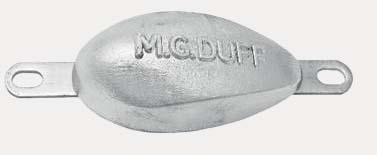
8 Aluminium anode - as effective as zinc but less damaging to the environment
partnership. “They accumulate in the ocean and in sediment on the seabed, where organisms at all levels in the food chain ingest them. Zinc anodes also contain cadmium, which is harmful to marine life, whereas aluminium does not.
“While aluminium anodes are being used by some of the UK’s major boat
manufacturers, evidently they are not being used widely enough. We are urging boat builders and boaters across the UK to switch.”
Because aluminium has a higher electrochemical capacity, the same sized anode will last longer than a zinc equivalent. Aluminium is also a lighter metal then zinc and has a higher driving voltage than zinc, which makes it more effective in brackish water.
If an anode is eroding more quickly than expected, it’s worth looking for an electrical problem causing stray current, set callings wells.
Addressing this would reduce the amount of metal shed by the anodes into the environment. Prolonged connection to shore power without a galvanic isolator can have the same effect.
OCEAN SCIENCES For the latest news and analysis go to www.maritimejournal.com APRIL/MAY 2024 | 63
8 MER Project
‘‘

Electro optical metrology company selling alignment telescopes and precision electronics levels level, squareness and parallelism (shipbuilding and repair - propeller shaft and engine alignment).
Spectrum Metrology
Unit 8, Ireton Avenue, Leicester, Leicestershire, LE4 9EU
Tel: +44 1162 766262
sales@spectrum-metrology.co.uk www.spectrum-metrology.co.uk

Universally acknowledged as market leader for the supply of raw materials to the marine industry, choice for aluminium, stainless steel, copper alloys, plastics, composites and steel products.
Righton Blackburns Building 38, Second Avenue, The Pensnett Estate, Kingswinford, West Midlands, DY6 7UE
Tel: +44 1384 276400
sales@rblimited.co.uk www.rightonblackburns.co.uk
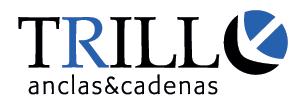
Chain Cables, Shackles, Swivels, Mooring Gear and Mooring Ropes. With more than 100 years of experience, Trillo Anclas y Cadenas is a leading company in the supply of anchoring for ships,
Trillo Anclas y Cadenas SLU
Parque Empresarial de Coiros, Parcela 10, 15316 Coiros (La Coruna)
Tel: +34 981 173478
Fax: +34 981 298705 info@rtrillo.com www.rtrillo.com

Providing marine and logistics services for over 120 years. Pontoons, Tugs, Workboats, Fast Launches, Multi-purpose Barges with cranes. Road-transportable Multicats, full operational base facilities, craneage and open storage.
Williams Shipping
Manor House Avenue, Milbrook, Southampton, Hampshire, SO15 0LF
Tel: +44 2380 529555
marine@williams-shipping.co.uk www.williams-shipping.co.uk

Solarglide are a UK based manufacturer and supplier of exceptional quality and innovative marine tested solar screens, curtains, blackout blinds, dimout blinds, wipers, and adhesive
Solarglide Ltd
Unit 8 The Stottie Shed, Bakers Yard, Christon Road, Gosforth, Newcastle upon Tyne,
Tel: +44 1915 970543
Fax: +44 1670 898614 theteam@solarglide.com www.solarglide.com

CARLIER Chaines SAS Is producing chain for 90 years. We have many years of experience in manufacturing all kinds of chains, anchors
Our production facilities are based in North of FRANCE on 10 000m2, where we produce sizes from 10mm to 120 mm diameter.
Carlier Chaines SA
37 Rue Roger Salengro, 59733 Saint-Amand cedex
Tel: +33 3 27 48 12 00
Fax: +33 3 27 48 95 27 info@carlier-chain.com www.carlier-chain.com/

HS Marine is a leading ship and with the world’s widest range of models ranging from 5 to 1.000 tm capacity. All crane models are built and assembled to provide our customers top quality.
HS Marine
Via G. Marconi, 33 Sabbioneta, Italy, MN 46018
DECK EQUIPMENT

Hirers and Suppliers of 2/4/6/ 8-point mooring sets available, single, double and triple drum winches available. Fairleads, deck sheaves, anchors, diesel or electric driven hydraulic power units. Air tugger winches, wire ropes, slings and shackles.
Old Station Yard, Station Road, Biggar, Lanarkshire, ML12 6DQ
Tel: +44 1899 221577
Mobile: +44 7836 545117
Fax: +44 1899 221515 info@winchhire.com www.winchhire.co.uk

DMT Marine Equipment is a world renowned deck equipment supplier. We design, produce, and test our winches in-house with high precision and attention to detail, and an understanding that the equipment we deliver must be fully reliable, highly performance and operative under harsh sea conditions.
DMT Marine Equipment
Costi, Vanatori, Galatai, 807325, Romania
Tel: +40 7267 07514 marketing@dmt-winches.com www.dmt-winches.com

IBERCISA is a technological company. Founded in 1969, has been dedicated to the design and manufacture, under its own technology, a widest range of deck machinery for all kind of merchant, research and dredging).
IBERCISA DECK MACHINERY Molinos 25, (Pontevedra), 36213-Vigo
Tel: +34 986 213 900
Fax: +34 986 202 779 ibercisa@ibercisa.es www.ibercisa.es

SD Products Ltd is a third generation family owned business with over 40 years experience fasteners, across all industries. The corner stones of our business are Quality Products, Competitive
SD Product Ltd
DESIGN

Our business is built around two core competencies: gathering accurate data and producing accurate solutions. We focus on the engineering and design of construction systems for complex, large structures, providing accurate parts for CNC cutting and comprehensive assembly instructions.
Llwyngwyn, Forge, Machynlleth, SY20 8RR
Tel: +44 1654 702001 info@djaweb.co.uk www.djaweb.co.u

proven industry leaders in the Naval Architecture and Marine Survey sectors, having worked for more than 25 years with owners, operators and shipyards globally.
Aberdeenshire, AB44 1RE
Tel: +44 1261 833825
Fax: +44 1261 833835

Southerly Designs is a leading designer of high speed aluminium working vessels. Specialists in high and medium speed monohull vessels. Patrol and Military vessels. Utility vessels and work boats.
and crew boats. Over 600 vessels in service.
Southerly Designs
2 Carrol St, Port Denison, 6525
Tel: +61 8 9927 2750 info@southerly.com.au southerly.com.au
DIESEL ENGINES & SPARES

Since 1987 Beta Marine has developed an enviable reputation for providing quiet and smoothrunning marine diesel engines and generating sets to suit a wide variety of applications. They are renowned for durability, longevity, reliability and deliver an excellent return on investment.
Beta Marine Ltd
www.maritimejournal.com
Tel: +39 0375 254 819 info@hsmarine.net www.hsmarine.net
Unit 1 Fulwood Road South Fulwood Industrial Estate NG17 2JZ United Kingdom
Tel: +44 1162 766262
www.sdproducts.co.uk
Davy Way, Waterwells, Quedgeley, Gloucester, Gloucestershire, GL8 8LT
Tel: +44 1453 723492
Fax: +44 1453 883742
sales@betamarine.co.uk
www.betamarine.co.uk
INDUSTRY DATABASE 64 | APRIL/MAY 2024 For the latest news and analysis go to www.maritimejournal.com
ALIGNMENT & TEST EQUIPMENT ALUMINIUM STOCKHOLDERS ANCHORS BARGES BLINDS & CURTAINS CHAINS CRANES
To advertise in the Maritime Journal Directory contact sales@maritimejournal .com or phone
+44 1329 825335

Volspec Ltd the UK’s premier Volvo Penta Centre with the UK’s largest stock of genuine spare parts, engines and accessories for the marine, commercial and industrial markets. Competent factory trained workshop based or mobile engineers ready to assist whenever required to both UK and international customers.
Volspec Ltd
Woodrolfe Road, Tollesbury, Nr Maldon, Essex, CM9 8SE
Tel: +44 1621 869756
Fax: +44 1621 868859
enquiries@volspec.co.uk www.volspec.co.uk
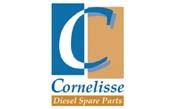
Replacement parts for Caterpillar, Cummins, Detroit Diesel, John Deere, Deutz, FP Diesel. Buying and selling engines, pumps, separators, fenders, winches, cranes, governors, tools, gen-sets second hand. Separators. Distributors for J.A.McDermott Corp.
W.K.M. Cornelisse Trading B.V.
P.O. Box 146, 4200 AC Gorinchem, NL
Tel: +31 345 517122
Email: willem@wkmcornelisse.com
https://wkmcornelisse.com/

Norway’s leading supplier of lamps and portable lighting for professional use, transport boxes, portable fans, inspection equipment for visual condition control, man-overboard boarding systems, etc.
Dacon AS
Durudveien 35, Haslum, Norway1344
Tel: +47 21 06 35 10 rescue@dacon.no www.dacon.no/

Established in 1963 we are one of the leading diving contractors in the UK with divers and management experienced in all aspects of underwater work to a maximum a full complement of diving equipment and a various range of marine craft.
Northern Divers (Eng) Ltd
Oslo Road, Sutton Fields Industrial Estate, Hull, Yorkshire, HU7 0YN
Tel: +44 1482 227276
Fax: +44 1482 215712
contact@northerndivers.co.uk www.northerndivers.co.uk

For over 100 years, Baudouin has designed and manufactured the highest quality diesel and gas engines for marine and power generation applications spanning 18 – 4125 kVA. Our Network supports our customers in over commissioning, service and genuine spare parts.
Société Internationale des Moteurs Baudouin
Technoparc du Brégadan 13260
Cassis, France
Tel: +33750150854
https://baudouin.com/

With over 30 years of experience
dealer of Bosch Diesel Center | John Deere | Yanmar | Balmar | Zenoro | Delphi | Caterpillar | MTU (Service dealer).
Motorenrevisie Spaarnestad
Nijverheidsweg 27G, Haarlem, 2031 CN
Tel:
+31 23 531 03 17
revisie@spaarnestad.nl
www.spaarnestad.nl
North East based inshore diving Company established in 1993, working all over the UK. Based in South Shields on the River Tyne and with good access to the River Tyne, River Tees, Port of Sunderland and the Port of Blyth. Wapping Street, South Shields
Tel: 0191 4552793 info@ sealaneinshore.co.uk
www.sealaneinshore.co.uk

Coastal towing, tug with 12 tonne BP, 160 cubic meters Hopper Barge, 16x8m Crane barge/ dredger - Barge Norse 2, silt disposal, quayside maintenance deliveries. Based in the Solent area, with 25 years’ experience in the marine industry.
ABP Norse Marine (UK)
Cleverley Cottage, Bishops Waltham, Southampton,
Tel: +44 1489 890031
Fax: +44 1489 890031 jan@bpnorsemarine.co.uk www.bpnorsemarine.co.uk
DREDGING

Specialising in capital and maintenance dredging, land reclamation and coast protection. As Scandinavia’s largest dredging contractor, we thrive on low cost
Rohde Nielsen A/S
Nyhavn 20, Copenhagen K., DK-1051
Tel: +45 33 91 25 07
Fax: +45 33 91 25 14 mail@rohde-nielsen.dk www.rohde-nielsen.com

and all electrical and electronic equipment, communication and navigation systems, motor servicing, windlasses, winches, switchboard and generator specialists, circuit breaker (primary thermal imaging analysis. Neyland Marine Services Ltd Unit 52, Honeyborough Business Park, Neyland, Pembrokeshire, SA73 1SE
Tel: +44 1646 600358
Fax: +44 1646 600323 neylandmarine@aol.com www.neylandmarine.co.uk
ELECTRICAL PROPULSION SYSTEMS
ENGINESOUTBOARD

For over 25 years, MJR has delivered turnkey marine power, electrical and automation projects to the commercial, energy and renewable marine sectors providing consultancy, engineering, construction, installation and commissioning services.
Industrial Estate, Thornaby, Stockton-on-Tees, TS17 9PP
Tel: +44 1642 762151
sales@mjrcontrols.com www.mjrcontrols.com
EXHAUST SYSTEMS
Vibration Control - Environmental Protection specialists, Halyard, designs and manufactures high quality, technically advanced equipment. Halyard also distribute: Seatorque shaft systems, Siderise
86 Cobham Road, Ferndown Industrial Estate, Wimborne, Dorset, UK, BH21 7PQ
Tel: +44 1722 710922
technical@halyard.eu.com
www.halyard.eu.com
FENDERS/ FENDERING

Fender Innovations is specialized in Tailor designed and produced
Shared properties of the systems are a minimal weight and long lasting durability. Poly Marine Fender Systems for Bollard and Shore tension protection.
Fender Innovations and Poly Marine Fender Systems
Westrak 240, 1771 SV Wieringerwerf
Tel: +31 22 37 64 170
info@fenderinnovations.nl
www.fenderinnovations.nl
FINANCE

provider for UK based SME companies. Marine mortgages available for workboats, WFSV’s, tugs, barges, dredgers, ferries, Thames river craft, hire commercial vessels.
Shawbrook Bank
Prospero, 73 London Road, Redhill, Surrey, RH1 1LQ
Tel: +44 7799 134682 / +44 7342 085974
Jason.crump@shawbrook.co.uk
www.shawbrook.co.uk/marine
Discover a world of power and performance on the water with Suzuki Marine. Our industryleading outboard motors are built for reliability, durability,
Suzuki GB Plc
Steinbeck Crescent, Snelshall West, Buckinghamshire, MK4 4AE
United Kingdom
Tel: +44 1243 388 940
https://marine.suzuki.co.uk/
For the latest news and analysis go to www.maritimejournal.com APRIL/MAY 2024 | 65 INDUSTRY DATABASE
& SPARES
POWER
PROPULSION
DIESEL ENGINES
DIESEL
&
DISTRESS SIGNALS & PYROTECHNICS DIVING & MARINE CONTRACTORS CHAINS DREDGING
To advertise in the Maritime Journal Directory contact sales@maritimejournal .com or phone +44 1329 825335 www.maritimejournal.com
ELECTRICAL INSTALLATIONS & REPAIRS

Marine Fire Safety; who are well known and trusted by many for supplying, installing and within the commercial marine sector, have teamed up with Lalizas UK to extend their services and support to customers.
Marine Fire Safety Limited
Unit D1-D4, Bridge Business Centre, Brickhouse Lane, Godstone, Surrey, RH9 8JW
Tel: +44 1342 844379
Fax: +44 1342 843172

Suppliers and Installers of Thermal and Fire Insulation on Aluminium involvement in marine projects for protection to many prestigeous vessels.
Global Insulation (European) Ltd
Unit 84, Station Road, Hayling Island, Hampshire, PO11 0EL
Tel: +44 2392 462113 globalinsulate@btconnect.com www.globalinsulation.co.uk

UK distributors for generators from 5 to 500 kw prime power. Kohler’s patented P-Gen load share system facilitates smaller generators increasing redundancy and reducing fuel consumption.
Atlantis Marine Power Limited
Western Wood Way, Langage Science Park, Plympton, Plymouth, Devon, PL7 5BG
Tel: +44 1752 208810 sales@atlantismarine.com www.atlantismarine.co.uk/

For more information visit: seawork.com contact: +44 1329 825335 or email: info@seawork.com
HYDRAULIC COMPONENTS
At Brimmond Group we specialise in mechanical, hydraulic or electrical solutions. Our highly manufacture, service and repair a vast range of equipment to meet any client’s needs.
Brimmond Group
Tofthill Avenue, Midmill Business Park, Kintore, Aberdeenshire, AB51 0QP
Tel: +44 1467 633 805 www.brimmond-group.com

Hypro Marine, leading designer and manufacturer of power-assisted steering systems. Specialists in and manufacturing service for Integrated Hydraulic Control of single or multifunction hydraulic operations for series-produced power craft.
Hypro Marine
Mount Pleasant Lane, Lymington, Hampshire, SO41 8LS
Tel: +44 1590 681445 info@hypromarine.co.uk www.hypromarine.com
HYDRODYNAMICS CONSULTANCY INSURANCE SERVICES

Cloud Towing Tank is a hydrodynamics consultancy company specialized in CFD in the maritime industry. We provide our clients with numerical hydrodynamic simulations of ship resistance, self-propulsion, manoeuvring, seakeeping, propeller-hull interaction, and many other.
Cloud Towing Tank Kamengradska ul. 3, 10000, Zagreb, Croatia Tel: +47 46 90 5000 www.cloudtowingtank.com
KNIGHTH D
Leading specialist Marine Brokers to the maritime industry, insurance policies for commercial passenger craft, tugs, workboats and marine service operators throughout the UK and Europe.
Knighthood Corporate Assurance Services Ltd
Knighthood House, Imberhorne Lane, East Grinstead, Sussex, RH19 1LB
Tel: +44 1342 327111
Fax: +44 1342 319575
enquiries@knighthoodcorporate.com
www.knighthoodcorporate.com
LIFE SAVING EQUIPMENT

Servicing and hire of life rafts, boats and lifejackets. Sales of a complete range of marine safety
SOLAS and MED.
Adec Marine Limited
4 Masons Avenue, Croydon,
Tel: +44 2086 869717
Fax: +44 2086 809912
sales@adecmarine.co.uk
www.adecmarine.co.uk
LIFE SAVING EQUIPMENT
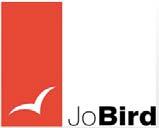
Jo Bird and company have been making safety equipment cabinets from composite materials for over 30 years.
Factory Lane, Basonbridge, Highbridge, Somerset, TA9 4RN
Tel: +44 1278 785546
Fax: +44 1278 780541 info@jobird.co.uk www.jobird.co.uk
MARINE CI VILS

Hubel Marine is a Netherlands
full range of advice: Registration of Vessels, Corporation Services, Crew Endorsements and
Hubel Marine B.V. P.O.Box 3219, Rotterdam, 3033 AE
Tel: +31 10 458 7338
Fax: +31 10 458 7662 info@hubelmarine.com www.hubelmarine.com
MARINE CONSTRUCTION


TMS Ltd have many years of expertise in Marine and Civil Engineering. We operate throughout UK and Europe, where we utilise our unrivalled abilities and professionalism to successfully complete marine and civil engineering projects.
TMS (Teignmouth Maritime Services Ltd)
Unit 22B Dawlish Business Park, Exeter Road, Dawlish,
Tel: +44 1626 866066
Fax: +44 1626 864288 info@tmsmaritime.co.uk www.tmsmaritime.co.uk
MODULAR PONTOON SYSTEMS
MOORING & BERTHING EQUIPMENT
NAVIGATIONAL AIDS

modular (spud) pontoons with a height of 4, 6 and 8 ft, modular multipontoons. See Baars Charter at Dredging Equipment for barges.
Baars Charter
Rivierdijk 276, 3360 AB, Sliedrecht, 3361 AV
Tel: +31 184 415566
Fax: +31 184 411227 rental@baarsbv.com www.baarsbv.com/en/
connections as machinery part.PPE industrial safety – connectors. Over 200 items available, made in France.
12 rue des Buchillons, B.P.205, Annemasse, F-74105
Tel: +33 450 95 58 23
Fax: +33 450 92 22 06 d.durand@peguet.fr www.peguet.fr

We supply, install, maintain, and refurbish aids to navigation of any type, manufacturer, and age. We hold stock of lanterns, buoys, mooring, sinkers, and monitoring equipment, to ensure the prompt response to any outage, anywhere in the UK or Ireland.
Navmoor Ltd
The Innovation Centre, Ebbw Vale, Tel: +44 2922 638222 info@navmoor.com navmoor.com/
INDUSTRY DATABASE 66 | APRIL/MAY 2024 For the latest news and analysis go to www.maritimejournal.com
FIRE PROTECTION GENERATORS, GEN SETS
AUXILIARIES
FIRE FIGHTING EQUIPMENT
&
To advertise in the Maritime Journal Directory contact sales@maritimejournal .com or phone +44 1329 825335 www.maritimejournal.com
NAVIGATIONAL AIDS

Robosys Automation is a leading developer of AI powered Autonomous Marine Systems including Remote Piloting and Advanced Autonomous Navigation, Remote and Autonomous Platform Control and Remote and Autonomous Payload Control.
Robosys Automation Ltd
W1/ 38, Marine Robotics Innovation Centre (MRIC), European Way, Southampton, SO14 3ZH
Tel: +44 7500 276555 nigel.lee@robosysautomation.com robosysautomation.com/
LED Navigation Lights for ships of all types and sizes. Lopolight proudly presents a complete vessels of all sizes. The system is
or dual power supplies, in 24VDC, 115VAC, 230VAC versions.
Lopolight UK
Tel: +44 131 285 3207
Email: info@lopolight.com www.lopolight.com
NAVAL ARCHITECTS & MARINE ENGINEERS
I marine design and digital in Sydney, Australia, Lafayette, USA and Eastleigh, UK. The company has a 40-year history with over 700 vessels in service to its designs.
Incat Crowther P O Box 179, Terrey Hills, HQ Sydney, NSW 2084
Tel: +61 2 9450 0447
Fax: +61 2 8006 5783 info@incatcrowther.com www.incatcrowther.com

Delivering navigation safety since 1988. Todd Navigation is an International ADMIRALTY Chart Distributor, appointed by the United Kingdom Hydrographic standard navigation charts are corrected to the latest Notices to Mariners via the Print-on-Demand (POD) service.
Todd Navigation Navigation House, 85 High Street, Bangor, BT20 5BD United Kingdom
Tel: +44 28 9146 6640 Sales@toddnav.com www.toddnav.com/
OCEANOGRAPHIC/HYDROGRAPHIC SURVEY
OIL POLLUTION CONTROL

Our services include; vessel charter, windfarm maintenance solution, submarine cable installation, repair and maintenance, marine engineering, marine salvage, pollution response, environmental consultancy, oil and gas terminal operations, aids to navigation services.
Briggs Marine Contractors Ltd
Seaforth House, Seaforth Place,
Tel: +44 1592 872939
Fax: +44 1592 873779 enquiries@briggsmarine.co.uk www.briggsmarine.com



DESMI develop, manufacture, sell and service pumps and pumping solutions including a wide range of environmental equipment for oil spill, seaweed and clean waterways.
DESMI Pumping Technology A/S Tagholm 1, 9400 Nørresundby, Denmark
Tel: +45 9632 8111
Fax: +45 9817 5499 desmi@desmi.com www.desmi.com
OIL POLLUTION CONTROL

LAMOR is the world leader in the manufacture of products and services for the Oil Spill Response Industry. We design and produce Booms, Skimmers, Pumps, Dispersant systems, Vessels and we also design recovery systems to be built into new and older vessels. MCA/IMO Training, Design and Consultancy on a worldwide basis.
Lamor Corporation UK Ltd 3 Medina Court, Arctic Road,
Tel: +44 1983 280185
Fax: +44 1983 280056 uk.info@lamor.com www.lamor.com

One of the uk’s leading spill solutions specialists. We stock and supply ABSORBENTS, SPILLKITS, OIL SKIMMERS, OIL BOOMS and PORTBINS and provide a Total waste management service that includes spill clean up. We aim to make the environment a better place.
308 Woodside Way Springvale ind. Est., Cwmbran NP44 5BR, United Kingdom Tel: +44077860717461 sales@zwannyltd.com www.zwannyltd.com/
PILOT BOATS PR, MEDIA & ADVERTISING AGENCIES
25 years’ experience specializing in Commercial Marine. Media buying, strategic PR campaign planning and implementation, press releases compilation and distribution, newsletters, company brochures and clients’ magazines and social media management.
Sue Stevens Media Ltd
7 Foxhills, Ashurst, SO40 7ED Tel: +44 2380 292992 suestevens@suestevensmedia.co.uk www.suestevensmedia.co.uk

Builders of the Interceptor Pilot Boat range, 11.5m, 13m, 14.5m
strength and exceptional seakeeping. Also builders of GRP
Hydrographic survey vessels, Work boats and Passenger Vessels.
SAFEHAVEN MARINE
Ashgrove, Cobh, Cork Tel: +353 86 8054582 info@safehavenmarine.com www.safehavenmarine.com
POLUTION CONTROL

Miko Marine AS was founded in 1996 on the idea of using a magnetic patch for stopping vessel -or to stop oil leaking from the vessel into the sea. Most widely known is its range of magnetic plasters which can be used to seal hull damage and enable a vessel to be moved safely to a yard for permanent repair.
Miko Marine AS
Vollsveien 4, Lysake 1336, Norway
Tel: +31 10 458 7338
https://mikomarine.com
PROCESS PIPE CLEANING

Nivalis are the world leaders in Ice Pigging, a technology that uses slurry ice to clean process pipe systems. We are the original engineering team that developed Ice Pigging from Bristol University, and now have Ice Pigging applications in UK, Europe, USA, Canada, Japan, etc.
Nivalis
Avonmouth Industrial Estate, Avonmouth, BS11 8AP, UK
Tel: 44 (0) 117 462 2090
www.nivalis-tech.com
LIFE SAVING EQUIPMENT PONTOONS

Stone Marine Propulsion design and manufacture a complete range of high quality propulsion equipment for commercial and naval vessels of all types and sizes. Our latest propeller consumption and emissions.
Stone Marine Propulsion Ltd
Dock Road, Birkenhead, Merseyside, CH411DT
Tel: +44 1516 522372
Fax: +44 1516 522377
sales@smpropulsion.com
PROPULSION SYSTEMS

www.smpropulsion.com/ of modular pontoons specialist for many years. The unique modular system (nut-bolt connection) guarantees absorption of high dynamic and static forces. We have a large number of units available for rental and sale, new and young used.
Rivierdijk 276, 3361 AV Netherlands
Tel: +31-187-491995
www.baarsbv.com

As a global leader in premium couplings, drive lines and power transmissions, CENTA Nederland B.V. provides the same high quality customer solutions and service you’ve come to expect from CENTA since 1970.
Centa Nederlands B.V Nijverheidsweg 4
3251 LP Stellendam Zuid-Holland, Netherlands
Tel: +31-187-491995
https://centapowertransmissions. com/en/
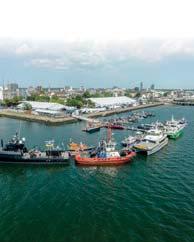
For the latest news and analysis go to www.maritimejournal.com APRIL/MAY 2024 | 67 INDUSTRY DATABASE
For more information visit: seawork.com contact: +44 1329 825335 or email: info@seawork.com
For more than 30 years, Marine Jet the waterjet market with innovation and unsurpassed quality. Engineered and built in Sweden, MJP’s proven stainless steel, mixeddiverse applications, from fast military craft and passenger vessels to workboats worldwide.
Marine Jet Power AB
Hansellisgatan 6, Uppsala, SE-754 50
Tel: +46 10 164 10 00
PROTECTIVE CLOTHING
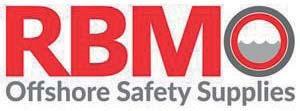
Supplying Industry with the leading brands in specialist
supplies include a wide range of Flame Retardant, Waterproof and Cold weather workwear and footwear, selected as top
Unit 1 The Glenmore Centre, Cable Street, SO14 5AE
Tel: +44 (0)2380 331805
SAFETY SOLUTIONS
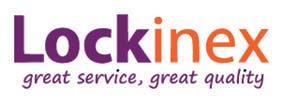
leading UK supplier of industrial safety solutions for over 22 years.
UK market with a diverse range of systems at competitive prices.
Lockinex Works
Hammonds Drive, Eastbourne East Sussex BN23 6PW
Tel: 01323 737626
sales@lockinex.com
SAFETY HOOKS



H. Henriksen AS is a technology Company with a long and proud history within the maritime and strong position within safe MOB boat lifting operations, Launch vessels, oil Spill Recovery and Entering and Boarding Systems for maritime and urban environments.
H Henriksen
Trleborgveien 15, Tnsberg, 3101
Tel: +47 33 37 8400
Fax: +47 33 37 8430
hooks@hhenriksen.com

sales@marinejetpower.com www.marinejetpower.com Ocean born. Tech bred. Sleipner creates world-leading technical solutions that consistently improve safety and comfort at sea, setting the benchmark for the boating of tomorrow.
Sleipner Motors
Unit 1, Darcey Court, South Brent, TQ10 9EW
Tel: +44 1364 649400 Sales@Sleipner.co.uk www.sleipnergroup.com

WaterMota has been supplying the marine industry with engine room packages since 1911.
propulsion engines from 5.8 to 22 litres, auxiliary engines, custom built generating sets and powerpacks. Supplying Azcue, D-I, Doosan, Hyundai SeasAll and JMP. WaterMota Ltd
Estate, Newton Abbot, Devon, TQ12 6TQ
Tel: +44 1626 830910
Fax: +44 1626 830911 dm@watermota.co.uk www.watermota.co.uk

Rotec Hydraulics is a leading UK specialist provider of hydraulic, pneumatic and electrical mechanical components and engineering services to a wide variety of organisations operating across both public and private sectors.
Rotec Hydraulics Ltd
Rotec Hydraulics Ltd, Unit 1, Venture Way, Priorswood Industrial Estate, Taunton, TA2 8DE
Tel: +44 01823 348 900 sales@rotec.net www.rotec.net
RIBS (RIGID INFLATABLE BOAT)
RECOVERY PRODUCTS

Accredited and Achilles FPAL registered company specialising in personnel and equipment transfers, safety and guard boat duties, survey and logistical support to the
throughout Europe.
Specialised Marine Support Ltd
Easdale, Oban, Argyll, PA34 4RF
Tel: +44 1852 300341 info@specialisedmarinesupport.com www.specialisedmarinesupport.com

Markus Lifenet Ltd. is specialised in development and manufacture of a man overboard recovery products, made for all types of quay areas and similar land based water sides. We also provide crew training program and onboard inspection guidelines.
Markus Lifenet Ltd.
Hvaleyrarbraut 27, IS-220 Hafnarfjörður, Iceland
Tel: +354 864 3559 Sales@markusnet.com www.markusnet.com
RECRUITMENT

Seamariner Limited are Marine Recruitment Specialists and have been established since 1992. We hold ISO 9001:2015 accreditation by Lloyds Register and are MLC, 2006 compliant. We supply temporary and permanent seafarers to shipping companies worldwide and our expertise is the basis of our continued success.
Seamariner Ltd
The Square, Fawley, Southampton, Hampshire, SO45 1TA
Tel: +44 2380 840374
admin@seamariner.com www.seamariner.com
www.lockinex-store.com
SALVAGE & WRECK REMOVAL

Subsalve is the worldwide leader and innovator in the design and manufacture of buoyancy
to meet the toughest challenges in and military applications.
Subsalve USA
P.O Box 2030, North Kingstown, Ri 02852
Tel: +1 401 88408801
Fax: +1 401 884 8868
Richard@subsalve.com www.subsalve.com
SANITATION & PLUMBING

LeeSan, leaders in marine sanitation, have over 25 years’ experience designing, specifying and supplying equipment for seagoing and inland waterways craft of all sizes. Extensive stocks of spares and replacement components are available for most marine toilets.
Lee Sanitation Ltd
Wharf Road, Fenny Compton, Warwickshire, CV47 2FE
Tel: +44 1295 770000
Fax: +44 1295 770022 sales@leesan.com www.leesan.com
SAFETY EQUIPMENT

Norwest Marine specialise in the hire, supply and servicing of marine liferafts at the core of our business. We carry stocks of 4, 6, 8, 10, and 12 man SeaSafe ISO approved liferafts valise. These include -24hr / +24hr rage of liferaft servicing facilities and can provide quotations on request.
Norwest Marine Ltd Liverpool, Mereyside, UK
Tel: +44 151 207 2860 https://norwestmarine.co.uk/
SEATING & CHAIRS
www.hhenriksen.com

Marine seating of the highest performance and quality. Full suspensions optimised for arduous marine environments, high shock mitigation performance, comfort, ergonomic design and DNV-GL Type approval.
Capital Seating
1 Forward Park Sheene Road, Gorse Hill Industrial Estate, Beaumont Leys, Leicester, LE4 1BF
Tel: +44 1162 169910
Fax: +44 1162 169920
info@capitalseating.co.uk
www.capitalseating.co.uk
STABILISERS
Humphree, based in Gothenburg on the west coast of Sweden, is a company dedicated to providing: “Speed at sea” through innovative technology solutions for high performance vessels. Specialized in Trim and Stabilisation our Product portfolio consists of Interceptor systems and Fin stabilisation systems.
HUMPHREE
Grimboasen 16, Gothenburg, 417 49
Tel: +46 31 744 3577
Fax: +46 31 744 3573 humphree@humphree.com www.humphree.com
SUBSEA EQUIPMENT

Oceanscan Limited and group companies supply highly advanced subsea and NDT equipment as well industries and renewables.
Oceanscan Group
Denmore Road Bridge of Don AB23 8JW
United Kingdom
Tel: +44 (0)1224 707000 sales@oceanscan.co.uk www.oceanscan.net
INDUSTRY DATABASE 68 | APRIL/MAY 2024 For the latest news and analysis go to www.maritimejournal.com
PROPULSION SYSTEMS
TOWAGE & WORK BOATS
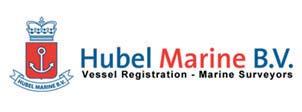
Vessel Registration - Seafarer Endorsements - Marine Surveyors
Hubel Marine B.V. is a Dutch independently owned consultancy of international shipping business professionals.
SD products Ltd
Micros Building, Karel
SCHIEDAM, Netherlands
Tel: +31 10 458 7338 www.hubelmarine.com

New business start-up operator
Aquatic Towage and Marine Ltd brings together over 50 years of combined towage and work boat
Aquatic Towage and Marine Ltd
24 Raynes Road, Lee-On-The-Solent, Hampshire, PO13 9AL
Tel: +44 (0) 7876251409 inquiries@aquatictowage.com www.aquatictowage.com

Lloyd’s Maritime Academy is the world’s largest provider of professional development courses and academic education
maritime industry
Lloyds Maritime Academy
KNect House, 30-32 Mortimer Street, London, W1W 7RE
Tel: +44 2070 174483 learning@knect365.com www.lloydsmaritimeacademy.com
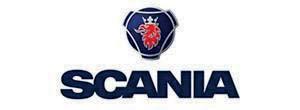
Scania is a world-leading provider of transport solutions. With sustainability a key focus area for the organisation today. Scania works with its partners and customers to drive the shift towards more sustainable transport systems.
Scania (Great Britain) Limited Delaware Drive, Tongwell, MK15 8HB
United Kingdom
Tel: +44 845 034 3034 www.scania.co.uk/powersolutions
TUGS
A family owned company with over 45 years of experience in the service of: Chartering tugs / workboats/launches for Inland and Sea-going towage, Assistance and Supply services to provide services for dredging, construction
Van Wijngaarden Marine Services BV Buitenweistraat 15, 3372 BC Hardinxveld-Giessendam
Tel: +31 184 490 244 info@wijngaarden.com www.wijngaarden.com
TUGS, TOWAGE & SALVAGE

Specialist shipbrokers handling
chartering of Tugs, Jack-ups, barges, Split hoppers, Dredgers and various Workboats etc. Our services also include Towage, heavy lift transport and Valuations.
Riverbank House, 1 Putney Bridge Road, London, SW6 3JD
Tel: +44 2073 842882
TUGS, TOWAGE & SALVAGE

Herman Senior b.v. is a familyowned company based in Barendrecht, The Netherlands. Although the company was founded in 1992, the roots of the company go back all the way of Multicats and Shoalbusters, range of marine services to our customers on a worldwide basis.
Herman Sr bv
Ebweg 56, Barendrecht, 2991LT
Tel: +31 78 619 25 07 info@hermansr.com www.hermansr.com
VESSEL BUILD & REPAIR
marine design business with Lafayette, USA; Portsmouth, UK. The company has a 35-year history with nearly 600 vessels in service to its designs.
Incat Crowther P O Box 179, Terrey Hills NSW 2084
Australia
Tel:
+61 2 9450 0447
www.incatcrowther.com
VESSEL BUILD & REPAIR

In-house expertise, a huge selection of products to meet a very broad range of applications.
advice, manufacture and after-sales support, a comrehensive, valued service to the power transmission and hydraulics industries.
jbj Techniques Limited 28 Trowers Way, Holmethorpe Industrial Estate, Redhill, RH1 2LW
Tel: +44 1737 767493
Fax: 01737 772041
info@jbj.co.uk
https://www.jbj.co.uk

proven industry leaders in the Naval Architecture and Marine Survey sectors, having worked for more than 25 years with owners, operators and shipyards globally.
Aberdeenshire, AB44 1RE
Tel: +44 1261 833825
Fax: +44 1261 833835
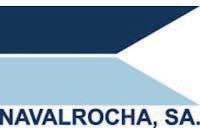
Navalrocha Shipyard SA is a worldclass ship repair facility located in the heart of Lisbon harbour on the north bank of the Tagus river and is one of the oldest infrastructures associated with the Naval Industry in the Tagus river estuary dating back to 1898.
Navalrocha Shipyard SA
Rua da Cintura do Porto de Lisboa
Estaleiro da Rocha Conde de Óbidos 1350 – 352 Lisboa – PORTUGAL
Tel: (+ 351) 213 915 914
www.navalrocha.pt

experience of more than 20 years’, including management of crew transfer vessels, turbine management in construction, commissioning and operational phases.
NR Marine Unit 1, Pump Lane, Caister On Sea NR30 5TF United Kingdom
Owen Nutt
Tel: 7860771998
www.nrmarine.co.uk/
VESSEL BUILD & REPAIR
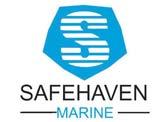
Safehaven Marine are designers and builders of FRP Pilot and crew transfer boats, Patrol boats, S.A.R. vessels, Hydrographic craft, Naval custom private motor yachts from 11-22m in Monohull, Catamaran and unique hybrid forms.
Safehaven Marine
Ashgrove, Cobh, Ireland
Tel: +353 86 8054582
www.safehavenmarine.com

The Trafalgar Group is a young, dynamic group of businesses operating in the leisure boating, commercial shipyard and property sectors, based at the top of Portsmouth Harbour.
Premier Trafalgar Shipyard
Trafalgar Wharf, Hamilton Road,
Tel: +44 02393 233145
email: trafalgarshipyard@ premiermarinas.com
www.premiermarinas.com/ trafalgar-shipyard
VESSEL SALE & CHARTER

vessels; shallow draft utility workboats and river push boats, tugs up to 170 meters in length, any power range whether direct diesel, diesel-electric or hybrid propulsion technology along with wide range of numerous type vessels.
KOSBAS Kocaeli Serbest Bolgesi, Sepetlipinar SB Mah., 102. Cad. No:14-16 Basiskele,, Kocaeli, 41090
Tel: +90 (262) 341 45 10(pbx) info@uzmar.net www.uzmar.com

INDUSTRY DATABASE For the latest news and analysis go to www.maritimejournal.com APRIL/MAY 2024 | 69
For more information visit: seawork.com contact: +44 1329 825335 or email: info@seawork.com
TRAINING TRANSPORT & LOGISTIC SERVICES SURVEYORS
INDUSTRY DATABASE

For more information visit: seawork.com
contact: +44 1329 825335
WINCHES

Lemans Nederland bv is a company situated in the southwest of The Netherlands. We are specialised in hoist, lift, push and towing equipment. As well as deck, dock and quay equipment.
Lemans Nederland BV PO Box 527, Bergen op Zoom, NL 4600 AM
Tel: +31 164 680 097
Fax: +31 164 681 971
info@lemans-nederland.eu www.lemans-nederland.nl/
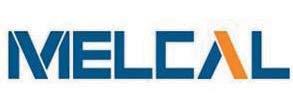
MELCAL designs and manufactures advanced deck handling solutions and provides professional life cycle services for the marine and expert consultation, reliability and performance to shipyards, worldwide.
Zona Industriale c/da Fegotto
Segesta (TP) 91013, Italy
Federica Calandrino Tel: +39 0924 506974 www.melcal.com/
WINDOW WIPERS

Design and manufacture of high performance window wipers.
Three year Warranty. DuroWiper Pantographs and Pendulums have a Patented twin drive rotary transfer box giving a remarkable smooth, powerful and reliable performance.
Durowipers
Unit 20, Oldends Lane Industrial Estate, Stonehouse, Glos, GL10 3RQ
Tel: +44 1453 820972
WIRELESS CONNECTIVITY

Fax: +44 1453 820979 sales@durowipers.co.uk www.durowipers.co.uk service provider for managed wireless connectivity, with a single focus on helping organisations succeed in a wireless world. Our team of hands-on experts uses the latest LTE/5G technologies to design and deliver high-speed maritime vessels.
60 Paya Lebar Road, #13-18 Paya Lebar Square, 409051, Singapore
Tel: +65 6910 6250 enquiries@bluewireless.com www.bluewireless.com
WORKBOAT BUILDERS

Safe, reliable and designed for work aluminium boats: bespoke patrols, SAR boats and passenger catamarans.
Aister
C/Baixada do Cocho, nº 228, A Guia – M, Meira – 3, MOAÑA, 6955
Tel: +34 986 240 294
Fax: +34 986 240 157 i.defrancisco@aister.es www.aister.com/en
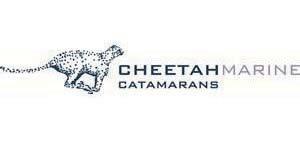
Now in our 25th year of production, Cheetah Marine continues to lead Europe in the specialist design and construction of power commercial catamarans.
WORKBOAT BUILDERS

DM acquired the assets of equipment of South Boats IOW and trade from Cowes, IOW specialising in the design, maintenance of workboats, military and patrol craft, lifeboats, pilot and pleasure craft.
Diverse Marine
Medina Ship Yard, Pelham Road, Cowes, Isle of Wight
Tel: +44 1983 300656
info@diversemarine.co.uk
www.diversemarine.co.uk

We design, build, repair, convert and mobilize vessels for the maritime industry. It is our aim to innovation, creativity, cooperation
Neptune Shipyards BV
Rivierdijk 586, 3371 ED, Veerdam 1, Hardinxveld-Giessendam, 5308 JH
Tel: +31 184 621423
Fax: +31 184 612741 info@neptunemarine.com
www.neptunemarine.com
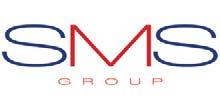
Southampton Marine Services specialise in ship building, ship repairs and steel fabrication across all aspects of the marine industry.
SMS Group Ltd
Unit 1 Ocean Quay, Belvidere Road, Southampton, Hants, SO14 5QY Tel: +44 2380 141010
info@sms-marine.co.uk www.sms-marine.co.uk
WORKBOATS
contact
sales@maritimejournal .com or phone
+44 1329 825335
www.maritimejournal.com
Cheetah Marine
OceanBlue Quay, The Esplanade, Ventnor, Isle Of Wight, PO38 1JR Tel: +44 1983 852398 mail@cheetahmarine.co.uk www.cheetahmarine.co.uk
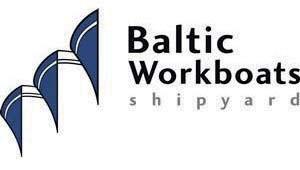
Baltic Workboats AS has a strong track record for the design, build and delivery of steel and aluminum workboats for professionals around the world.
Baltic Workboats AS Nasva Harbour, Nasva, Kaarma v, 93872 Saare mk
Tel: +372 452 1140 contact@bwb.ee bwb.ee/
WORKBOATS

Specialists in Marine Plant Hire, access solutions, CTV / Survey Vessels, Jack up Barges, Pontoons, Tugs, Crane Barges, Dredgers and various other workboats.
Fastnet Shipping Ltd
Marine Support Services Base, Bilberry, Waterford City, Waterford
Tel: +353 51 832946
Fax: +353 51 851886 info@fastnetshipping.com
www.fastnetshipping.com

Kraken Marine Services [KMS] is an independently owned company based in the South West, UK and owned by the highly experienced Captain, Julian Northway. KMS owns the 26m multipurpose landing craft, KMS Terramare, which is well known within the UK workboat industry.
Kraken Marine Services Harbour, Cornwall, TR18 4AH, UK
Tel: 07794 072399
www.krakenmarineservices.co.uk

Tidal Transit provides access
built vessels, Tidal Transit transports people and cargo to
Tidal Transit Limited
Business Park, Bunkers Hill, Egmere, Norfolk, UK
Tel: +44 1328 854 225 www.tidal-transit.com
WORKBOATSALUMINIUM

Habbeké Shipyard, established experience of quality shipbuilding. The wharf builds exclusively in aluminium, and enjoys an excellent reputation for innovation, quality and service. The shipyard builds aluminium closed vessels for rescue, pilot or general work duties.
Habbeke
Schelphoek 103, 1621 Mk Hoorn
Tel: +31 2993 62182
Fax: +31 2993 67464 info@habbeke.nl www.habbeke.nl
For the latest news and analysis
70 | APRIL/MAY 2024
go to www.maritimejournal.com
To advertise in the Maritime Journal Directory
or email: info@seawork.com
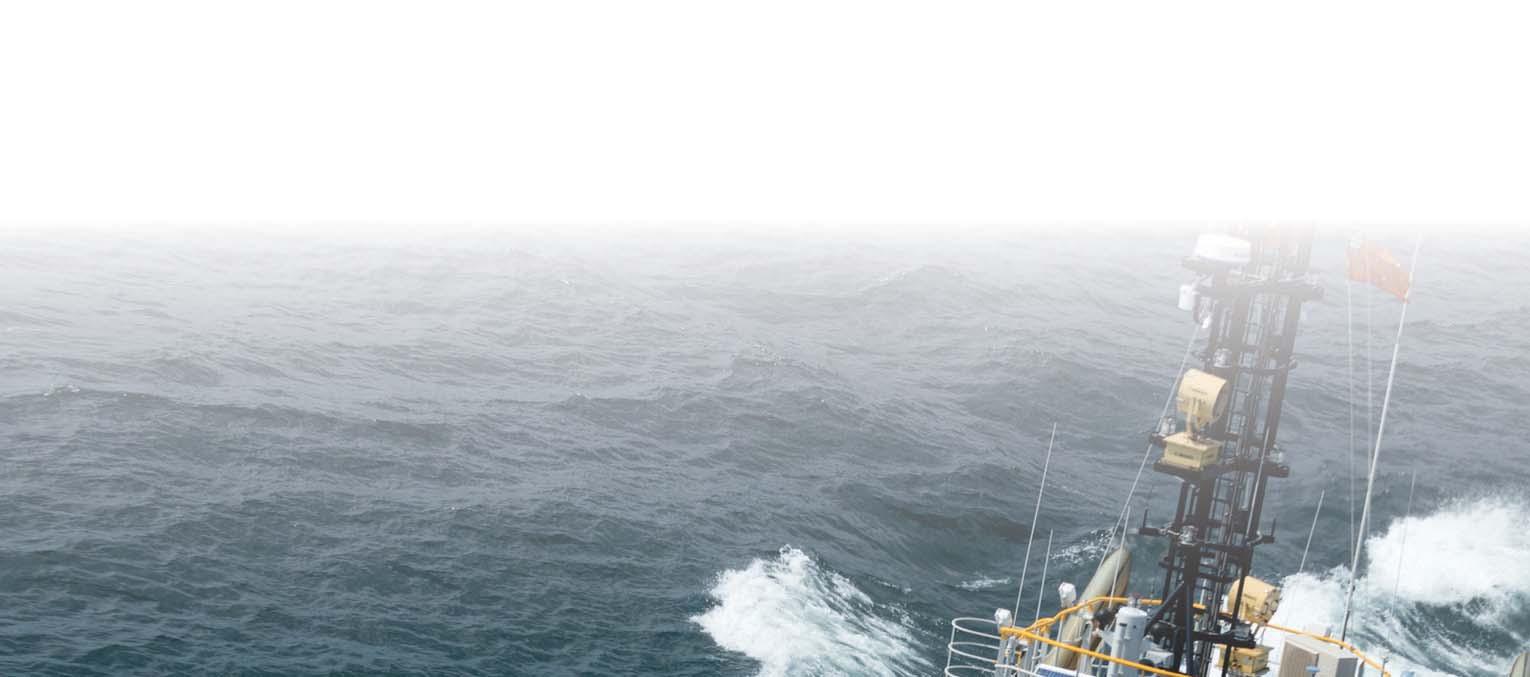










Promote your business to the right audience in the right place at the right time. Maritime
is
t: (+44) 1329 825 335 e: sales@maritimejournal.com www.maritimejournal.com Contact us today MARITIMEJOURNAL COMMERCIAL MARINE BUSINESS MAGAZINE RECIPIENTS DECISION MAKERS PAGEVIEWS PER MONTH Reach industry professionals with Maritime Journal 30,000 82% 36,900
Journal’s valued content focuses on vessel operations harbours and
delivered through multiple channels.






72 | APRIL/MAY 2024For the latest news and analysis go to www.maritimejournal.com EDITORIAL & CONTENT Editor: Debbie Mason dmason@maritimejournal.com Correspondents Please contact our Correspondents at editor@maritimejournal.com Tugs & Towage: Peter Barker Graphic Editors David Blake, Paul Dunnington production@mercatormedia.com SALES & MARKETING t +44 1329 825335 f +44 1329 550192 Head of Media Sales: Louise Clarke lclarke@mercatormedia.com Commercial Marine Team Leader Lizzie Monk lmonk@mercatormedia.com Sales Executives Contact the sales team on commercialmarine@mercatormedia.com Marketing marketing@mercatormedia.com Chief Executive Andrew Webster awebster@mercatormedia.com Published bi-monthly by: Mercator Media Limited Spinnaker House, Waterside Gardens, Fareham, Hampshire, PO16 8SD, England t +44 1329 825335 f +44 1329 550192 info@mercatormedia.com mercatormedia.com CORE FEATURES Industry news, Vessel launches and Building, Marine Civils, Power & Propulsion, Tugs, Towing & Salvage, Offshore Renewables, Future Fuels, Vessel Repair & Maintenance, Dredging & Flood defence, Ocean Sciences, Maritime Contracts Journal (MCJ), Security, Vessels and Equipment, Port, Harbour & Marine construction, Diving & Underwater services, Autonomous vessels & Technology, Pollution control, Monitoring & Control, Safety & Training, Insurance, Legal & Finance, Navaids, Hydrographic Survey, Shortsea & Ferry, Navigation & Communication ©Mercator Media Ltd 2024 ISSN 0957-7009 (print) ISSN 2633-4011 (online) Registered in England. Company No. 2427909 Registered Office: Mercator Media Ltd, Spinnaker House, Waterside Gardens, Fareham, Hampshire, PO16 8SD, UK Subscriptions
Register and subscribe at www.maritmejournal.com For Memberships and Corporate/multi-user subscriptions: corporatesubs@mercatormedia.com 1 year’s membership including 6 full digital magazines from £185 MARITIMEJOURNAL In association with Seawork Exhibition and Conference Sponsoring Member of the International Harbour Masters Association Honorary Industrial Member of the UK Harbour Master’s Association (UKHMA) Corporate Member, Sea Safety Group (UK) Nominate now Book your place Innovation Awards Sponsored by Society of Maritime Industries (SMI) The prestigious European Commercial Marine Awards Judged by a panel of industry experts and chaired by the • • • • • Marine Equipment & Materials • Marine Power & Propulsion • • Safety & Training • Underwater Intervention (Diving & Underwater Technology) • Vessel Design & Construction MARITIMEJOURNAL COMMERCIAL MARINE BUSINESS Media partners: People & Project Awards Sponsored by Mercator Media Marine Civils Best Project Maritime Professional of the Year Sponsored by Farra Marine Maritime Sustainability Sponsored by Svitzer ECMA Sponsors: #ecma Visit: www.seawork.com/aboutecma contact: +44 1329 825335 or email: awards@seawork.com ecm awards european commercial marine JUNE Southampton United Kingdom
subscriptions@mercatormedia.com
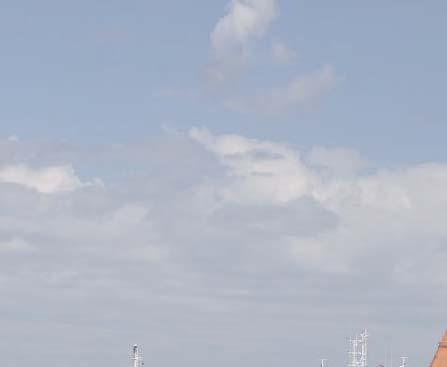




Maritime Contracts Journal will help you stay up to date with the latest contracts out for tender, as well as getting early information on upcoming tenders and the latest contract awards.
The weekly bulletin includes:
• Dredging contracts
• Marine civil engineering & construction projects
• Environmental services
• Vessel supply, repair and maintenance
Now publishing over 50 leads per weekly edition - with an average of £300 million worth of new maritime contract notices and awards!
MCJ has expanded its coverage to include UK, Europe, USA, Australia & Japan, contact subs@maritimecontracts.com to subscribe for £595/year - or trial 10 issues for just £200!
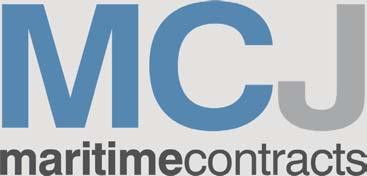
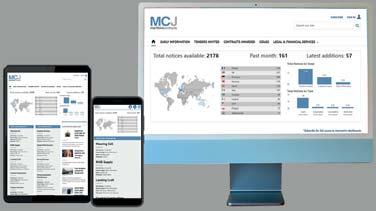
www.maritimecontracts.com VISIT OUR WEBSITE TODAY BULLETINS PER YEAR 49 MILL AVG WEEKLY CONTRACTS MONTHLY LEADS
more new
Find out more about Maritime Contracts Journal and how to subscribe to the weekly bulletin email: subs@maritimecontracts.com
Receive
business leads
SMART SUBSEA SOLUTIONS
• Delivering data in most adverse conditions: underwater acoustic modems with advanced communication technology and networking
• Accurate USBL, LBL and hybrid positioning of underwater assets, navigation for divers
• Modem emulator and multiple cost-saving developer tools
• Sonobot 5 - the autonomous surface vehicle for bathymetry, monitoring, search & rescue, and AUV support
• Quadroin - the novel bionic AUV for surveys and monitoring
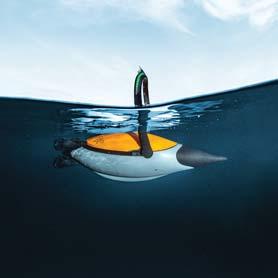
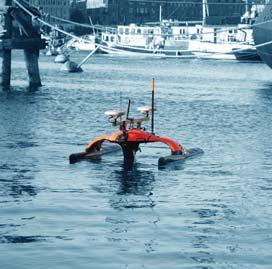
sales@evologics.com
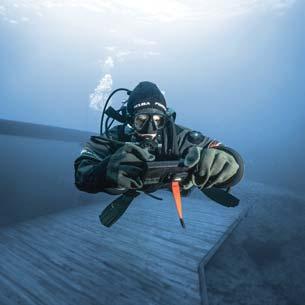
6 - 9 May, 2024
NRG park, Houston, TX, US
sales-us@evologics.comEvoLogics.com
Meet us at OFFSHORE TECHNOLOGY CONFERENCE!
BOOTH 1408





























































































































































































































































































































































































































































































